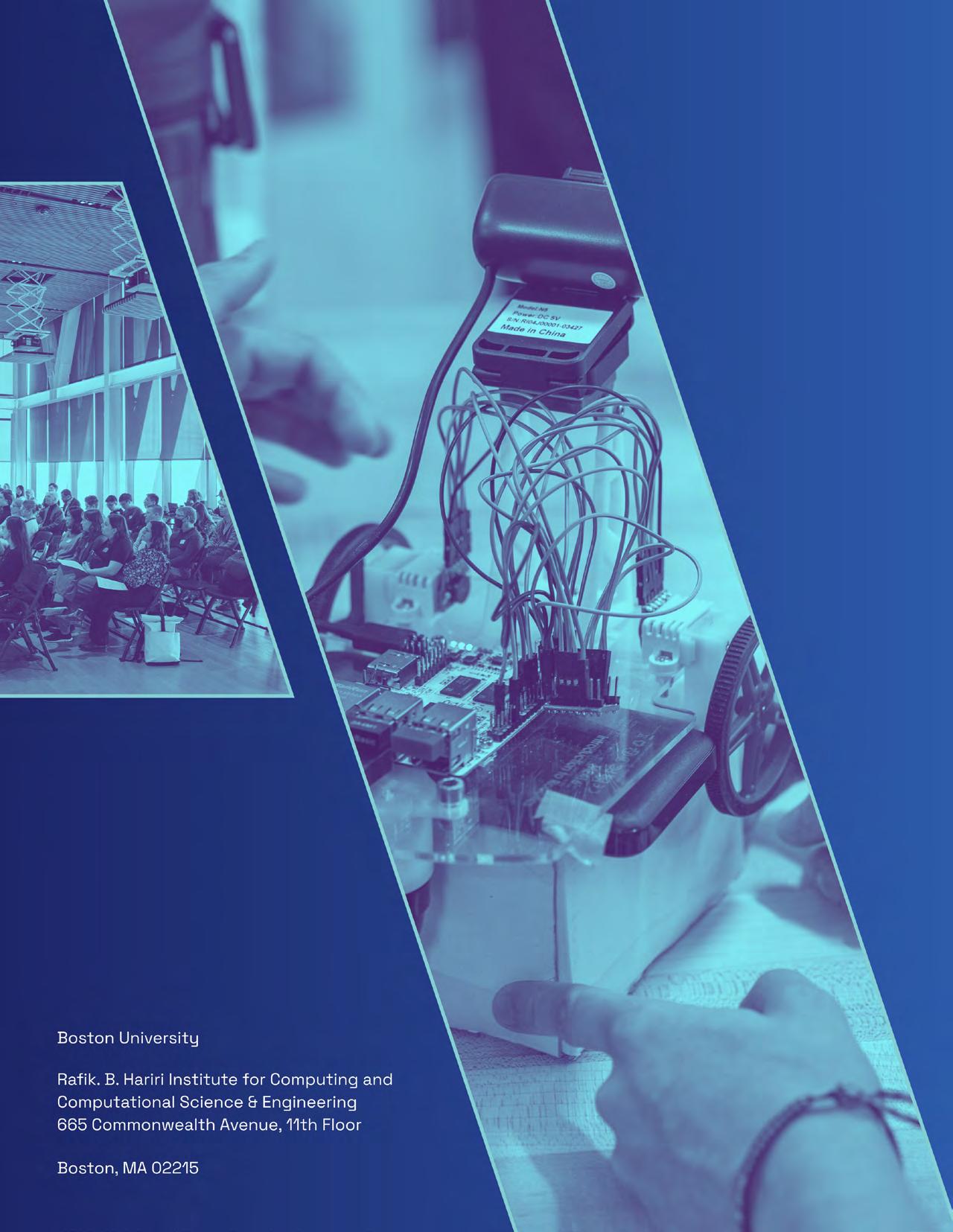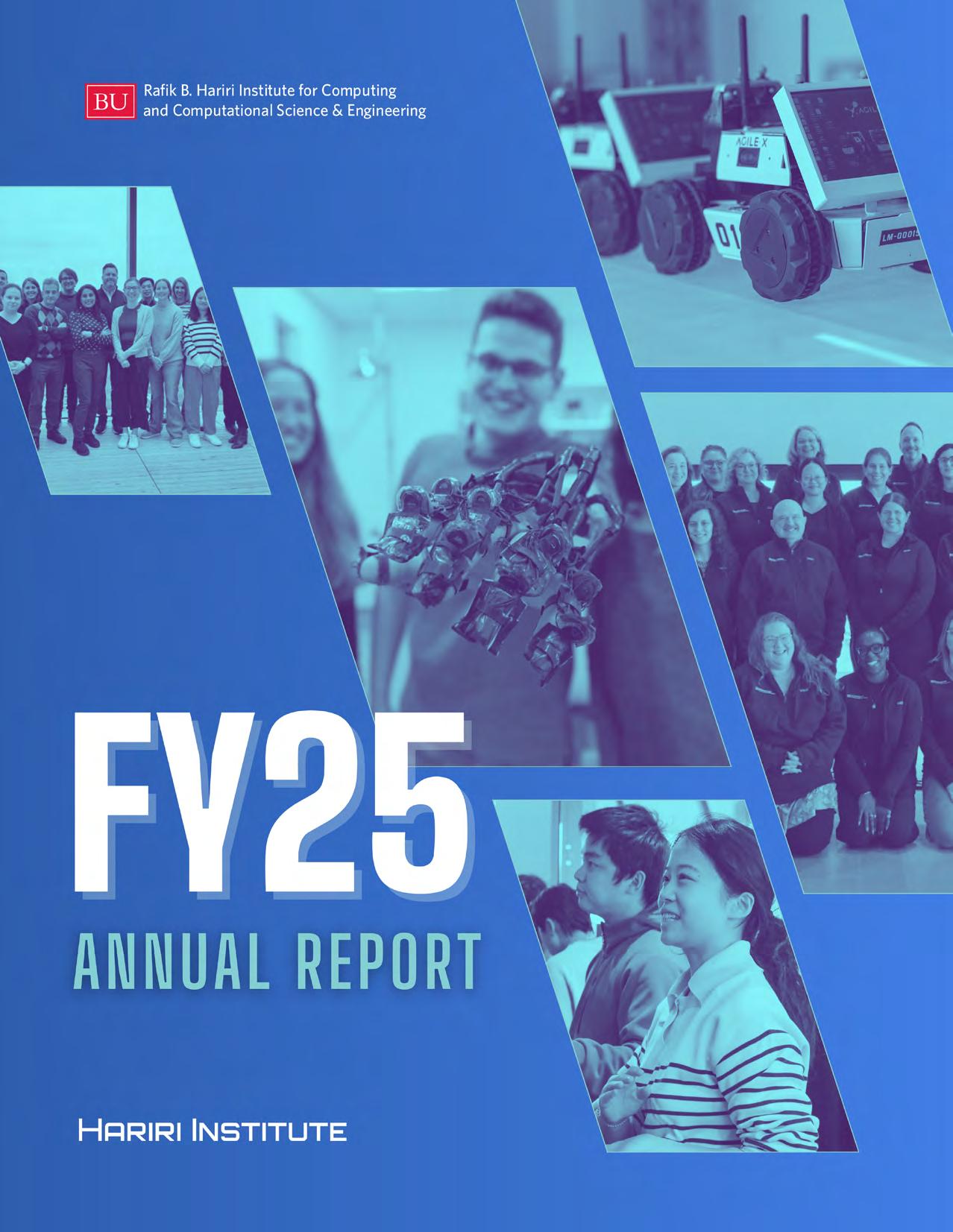




This year has been an important one for the Hariri Institute for Computing and Computational Science & Engineering as we continued to advance our mission to catalyze multidisciplinary research and innovation with societal impact. I am proud to share highlights of our collective accomplishments, reflecting our commitment to empowering faculty and students, building industry partnerships, and supporting responsible, interdisciplinary Computing and AI research.
Demonstrating the transformational impact of AI in global health, this past April, we launched BEACON—the Biothreats Emergence, Analysis, and Communications Network. Housed at the Center on Emerging Infectious Diseases (CEID), this open-source surveillance platform combines generative AI with a network of infectious disease experts to detect emerging diseases in near real time. Employing a team of graduate students and our Software & Application Innovation Lab (SAIL), the Hariri Institute operates the BEACON platform in collaboration with CEID and HealthMap at Boston Children’s Hospital. The BEACON pipeline is powered by a novel Large Language Model (LLM) adapted to infectious diseases trained by our team through support in part by NSF, DOE, the Gates Foundation, the Chen Foundation, and other philanthropic contributions.
Recognizing the need for expensive GPUs to support AI research, in FY25 we launched the BU AI Research Resource Program (BU-AIRR) that provides free access to such advanced computational resources. Supported by the Hariri Institute, the College of Engineering, the Department of Electrical & Computer Engineering, and the Office of Research, BU-AIRR funded 26 projects and is already powering cutting-edge work on the New England Research Cloud (NERC).
We continued to support Boston University’s mission to promote responsible, interdisciplinary research and education. Hariri Institute Faculty Affiliate John Byers and I were appointed Co-Directors of AI in Academics

as part of BU’s newly formed AI Development Accelerator (AIDA). Led by Ken Lutchen, Senior Advisor to the President and Dean of Engineering, Emeritus, AIDA is helping guide the University’s strategy for integrating AI in teaching, research, and administrative functions.
In addition, several Hariri Institute faculty were appointed to BU’s new Task Force on Convergent Research and Education, aimed at addressing complex societal challenges through deep cross-disciplinary collaboration. Joining me on the task force are Institute faculty affiliates Benjamin Sovacool (Earth & Environment), Lucy Hutyra (Earth & Environment), David Boas (ENG), and Kevin Gallagher (Global Development Policy).
Our industry partnerships also grew. The Institute cosponsored and co-organized the AI for Drug Discovery Open Innovation Forum, which convened over 160 academic, industry, and government leaders to help build an open research community for advancing AI foundational models in drug discovery. Additionally, Ayse Coskun, CISE Director and co-leader of a Focused Research Program funded by the Institute, was named Chief Scientist of Emerald AI, a new company focused on enabling data center collaboration to optimize energy use.
To support early-stage research, the Institute funded three new Focused Research Programs supporting convergent research in health data science, cancer detection, and environmental forecasting. These FRPs bring together diverse faculty to advance AI-driven solutions for critical challenges.
Faculty supported by Hariri Institute FRPs secured over $16 million in new external funding this year. Notable successes include a $3 million NSF Research Traineeship grant awarded to faculty on the FY21 Machine Learning for Chemistry and Materials Science FRP, and a $750,000 NSF grant to faculty on the FY24 AI for Understanding Earthquakes FRP, seeking to develop a foundational model for improved earthquake monitoring.
We also continued investing in the next generation of researchers by funding four Junior Faculty Fellows and five Graduate Student Fellows across multiple disciplines. We continued to grow our Data Science Mentorship Circles program, connecting 50 student mentees with 16 industry mentors to support career development and skill-building opportunities.
Reflecting on this year’s accomplishments, we recognize the challenges ahead, including a shifting national landscape marked by possible federal funding reduction and policy uncertainty. Despite these headwinds, we remain committed to supporting our researchers and students, fostering innovation, and sustaining Boston University’s leadership in AI, computing, and interdisciplinary research. I look forward to building on this momentum in the coming year.
As we close this fiscal year, we are deeply saddened by the passing of our colleague and friend, Margrit Betke, a central figure in computing at BU and a pioneer of interdisciplinary research. As co-Director of the AI Research (AIR) Initiative at the Hariri Institute, she was a distinguished collaborator whose generosity, vision, and leadership touched all of us and shaped the Institute’s work. We are grateful to Bryan Plummer for stepping in as co-Director, and in the coming year, we will honor Margrit’s enduring legacy in our community and the field.

Director, Rafik B. Hariri Institute for Computing and Computational Science & Engineering
Distinguished Professor of Engineering (Electrical and Computer Engineering, Systems Engineering, and Biomedical Engineering)
Founding Professor, Faculty of Computing & Data Sciences
Professor of Biostatistics, School of Public Health

The Rafik B. Hariri Institute for Computing and Computational Science & Engineering is a federation of 10 centers and initiatives spanning AI, computational science, engineering, computer systems and cloud computing, information and cyber security, and digital health. Our mission is to catalyze crossdisciplinary collaborations among researchers, enabling them to address important problems, make ground-breaking advances, build self-sustained research programs, and have lasting societal impact.
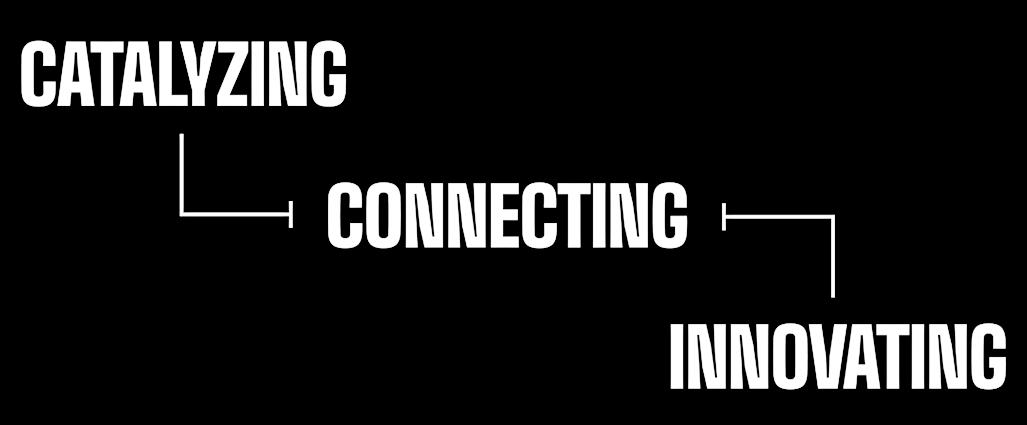

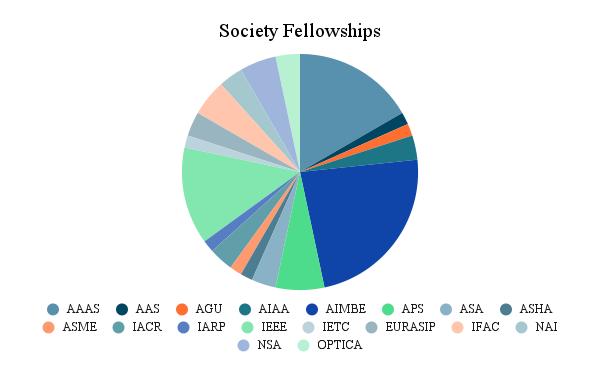

$18 MILLION $ 44+ MILLION AWARDED $114+ MILLION $ 41+ MILLION FY24 Hariri-Led and Catalyzed Expenditures FY24 Hariri-Led Expenditures




$815,000 $40,000 $460,000 $25,000 Programs Funded (Hariri Institute Investments) Awarded to BU Faculty and Graduate Students Awarded to Junior Faculty Fellows Awarded Across Five Focused Research Programs Awarded to Graduate Student Fellows


$290,000 Awarded to 26 Faculty-led AI Programs (BU-AIRR)


*The FY26 FRP, Special Track: Health Data Science, was made possible through Boston University’s School of Public Health Center for Health Data Science, the Clinical and Translational Science Institute, the Evans Center for Interdisciplinary Biomedical Research, and the Digital Health Initiative at the Hariri Institute for Computing.
**BU-AIRR funding was made possible through contributions from the Hariri Institute, the College of Engineering, the Department of Electrical & Computer Engineering, and the Office of Research.
Grant Highlights
“Collaborative Research: GCR: Towards a Physics-Inspired Approach to Computation on Encrypted Data.” NSF. $3.6 Million (BU $2.8 Million). PI Andrei Ruckenstein (Physics). BU Co-PIs Ran Canetti (CS) and Claudio Chamon (Physics).
“NRT: ENERGIZE Interdisciplinary graduate program integrating data science in energy materials research.” NSF. $3 Million. PI Malika Jeffries-EL (Chemistry). Co-PIs David Coker (Chemistry), Brian Kulis (ENG), Emily Ryan (ENG), and James Chapman (ENG).
“DESC: Type I: FlexDC: Flexible Artificial Intelligence Data Centers for Optimized Computing.” NSF. $600,000. PI Ayse Coskun (ENG), co-PI Emiliano Dall’Anese (ENG).
“Reach Every Reader Assessment.” Chan Zuckerberg Initiative. $1.5 Million. PI Lana Santoro (Wheelock).

The AI for Drug Discovery Open Innovation Forum, hosted by the Hariri Institute in October 2024, convened over 160 leaders from academia, industry, and government to advance collaborative approaches in drug development. The event launched a new AI Alliance working group and featured breakout sessions and hands-on workshops with open-source biomedical models. Keynote speakers and panels highlighted the critical role of open innovation in harnessing AI for drug discovery. Co-sponsors included BU’s Hariri Institute, the Bioengineering Technology & Entrepreneurship Center (BTEC), the Mass Open Cloud (MOC) Alliance, Red Hat, IBM, the Cleveland Clinic, and the global AI Alliance.
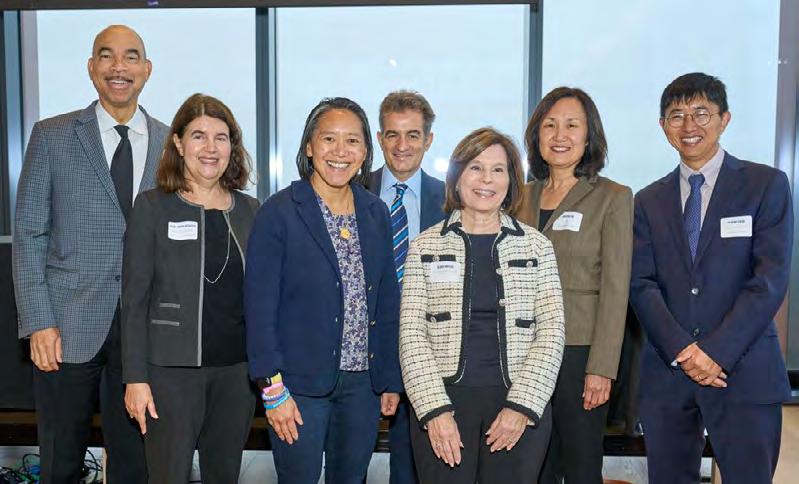
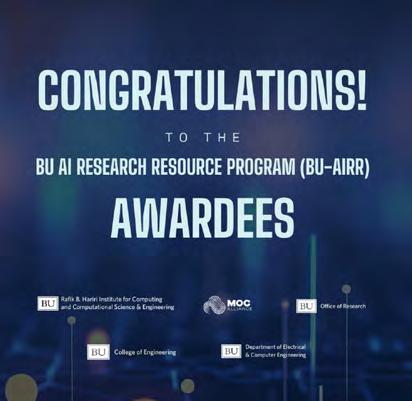
Launched by Boston University’s Hariri Institute for Computing and the Office of Research, the BU AI Research Resource Program (BU-AIRR) expands faculty access to the advanced computing infrastructure of the New England Research Cloud (NERC), a powerful, affordable platform for large-scale AI workloads. In 2024, BU-AIRR awarded $290,000 to 26 projects led by 35 faculty across six colleges—supporting AI research that demands access to powerful GPUs. The program is supported by contributions from the Hariri Institute, the College of Engineering, the Department of Electrical & Computer Engineering, and the Office of Research.
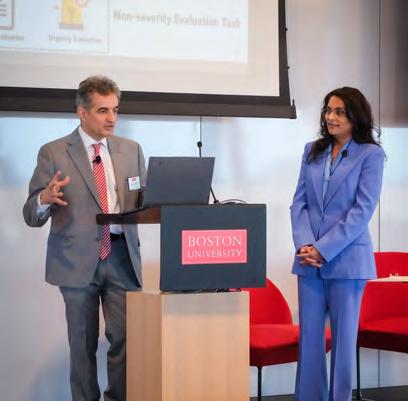
To improve awareness and response to infectious disease threats, the Biothreats Emergence, Analysis, and Communications Network (BEACON) was launched in April 2025. This open-source global surveillance platform reports on emerging diseases in near real time by combining the power of AI with a global network of human subject matter experts. The technical backbone of BEACON’s generative AI system was developed by Hariri Institute Director Yannis Paschalidis’ research team with SAIL supporting platform integration efforts. BEACON is housed at Boston University’s Center on Emerging Infectious Diseases and operated in partnership with the Hariri Institute and HealthMap at Boston Children’s Hospital.

BU’s new Task Force on Convergent Research and Education aims to address complex societal challenges through deep cross-disciplinary collaboration. The task force is led by Ken Lutchen, Dean of Engineering Emeritus and senior advisor to the BU President, and Darrell Kotton, Professor of Medicine and Director of the Center for Regenerative Medicine. Several Hariri Institute faculty were named to the task force, underscoring the Institute’s leadership in advancing integrative research. Hariri Institute Director Yannis Paschalidis joins as a member, alongside Steering Committee members Benjamin Sovacool (Earth & Environment) and Lucy Hutyra (Earth & Environment), and Faculty Affiliates David Boas (ENG) and Kevin Gallagher (Global Development Policy). The task force will compile BU’s major areas of convergent research and shape strategies to remove barriers and foster innovative, convergent approaches that drive discovery and create new fields of knowledge.
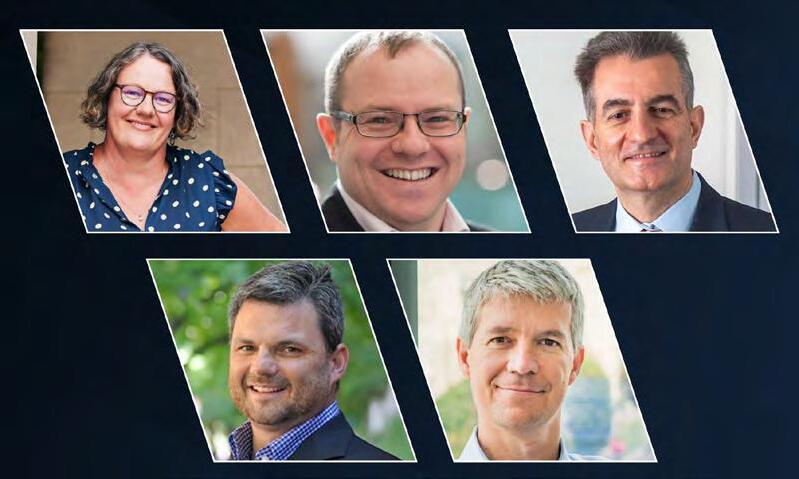
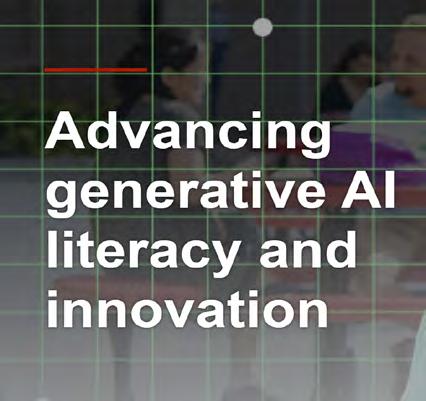
The Hariri Institute continues to play a leadership role in advancing the responsible integration of AI in education and research through its key contributions to BU’s Artificial Intelligence Development Accelerator (AIDA) initiative. Hariri Institute Director Yannis Paschalidis (ENG, CDS) and Faculty Affiliate John Byers (CS) were named Co-Directors of AI in Academics, helping shape BU’s academic strategy around AI adoption and governance. In partnership with SAIL and the Provost’s Office, the Institute also supported the development of the AIDA website, enhancing access to AI guidance, case studies, and tools for the BU community.

To advance the responsible use of generative AI in academia, BU’s Software & Application Innovation Lab (SAIL) received a $250,000 grant from the Sloan Foundation to develop a campus-wide, open-source AI platform to power AI tutors used in BU classes and other tools to integrate AI into BU websites and other functions. Designed to address bias, data privacy, and usability challenges, the Retrieval-Augmented Generation (RAG)-based platform will support accurate, equitable, and efficient AI adoption across several processes. The project empowers faculty across disciplines—regardless of coding expertise—to access, evaluate, and apply AI tools effectively in academic research and teaching.
The mission of the Hariri Institute’s Focused Research Programs (FRPs) is to evolve and advance Boston University’s research in computing and data science around areas of strategic importance and emerging opportunity. The programs are designed to facilitate research convergence by providing ‘scaffolding’ for groups to coalesce in sustainable ways, with the goal of accelerating research for future funding and broader impact.
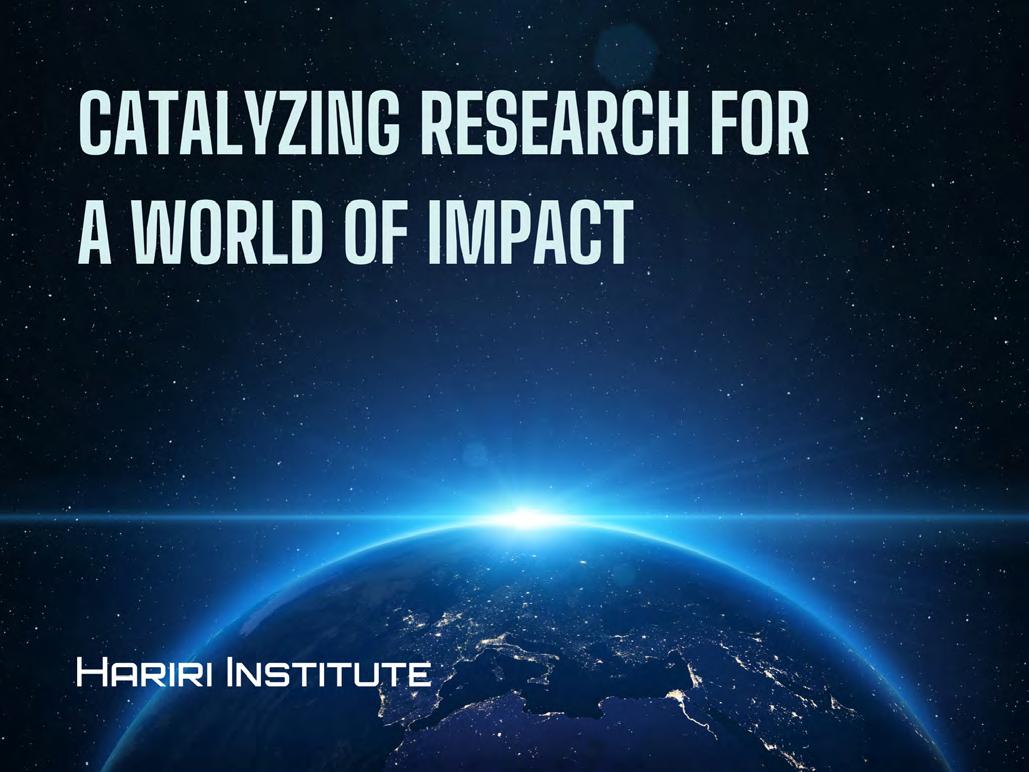
FY21–FY24 FRPs
Continuous Analysis of Mobile Health Data among Medically Vulnerable Populations
Data and Misinformation in an Era of Sustainability and Climate Change Crises
First Trip to Mars: How to Pack Light
Health Equity in the Wake of Continued Climate Change: Leveraging Big Data to Inform Action
Leveraging AI to Examine Disparities and Bias in Health Care
Machine Learning for Chemistry and Materials Science
Novel Data Science and AI Approaches for Brain Health and Brain Disease
Optimal Bio-Inspired Design of Holistic Rehabilitation Systems
Quantum Convergence
Simulation Modeling for Population Health
Teaching Machines Human-Like Intelligence

In FY25,faculty whose work was supported by Hariri Institute FRPs secured over $16 million in new external funding and received national recognition.These achievements highlight the program’s role in catalyzing multi-disciplinary discovery and enabling high-impact,sustainable projects with societal impact.
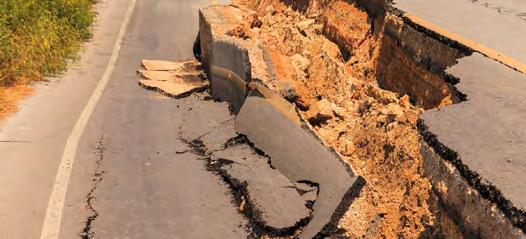
FY25 FRP: AI for Understanding Earthquakes
FRP researchers received $750,000 from the NSF to develop an advanced AI model for seismic data using transformer models and neural networks. Trained on extensive seismic data, it aims to improve earthquake detection, localization, and characterization. The team, comprised of AI experts and geoscientists, will also explore video surveillance for early warnings and create an efficient waveform analysis framework. All results will be openly shared to advance geophysics research.
“Collaborative Research: CAIG: A Large Foundational ModelforEarthquakeUnderstanding.”NationalScience Foundation (NSF). $750,000 (BU $300,000). PI Brian Kulis (ENG).

FY24 FRP: Health Equity in the Wake of Continued Climate Change: Leveraging Big Data to Inform Action
FRP researchers received a $3.2 million Climate Impacts Award from the Wellcome Trust to launch the Community Adaptations to City Heat (CATCH) Project. Led by SPH Professor Patricia Fabian, the interdisciplinary team includes faculty from the BU Center for Climate and Health, Institute for Global Sustainability, Initiative on Cities, and URBAN graduate studies program, as well as partners Dialogue Earth, ISeeChange, and A Better City. The team — BU SPH Professors Stephanie Ettinger de Cuba, Madeleine Scammell, and Greg Wellenius, and CAS Professors Ian Sue Wing and Lucy Hutyra — will map vulnerability and connect actionable programs and policies to mitigate the health impacts of extreme heat in Boston, Phoenix, and New Orleans.
“CommunityAdaptationstoCityHeat(CATCH).”Climate ImpactAward.WellcomeTrust.$3.2 Million.PI: Patricia Faban (SPH).
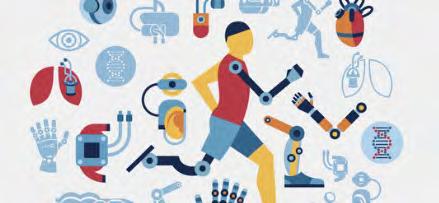
FRP Co-leader Eshed Ohn-Bar (ENG) has built a nationally recognized research trajectory in AI-driven assistive technologies, strengthened in part by the Focused Research Program (FRP) in Optimal Bio-Inspired Design. His research centers on developing intelligent systems that model human perception, interpret complex instructions, and adapt to dynamic real-world environments, with applications that enhance independence and quality of life for people with disabilities. In FY25, Ohn-Bar received the College of Engineering Early Career Excellence in Research Award for advancing AI frameworks that improve quality of life, spanning self-driving cars to wearable rehabilitation technologies. He also earned a prestigious NSF CAREER Award for his project “Advancing AI for Accessibility with User Feedback,” which will enable adaptive AI systems capable of delivering personalized, real-time support in assistive contexts.

FRP researchers received a total of $6 million in funding to launch “The Biothreats Emergence, Analysis, and Communications Network (BEACON),” the first-of-its-kind, open-source global surveillance platform built to detect emerging infectious diseases in near real time, worldwide. The platform merges the power of generative AI with a global network of human subject matter experts to provide fast, verified alerts to potential outbreaks.
Housed at BU’s Center on Emerging Infectious Diseases, BEACON is operated in partnership with the Hariri Institute and HealthMap at Boston Children’s Hospital. BEACON has also partnered with leading public health organizations, including WHO’s Epidemic Intelligence from Open Sources, the World Organisation for Animal Health, CEPI, state health departments, and the CDC Center for Forecasting and Outbreak Analytics.
“The Biothreats Emergence, Analysis, and Communications Network (BEACON).” NSF, Gates Foundation, ChenInstitute,PaxSapiens,DepartmentofEnergy(DOE), Boston University, and private donors. $6 Million. PI: Nahid Bhadelia (Chobanian & Avedisian SOM), Co-PIs: YannisPaschalidis(ENG)andJohnBrownstein(Boston Children’sHospital).

FRP researchers received a $3.6 million NSF Growing Convergence Research award with collaborators at Cornell University and University of Central Florida to develop scalable methods for computing directly on encrypted data. The project brings together state-of-the-art tools from theoretical physics, mathematics, and computer science to explore a novel paradigm for circuit obfuscation, a fundamental tool in modern cryptography; and to establish the security and efficiency of a recently proposed scheme for computation on encrypted data referred to as Encrypted Operator Computing (EOC). The approach is expected to be inherently resistant to both classical and quantum attacks.
“CollaborativeResearch:GCR:TowardsaPhysics-Inspired Approach to Computation on Encrypted Data.” NSF. $3.6 Million (BU $2.78 million). PI Andrei Ruckenstein (Physics). Co-PIs: Claudio Chamon (Physics) and Ran Canetti (CS).
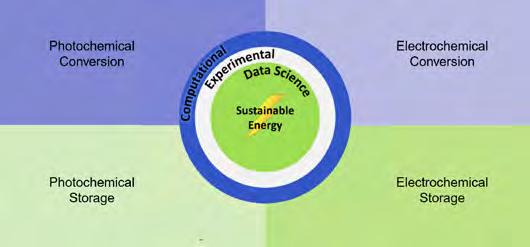
FY21 FRP: Machine Learning for Chemistry & Materials Science
FRP researchers secured a $3 million NSF Research Traineeship award to launch ENERGIZE—an interdisciplinary program training 100–125 PhD and master’s students to work collaboratively on sustainable energy research and development. Trainees will gain expertise in energy conversion, storage, sustainability, and data science through courses, workshops, internships, and mentored research. The program also offers professional development, career planning, and leadership training. ENERGIZE brings together faculty and resources from engineering, chemistry, computer science, and data sciences to prepare future leaders in clean energy.
“NRT: ENERGIZE Interdisciplinary graduate program integratingdatascienceinenergymaterialsresearch.”
NSF.$3Million.PIMalikaJeffries-EL(Chemistry).Co-PIs: David Coker (Chemistry), Brian Kulis (ENG), Emily Ryan (ENG),andJamesChapman(ENG).

FY17 Research Incubation Award: Urban Refuge: Putting Aid on the Map
Urban Refuge, a student-initiated project at BU’s Pardee School, received APSIA’s 2025 Inclusion Award for Community Building, recognizing its innovative, tech-driven approach to supporting displaced communities. The program began in 2016 in Professor Noora Lori’s “Forced Migration Policy Incubator” course, where students partnered with peers in Jordan to design a digital platform mapping critical services for refugees. With pro-bono support from Microsoft engineers and early funding from BU’s Hariri Institute and the Initiative on Cities, the project grew into a registered nonprofit. Now a nationally recognized initiative engaging multiple disciplines, Urban Refuge is led by CEO Daria Kosack (BA IR ’25) and continues to advance real-world solutions to global migration challenges.
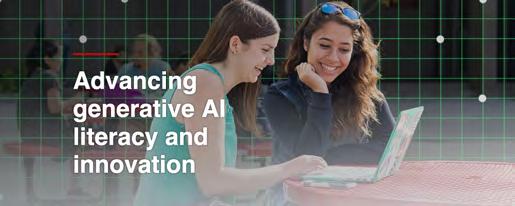
Artificial intelligence is rapidly reshaping the landscape of research, education, and institutional operations. In response, Boston University has launched the Artificial Intelligence Development Accelerator (AIDA) — a strategic, university-wide initiative designed to catalyze the development, adoption, and governance of AI across academic and administrative domains.
AIDA’s mission is to elevate AI literacy, foster crossdisciplinary collaboration, and ensure responsible implementation of AI tools and practices throughout the University. It builds on a foundation of Boston University’s longstanding investment in AI, including the creation of the Faculty of Computing & Data Sciences, graduate programs in AI, and initiatives catalyzed by the Hariri Institute, such as the BU AI Research Resource (AIRR) Program, the AI Research and Education Initiative, and the Artificial Intelligence Research (AIR) initiative.
Launched in April 2025, AIDA represents the next step in a coordinated institutional approach to AI. The initiative draws on the work of two task forces convened in FY2024 — one examining the impact of AI on research and teaching, and the other focused
on enhancing administrative operations. These groups, composed of faculty and staff from across the University, conducted broad stakeholder engagement and developed best practices for ethical, effective AI adoption.
AIDA is led by a distinguished team with expertise in AI, computing, and institutional strategy. Ken Lutchen, Senior Advisor to the President and Dean of Engineering, Emeritus, serves as Interim Executive Director. Bob Graham, Associate Vice President for Enterprise Architecture and Applications, serves as Interim Chief AI Officer for Administration. Yannis Paschalidis, Director of the Hariri Institute and Professor (ENG), and John Byers, Professor (CS), serve as Co-Directors of AI in Academics.
The AIDA website — developed in collaboration with the Hariri Institute, the Software & Application Innovation Lab (SAIL), and the Office of the Provost — serves as a central resource hub, offering over 100 curated documents, case studies, tools, and guidance for integrating AI into teaching, research, and operational workflows.
Through AIDA, Boston University is committed to advancing institutional excellence by equipping its community with the tools, knowledge, and governance structures needed to lead in the era of artificial intelligence. Explore more at bu.edu/aida.
(Excerpt from an article authored by Maria Yaitanes and first published by the Hariri Institute)
AI-PRISM
AI and machine learning (ML) have transformed various industries, yet their full potential in clinical medicine remains untapped due to concerns about interpretability, robustness, and integration into real-world decision-making. Led by Charlene Ong (Chobanian & Avedisian SOM), Yannis Paschalidis (ENG), and Nicholas Cordella (Chobanian & Avedisian SOM), this FRP aims to apply AI and machine learning to clinical care applications to (1) optimize prescriptions for hypertension and (2) compute NIH Stroke Scales from unstructured clinical notes, emphasizing safety, robustness, and explainability. Sponsors: Boston University’s School of Public Health Center for Health Data Science, the Clinical and Translational Science Institute, the Evans Center for Interdisciplinary Biomedical Research, and the Digital Health Initiative at the Hariri Institute for Computing.


Vascular invasion (VI) — tumor cells within blood or lymphatic vessels — is a critical prognostic marker in early-stage lung adenocarcinoma (LUAD), the most common type of lung cancer both globally and in the U.S. Led by Jennifer Beane-Ebel (Chobanian & Avedisian SOM), and Vijaya Kolachalama (Chobanian & Avedisian SOM), the goal of this FRP is to develop a biomarker that can predict microscopic VI in both lung resection tissues and pre-surgical biopsies using digitized hematoxylin and eosin (H&E) stained slides which are part of the standard pathology workflow. This work requires a convergent research approach between a multidisciplinary team of investigators with expertise in thoracic pathology, computer vision, and bioinformatics, drawing researchers across Boston Medical Center, Chobanian and Avedisian School of Medicine, College of Engineering, and the Faculty of Computing and Data Sciences. Sponsor: Boston University’s Hariri Institute for Computing.
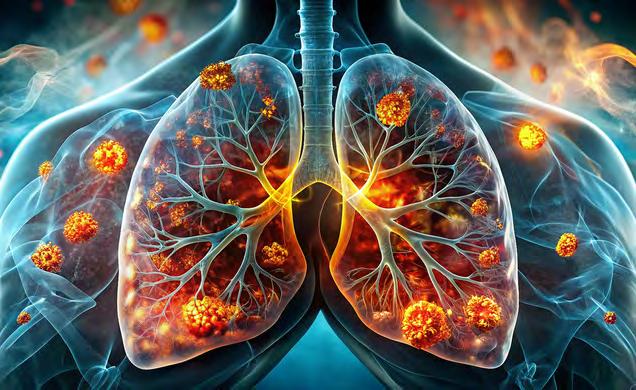

The world is undergoing continuous, accelerating change, evidenced by unprecedented wildfires, droughts, floods, and extinction events, many driven by the rapid decline of ecosystems. Environmental forecasting seeks to accurately predict changes in ecosystems and the services they provide in response to natural and human drivers. Led by Michael Dietze (Earth & Environment), and Jonathan Huggins (Mathematics & Statistics), the goal of this FRP is to lay foundations to establish BU’s leadership in the convergent area of environmental forecasting by bringing together our expertise across computer science, statistics, data science, ML/AI, biology, and ecology. Sponsor: Boston University’s Hariri Institute for Computing.

The AI for Understanding Earthquakes FRP, sponsored by the Hariri Institute, sought to apply artificial intelligence (AI) to explore promising research directions and to build a foundation for further research in this area. It brought together interdisciplinary AI and earth science experts from Boston University, Los Alamos National Laboratory (LANL), and Harvard University. The FRP goals were to explore optimal deep learning architectures for seismic data, investigate use of video-surveillance infrastructure as an alternative to costly Earthquake Early Warning (EEW) systems, and employ machine learning to advance our understanding of earthquakes. Led by Associate Professor Brian Kulis (ENG), collaborating BU faculty included Janusz Konrad (ENG), Rachel Abercrombie (Earth & Environment) and Prakash Ishwar (ENG).
In FY25, this FRP was awarded a three-year $750,000 National Science Foundation Collaborative Research grant. The project, titled “A Large Foundational Model for Earthquake Understanding,” will develop advanced AI models to analyze seismic data, improving earthquake detection, localization, and early warning systems. By uncovering hidden patterns in seismic waves, it aims to enhance prediction accuracy and save lives, while sharing open-source tools to advance research in earthquake science and other natural hazards.
The FRP organized the AI for Understanding Earthquakes Focused Research Program Symposium on May 8, 2025. The goal of the event was to foster discussion around the use of machine learning and AI in the study of earthquakes, and to build new collaborations in this area. The event was hosted by Kulis and Abercrombie, a seismologist known for her research on the process of earthquake ruptures. Speakers in-
cluded: Mostafa Mousavi, Assistant Professor of Geology, Geophysics, and Planetary Science at Harvard University who gave a talk on “Applications of LLMs in Earthquake Science: Estimating the Intensity of Ground Motion”; Sophie Giffard-Roisin, Visiting Fulbright Research Scholar at the Lamont Observatory, Columbia University, who gave a talk on “Machine Learning and Remote Sensing for Earthquake Characterization”; Theresa Sawi, Mendenhall Postdoctoral Research Fellow at the U.S. Geological Survey’s Earthquake Science Center at Moffett Field, CA, who gave a talk on “Rapid Earthquake Magnitude Estimation on Fiber Optic Cables and Strain Meters via Machine Learning”; and Timothy Clements, Research Geophysicist at the U.S. Geological Survey’s Earthquake Science Center at Moffett Field, CA, who gave a talk on “Opportunities for AI to Rapidly Forecasting Earthquake Shaking.”
The FRP helped establish ongoing collaborations with data scientists and research seismologists at LANL and ETH Zurich. The research team also collaborated on a federal grant proposal submission that builds on the FY25 accomplishments of this FRP.
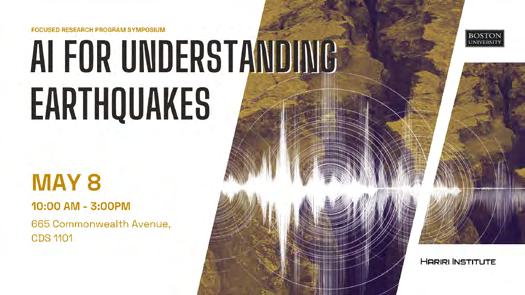
In January, a 3.8 earthquake off the coast of Maine shook the floors of New England — surprising many residents.
While earthquakes around that magnitude only happen once a decade in New England, other areas experience them more frequently. This year, there was a 7.0 earthquake off the coast of California and a 7.7 earthquake in Myanmar’s second-largest city.
Associate Professor Brian Kulis (ENG) explores how AI can enhance the detection, monitoring, understanding, and early warnings of earthquakes in his Hariri Institute Focused Research Program (FRP) “AI for Understanding Earthquakes.”
Kulis’s FRP originated when he realized his experience in audio-based machine learning could elevate current applications of artificial intelligence in seismic data. Using deep-learning models, such as state-space models which excel in music analysis, Kulis and his team tested the models’ ability to analyze seismic data.
“The model is basically learning to take a piece of seismic data and extract the most important information so that it can then reconstruct that seismic data from that little bit of information,” said Kulis.
With this success, Kulis’ team extracted data from other sources, such as video surveillance cameras. The team hopes to position video surveillance as a potential alternative to Earthquake Early Warning Systems for areas that can’t afford them—an alternative that could make a world of difference when every second counts.

Kulis and his team’s research is now backed by a $750K NSF grant. The team’s next step aims to improve earthquake prediction and understanding.
“There’s a lot of work in the seismic community about building synthetic earthquakes, like lab earthquakes,” said Kulis. “However, these laboratory experiments don’t fully capture how earthquakes occur in nature. By analyzing seismic data from real events, we may gain insights into the underlying processes that trigger earthquakes.”
Kulis and his team presented their findings at the Hariri Institute’s FRP Symposium “AI for Understanding Earthquakes” on May 8, 2025.
(Excerpt from a story authored by Maria Yaitanes and first published by the Hariri Institute)
The goal of this FRP was to demonstrate, for the first time, that large-scale computer systems could achieve cost reduction and energy efficiency improvements via a novel privacy-preserving, collaborative, and scalable analytics and optimization framework. Led by CISE Director and Professor Ayse Coskun (ENG) with Professors Adam Smith (CS), and Ajay Joshi (ENG), the FRP was co-sponsored by Hariri Institute and the Center for Reliable Information Systems & Cyber Security (RISCS).
This year’s work focused on incorporating privacy and confidentiality constraints into a framework that enables data centers to collaboratively adjust their power usage and make better use of the grid’s available capacity. Current findings of the project team show that the amount of information shared within the framework can be drastically reduced without affecting overall performance gains, potentially making the framework much more attractive to adopt and implement. The team is preparing a paper that will describe the findings and present a finer-grained picture of what kinds of information about a data center’s operations might be revealed to other data centers through such collaborative optimization.

On May 19, 2025, the FRP team organized a symposium titled “Data Center and Power Grid Interactions: Challenges and Opportunities,” co-sponsored by CISE and the Hariri Institute. The in-person event gathered leading experts across energy, grid operations, data centers, hardware, and privacy to discuss critical challenges and opportunities. Invited speakers included: Barry Ahern, Director of Transmission Planning, Asset Management and Engineering for National Grid in New England; Keith Benes, Former Senior Advisor, DOE Office of Policy; Vladimir Dvorkin, Assistant Professor of Electrical Engineering and Computer Science, University of Michigan; Hendrik F. Hamann, Professor at Stony Brook University and AI Chief Scientist at Brookhaven National Laboratory; Anuja Ratnayake, Emerging Technologies Executive at Electric Power Research Institute (EPRI); and Tongxin Zheng, Chief Technologist, Independent System Operator (ISO) New England.
This FRP’s research progress in sustainable, privacy-preserving data center analytics helped secure a $600,000 grant from the National Science Foundation Design for Environmental Sustainability in Computing (DESC) program in June 2025. The funded project, “FlexDC: Flexible Artificial Intelligence Data Centers for Optimized Computing,” will be led by Coskun with FRP Core Faculty Emiliano Dall’Anese (ENG), and ENG Postdoctoral Researcher Can Hankendi.
Throughout the year, FRP researchers shared their work at high-impact events. Coskun served on the planning committee for the National Academy of Sciences workshop on AI-driven data center energy use (November 12-13, 2024); delivered a keynote on flexible computing for sustainability at IEEE CloudCom (December 9-11, 2024); spoke on emerging grid
technologies at the MassCEC/ACT conference (May 21, 2025); and presented at a BU Research on Tap event (December 15, 2024). Seyda Guzelhan, an ECE PhD candidate on the FRP team, will also give a talk titled “Privacy-Preserving Energy Analytics using Secure Multi-Party Computation” at the First Workshop on Systems for Multi Party Computation (SysteMPC) on July 10, 2025 at Boston University; this work was co-authored by Guzelhan along with Fatih Acun (ECE PhD student), Hankendi, Palak Jain (CS PhD student), Connor Wagaman (CS PhD student), and Professors Smith, Coskun, and Joshi.
These engagements help transfer cutting-edge academic research to industry, inform policy discussions, and foster collaboration to improve energy efficiency and sustainability in data centers. Through innovative research and collaboration, the Privacy-Preserving Energy Analytics for Data Centers FRP is laying the groundwork for a more sustainable future.

Fatih Acun, Ioannis Ch. Paschalidis, and Ayse K. Coskun. 2024. “Conductor: A Collaboration Framework for Multi-Data-Center Demand Response.” In Proceedings of the 2024 IEEE 15th International Green and Sustainable Computing Conference (IGSC ‘24). IEEE Press, 22–28.
A.Tsiligkaridis, P. Andrianesis, A. K. Coskun, M. C. Caramanis and I. C. Paschalidis, “Distributed Economic Dispatch in Power Networks Incorporating Data Center Flexibility.” In IEEE Transactions on Sustainable Computing. vol. 10, no. 4, pp. 768-783.
G.Yang, S. Karimi, C. A. R. Ocampo, A. K. Coskun and A. Joshi, “SOPHIE: A Scalable Recurrent Ising Machine Using Optically Addressed Phase Change Memory.” 2024 57th IEEE/ACM International Symposium on Microarchitecture (MICRO), Austin, TX, USA, 2024, pp. 1548-1561.
E Linder, S Raskhodnikova, A Smith, T Steinke, “Privately Evaluating Untrusted Black-Box Functions.” Proceedings of the 57th Annual ACM Symposium on Theory of Computing. June 15, 2025, 2350 - 2361. Pages 2350 - 2361.
Self-driving labs (SDLs) combine robotics to automatically perform physical experiments with machine learning to intelligently select each experiment, offering a new approach that improves experimental speed, efficiency, and pace of knowledge generation. Historically, SDLs have been developed within single research groups or small collaborations. This FRP, sponsored by the Hariri Institute, explored whether SDLs could be shared with the community to enable broader access to accelerated research while harnessing collective expertise across the materials ecosystem. The FRP assembled an interdisciplinary team, led by Keith A. Brown (ENG), including Wenchao Li (ENG), Emily Whiting (CS), Sean Andersson (ENG), and Emma Lejeune (ENG).
During FY25, this FRP launched several initiatives exploring the concept of a community-driven SDL, including developing the infrastructure to make this system available to external users.
They explored the process of community-based collaboration with Professor Peter Frazier’s research team from Cornell University who are using the SDL to study Bayesian optimization algorithms. This collaboration discovered structures with superlative specific mechanical energy absorption, increasing from 26 J/g to 55 J/g, paving the way for developing advanced lightweight protective equipment.
They partnered with a BU SPARK! team to develop a public-facing web interface that allows users to register, interact with the SDL’s database, design structures, and submit experiments. This effort required advances in user experience, backend software, and data visualization. Work on this interface is continuing to ensure full integration with the SDL.
Data sharing and open science were central themes. The team organized the “FAIR Data Curation Workshop for Engineering” with BU Libraries, providing graduate
students with foundational training in making data Findable, Accessible, Interoperable, and Reusable (FAIR). The workshop included hands-on sessions where student teams curated real BU research datasets, culminating in presentations and discussions on improving data management at the University. As part of this effort, the SDL dataset was made publicly available through BU Libraries, where it has been downloaded 89 times as of June 2025. The team also evaluated the shared data and made recommendations to improve its documentation and usability.
The FRP developed a large language model (LLM)–based agent that 1) interacts with users to answer questions about the SDL and dataset using retrieval-augmented generation (RAG), and 2) collates questions that have not yet been answered to allow humans to add relevant information. Integration with the SDL’s public-facing website is planned to enhance accessibility and user support.
The team completed a thorough mechanical analysis of the SDL’s dataset, comparing measured values with predictions from mechanics informatics. This work
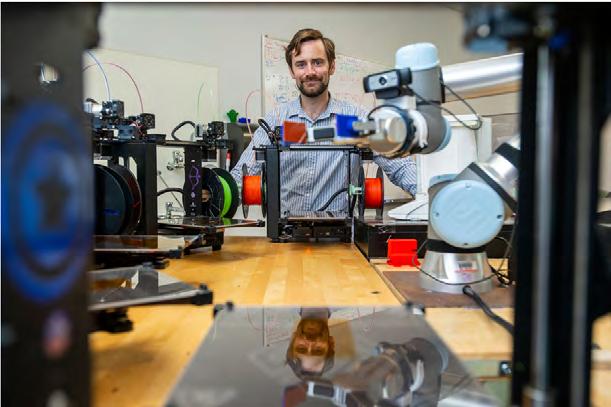
autonomous researcher (BEAR) that combines Bayesian optimization and high-throughput automated experimentation.
(Photo by Jackie Ricciardi for Boston University Photography)
launched a new collaboration between the Lejeune and Brown groups.
The FRP’s many achievements were enabled by Dr. Kelsey Snapp, who defended their PhD dissertation, “Discovering Tough and Impact-Resistant Structures using a Self-Driving Lab,” in July 2024.
Looking ahead, the FRP will build on these efforts, including hosting the Division of Materials Science and Engineering’s annual Materials Day in October 2025, focused on “From Automation to Collaboration: The Future of Self-Driving Labs,” with a confirmed lineup of high-profile speakers and plans for public design challenges and new partnerships.
B. Emery, K. L. Snapp, D. Revier, V. Sarkar, M. Nakura, K. A Brown, J I Lipton, “Foams with 3D Spatially Pro-grammed Mechanics Enabled by Autonomous Active Learning on Viscous Thread Printing.” Adv. Sci. 2024, 11, 2408062.
Verda Saygin, Yihong Xu, Sean B. Andersson, and Keith A. Brown, “Quantitative Mixing of Fluids Using Dip-Pen Nanolithography for Combinatorial Materials Sci-ence.” Nano Letters Article ASAP June 16, 2025. DOI: 10.1021/acs.nanolett.5c02539
Canty, R.B., Bennett, J.A., Brown, K.A. et al. “Science acceleration and accessibility with selfdriving labs.” Nat Commun 16, 3856 (2025).
W. Wang, A. B. Resing, K. A. Brown, J. G. Werner, “Elec-trodeposition of Polymer Networks as Conformal and Uniform Ultrathin Coatings.” Adv. Mater. 2024, 36, 2409826.
S Silverman, KL Snapp, KA Brown, E Whiting, “Data-Driven Nonlinear Deformation Design of 3D-Printable Shells.” 3D Printing and Additive Manufacturing, Published Online Ahead of Print February 24, 2025.
Harley Quinn, Gregory A Robben, Zhaoyi Zheng, Alan L Gardner, Jörg G Werner, Keith A Brown, “PANDA: a self-driving lab for studying electrodeposited poly-mer films.” Mater. Horiz., 2024, 11, 5331-5340.
Brown, Keith A. “Self-Driving Labs for Polymer Research across Scales.” Invited talk, Physics Department Seminar Series, Boston College, September 2024.
Brown, Keith A. “Self-Driving Labs for Polymer Research across Scales.” Invited talk, Department of Chemical Engineering Seminar Series, Carnegie Mellon University, September 2024.
Brown, Keith A. “Self-Driving Labs for Polymer Research across Scales.” Invited talk, Center for Nanoscale Materials Colloquium, Argonne National Laboratory, October 2024.
Brown, Keith A. “Superlative Mechanical Energy Absorbing Efficiency Discovered through Self-Driving Lab-Human Partnership.” Invited conference talk, Fall 2024 Meeting of the Materials Research Society, December 2024.
Brown, Keith A. “Autonomous Experimentation and Nanotechnology.” Invited talk, National Science Foundation (NSF) Nanoscale Science and Engineering Grantees Conference, December 2024.
Brown, Keith A. “Turning 3D Printers into a Self-Driving Lab for Extreme Mechanics.” Guest lecture, CS 581, University of Toronto, March 2025.
Brown, Keith A. “Turning 3D Printing into a Self-Driving Lab for Extreme Mechanics.” Invited panel discussion, AI for Understanding and Designing Materials (aiM) Workshop, Duke University, May 2025.
Brown, Keith A. “Autonomous Manufacturing as a Design Tool for Extreme Mechanics.” Invited talk, Chicago Future Manufacturing Seminar Series, May 2025.
Keith A. Brown, named the inaugural chair for the Materials Research Society (MRS) AI topical community.
Keith A. Brown, named a 2024 Outstanding Reviewer for Digital Discovery.
This FRP sought to enhance the fairness, interpretability, and clinical utility of AI models for breast cancer risk prediction through meaningful clinician-AI collaboration. Its three research thrusts focused on building a demographically representative mammography dataset, using large language models to improve interpretability for clinicians, and evaluating model fairness and accuracy. Co-led by Professors Clare Poynton, MD, PhD (Chobanian & Avedisian SOM), and Kayhan Batmanghelich, PhD (ENG), the project was co-sponsored by the Digital Health Initiative (DHI) at the Hariri Institute, the SPH Center for Health Data Science, the Clinical and Translational Science Institute, and the Evans Center for Interdisciplinary Biomedical Research.
In FY25, the FRP advanced its goals through collaborations, funding opportunities, and dissemination of research findings via publications and presentations. Highlights include:
Batmanghelich received a Google Research Award with Dr. Motahhare Eslami of Carnegie Mellon University for their project, “Bias Awareness and Mitigation in Breast Cancer Risk Prediction for Marginalized Groups Through Participatory AI.” The project will integrate bias awareness and mitigation into AI models for predicting breast cancer risk for marginalized groups through collaboration with clinicians, community hospitals, and marginalized stakeholders.
Poynton received a subaward from the Patient-Centered Outcomes Research Institute (PCORI) and will serve as the BMC site PI for the project “Pragmatic RCT of AI in Mammography: Effect on Accuracy, Patient Reported Outcomes, and Health Equity.” This multi-site, first-of-its-kind pragmatic randomized clinical trial will compare radiologist performance and patient out-
comes for 3D mammograms interpreted with, versus without, an FDA-cleared AI tool. Boston Medical Center’s participation will help advance health equity in AI implementation and address knowledge gaps for diverse populations.
Additionally, the research team published key papers in MICCAI and NAACL, and presented findings at the 11th International Breast Density Workshop. Additionally, a paper has been accepted for the upcoming ACL 2025 conference. These contributions include new vision-language models for mammography, uncertainty quantification techniques for radiology report generation, and tools for language-driven error detection in AI systems.
An FRP symposium is planned for FY26 to share research findings and advance future research collaborations.
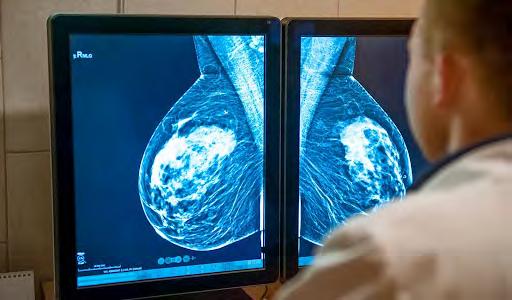
Selected publications
Shantanu Ghosh , Clare B. Poynton , Shyam Visweswaran, and Kayhan Batmanghelich. “Mammo-CLIP: A Vision Language Foundation Model to Enhance Data Efficiency and Robustness in Mammography.” Proceedings of Medical Image Computing and Computer Assisted Intervention. (MICCAI 2024), October 6-10, 2024. LNCS 15012. 632 -- 642.
Wang, Chenyu & Zhou, Weichao & Ghosh, Shantanu & Batmanghelich, Kayhan & Li, Wenchao. (2024). “Semantic Consistency-Based Uncertainty Quantification for Factuality in Radiology Report Generation.” In Findings of the Association for Computational Linguistics: NAACL 2025, pages 1739–1754, Albuquerque, New Mexico. Association for Computational Linguistics.
Shantanu Ghosh, Rayan Syed, Chenyu Wang, Vaibhav Choudhary, Binxu Li, Clare B. Poynton, Shyam Visweswaran, Kayhan Batmanghelich. “LADDER: Language-Driven Slice Discovery and Error Rectification in Vision Classifiers.” Accepted for publication in 63rd Annual Meeting of the Association for Computational Linguistics (ACL 2025), July 27 to August 1st, 2025.
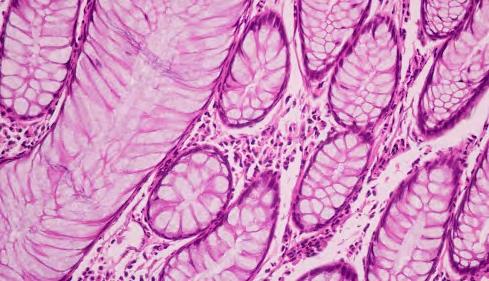
Julie R. Palmer (SPH) – Core Faculty of the Enhancing Models for Breast Cancer Risk Prediction and Bias Mitigation through Clinician AI Collaboration FRP – gave a talk titled “Breast Cancer Disparities Research in the Black Women’s Health Study” at BU’s Research on Tap: Women’s Health and Cultivating a Research Community on November 15, 2024.
The goal of the Focused Research Program on Multimodal Transformer Architectures for Neuropathology Study of Alzheimer’s Disease is to improve premortem diagnosis of neuropathologic processes underlying cognitive impairment (mild cognitive impairment and dementia) utilizing a machine learning approach to define patterns in MRI scans and neuropsychological data that predict underlying neuropathology and then understand these patterns through latent space analysis. The Focused Research Program is led by Xin Zhang (ENG) and Chad Farris (Chobanian & Avedisian SOM). It is co-sponsored by the Digital Health Initiative at the Hariri Institute, the School of Public Health Population Health Data Science Program, the Clinical and Translational Science Institute, and the Evans Center for Interdisciplinary Biomedical Research.
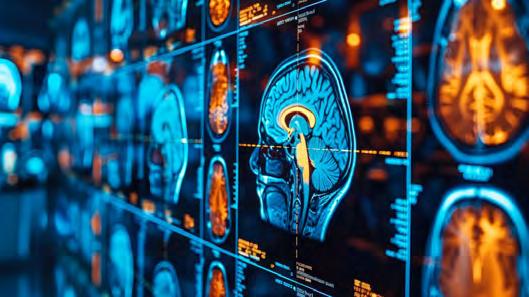
During FY25, the FRP team held nearly weekly meetings to combine the expertise from the Charles River and Medical Campuses for this highly collaborative project. A machine learning architecture was created to accept multisequence MRI data and neuropathologic data and multiple potential designs for incorporating neuropsychological testing data were devised. The general model was further trained on diverse high-level tasks across distinct modalities, including various classification and segmentation tasks. Through the fine-tuning process, the model was able to successfully detect brain alterations associated with neuropathology related to cognitive impairment, such as regional atrophy. The general model approach with superimposed fine-tuning for specific tasks developed during this FRP has broad applicability for potential detection of neuroimaging biomarkers for underlying neuropathology, but is also well suited for potential detection of relevant neuroimaging biomarkers for many other disease processes, such as stroke, epilepsy, and multiple sclerosis. The FRP researchers are preparing to submit the manuscript describing the developed architecture and its comparison to other available architectures on high level tasks. The FRP researchers have also submitted their first of multiple planned NIH grant proposals based on the work in FY25.
Determining whether someone has Alzheimer’s disease typically involves a battery of assessments— interviews, brain imaging, and blood or cerebrospinal fluid tests. By the time these assessments detect clear signs, it is often too late: memories may already be slipping, long-established personality traits subtly shifting. Early detection is critical because emerging treatments can slow disease progression, but predicting who will develop Alzheimer’s-associated dementia has remained challenging.
Researchers at Boston University have developed a large language model that analyzes speech to predict Alzheimer’s risk. The model can estimate—with 78.5 percent accuracy—whether someone with mild cognitive impairment will remain stable or progress to dementia over six years. This approach allows clinicians to make earlier, more informed diagnoses and could broaden access to screening by reducing reliance on expensive lab tests, imaging, or office visits.
“We wanted to predict what would happen in the next six years—and we found we can do so with reliable accuracy,” says Yannis Paschalidis, Director of the BU Hariri Institute and Distinguished Professor of Engineering. The team published their findings in Alzheimer’s & Dementia, highlighting a collaboration of engineers, neurobiologists, and data scientists.
The model was trained using audio from 166 participants in the Framingham Heart Study, a long-term project with extensive cognitive data. Of these participants, 76 remained cognitively stable, while 90 experienced decline. By combining speech content with basic demographic information, the large language model identified patterns that correlate with future cognitive changes.
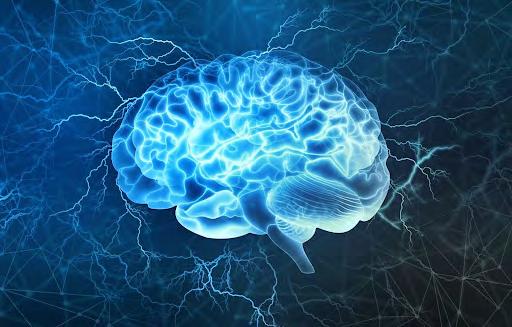
Rather than focusing on how participants spoke, the model analyzes the content—the words and their structure—to calculate the likelihood of cognitive decline. “Even from real-world interview recordings, the model demonstrates significant predictive ability,” Paschalidis notes.
Co-author Rhoda Au, Professor at BU Chobanian & Avedisian School of Medicine and Hariri Institute Core Faculty, emphasizes the broader implications: “AI can expand access to cognitive assessment and provide a screening method that is inclusive across age, gender, education, language, and geography.”
Future research may extend analysis to everyday conversations, patient drawings, and daily life patterns, potentially integrating smartphone-based monitoring to further improve prediction and accessibility.
(Excerpt from a story authored by Andrew Thurston, Editor, The Brink, a research news publication of Boston University.)
Led by Professors Gregory Wellenius (SPH) and Lucy Hutyra (Earth & Environment), this FRP aimed to solidify cross-campus collaboration and advance BU’s leadership in solution-oriented climate and health research. The program was co-sponsored by the Hariri Institute and the Institute for Global Sustainability (IGS).
The FRP supported research on projected heat hazard that was presented at the 2024 annual meeting of the American Geophysical Union, published in Environmental Research: Health, and shared through interactive visualizations on the BU Center for Climate and Health (CCH)’s website. The FRP work culminated in a December 6, 2024 symposium titled Climate, Biogeoscience, and Health, co-sponsored by BU’s CCH, URBAN graduate program, and Program in Biogeoscience. The symposium convened faculty, staff, students, and community stakeholders to discuss relevant, actionable research across BU directly connected to policy and practice.
Shared resources and sustained communication from the FRP have proven crucial to advancing partnerships and securing new funding. In January 2025, FRP researchers were granted a $3.2 million Climate Impacts Award from Wellcome Trust to launch the Community Adaptations to City Heat (CATCH) Project. Led by Professor Patricia Faban (SPH), the interdisciplinary collaboration brings together BU researchers from the CCH, IGS, Initiative on Cities, and URBAN graduate studies program, along with external collaborators Dialogue Earth, Iseechange, and A Better City. The team, which includes SPH Professors Stephanie Ettinger de Cuba, Madeleine Scammell, and Greg Wellenius, and CAS Professors Ian Sue
Wing and Lucy Hutyra, will focus on mapping vulnerability and connecting actionable programs and policies to mitigate the health impacts of extreme heat across the U.S., with a focus on Boston, Phoenix, and New Orleans.
In March 2025, the research team and the Metropolitan Area Planning Committee (MAPC) received funding from the Doris Duke Foundation to catalyze collaboration in Metro Boston. On June 18, 2025, the project convened researchers, state and municipal governments, healthcare institutions, community organizations, foundations, and advocacy groups for Fostering Collaborations: A Symposium to Advance Equitable Heat Health Actions.
FRP leadership and core faculty have also formed relationships with global leaders in climate and health actions, including C40 Cities and the World Resources Institute.
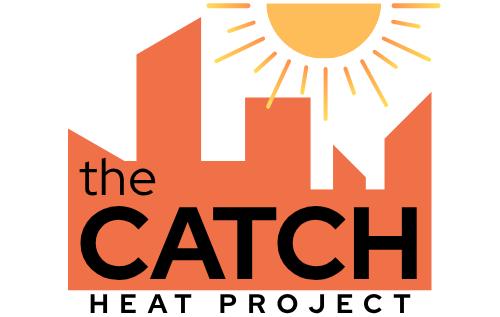
In January 2025, FRP researchers were granted a $3.2 million Climate Impacts Award from Wellcome Trust to launch the Community Adaptations to City Heat (CATCH) Project.
Featured Publications:
Popp Z, Sue Wing I, Lane KJ, Wellenius GA. “A US Heat Disaster? Intersection of Social Vulnerability and Temperature Extremes Exacerbated by Mid-Century Climate Change and Population Shifts.” Environ Res Health. 2025;3:025009.
Falchetta G, De Cian E, Sue Wing I, Carr D. “Global Projections of Heat Exposure of Older Adults.” Nat Commun. 2024;15:3678.
David Miller, Quinn H. Adams, and Gregory A. Wellenius. “Urban Collaborations: Bridging the Gap Between Research and Action on Climate Change and Health.” Journal of City Climate Policy and Economy 2025 3:2/3, 204-214.
L Hutyra. “Cooling Our Cities: Optimizing Trees and Roofs for Equity.” AAAS 2025 Annual Meeting, Boston, Feb. 15, 2025.
Considine, E. M., Nethery, R. C., Wellenius, G. A., Dominici, F., & Tec, M. (2025). “Optimizing Heat Alert Issuance with Reinforcement Learning.” Proceedings of the AAAI Conference on Artificial Intelligence, 39(27), 27922-27931.

By mid-century, the U.S. will be much hotter. Heatwaves will last longer, summer temperatures will soar, and the number of dangerously hot days will rise. But not everyone will feel the heat in the same way.
A Boston University-led study published in Environmental Research: Health reveals that communities least equipped to cope will endure the greatest increases in heat exposure.
These vulnerable communities include elderly residents in poorly insulated homes, low-income families, and urban neighborhoods lacking shade or cooling centers. The study’s novel, data-driven approach integrates climate projections, population shifts, and the CDC’s Social Vulnerability Index (SVI)— which accounts for factors like poverty, crowded housing, and age—to pinpoint areas at highest risk.
Researchers evaluated extreme heat with three metrics: the number of days the heat index exceeded 104°F, chronic heat based on estimated air conditioning needs, and acute heat based on the 95th percentile of daily highs. They ran these measures across 30+ global climate models and paired them with demographic projections to assess how heat and population growth intersect with social vulnerability.
Geographically, the U.S. South and West will experience substantial absolute heat increases. However, New England is poised to see the largest relative rise in dangerously hot days, and it’s less prepared with cooling infrastructure. Meanwhile, rapid population growth in the Southeast and Southwest may exacerbate heat dangers— particularly in cities facing urban heat island effects like reduced tree cover and dense development.
This spatially precise research supports targeted adaptation, such as increasing green spaces, using reflective roofing, improving cooling center access, and bolstering emergency services—especially where vulnerable populations live.
Lead Author and Research Data Analyst (SPH) Zachary Popp emphasizes, “As the planet heats up, those least able to cope will suffer the most.” This underscores the urgency of proactive measures to mitigate growing health risks from extreme heat.
(Excerpt from a story authored by Maeve Smillie and first published by the Hariri Institute.)
In FY25, the BU-AIRR program awarded $290,000 to 26 AI research projects from 35 BU faculty members affiliated with six colleges and 13 departments. This program aims to enable and seed large-scale AI research at Boston University by facilitating access to the powerful production cloud resources of the New England Research Cloud (NERC). The initiative was funded with support from the Hariri Institute, the College of Engineering, the Department of Electrical & Computer Engineering, and the Office of Research.
The NERC is an affordable fee/hour production cloud service, operated by BU and Harvard Research IT, that offers access to top-of-the-line CPUs (Nvidia A100 GPUs, and Nvidia H100 GPUs) and storage solutions. Administered by the MOC Alliance, the NERC was founded to provide more cost-effective high-end cloud services to any researcher from BU or other institutions.
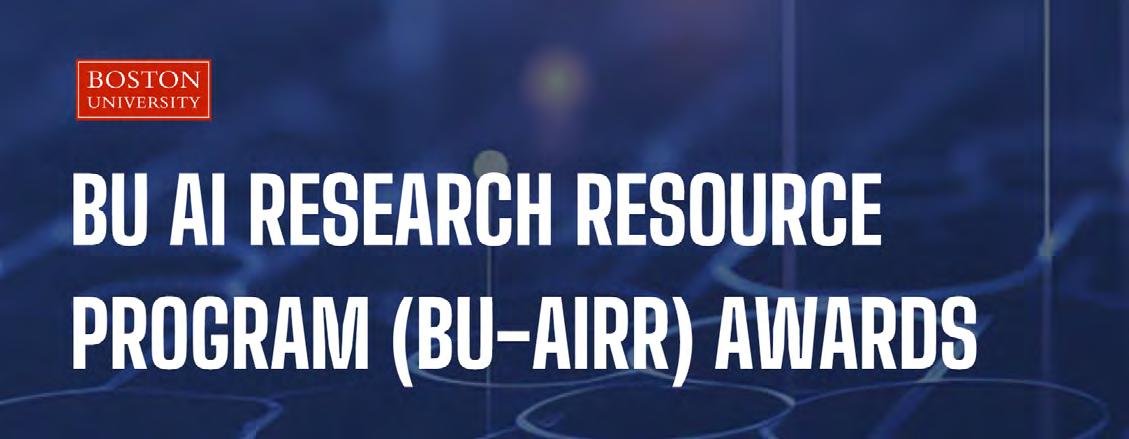
1) Project: “A Biomechanically and Anatomically Aware Multi-Modal Foundational Model for the Lung CT Images.” Personnel: PI: Kayhan Batmanghelich (ENG).
2) Project: “Mammo-FM: Foundational Vision-Language Model for Enhancing Breast Cancer Risk Prediction Explainability and Bias Mitigation through Clinician-AI Collaboration.” Personnel: PI: Kayhan Batmanghelich (ENG).
3) Project: “Machine Learning Assisted Transition Metal Dichalcogenide Dynamical Studies.” Personnel: PI: David Coker (Chem); Collaborating Investigator: Xi Ling (Chem); Student: Camilo Zuluaga (Chem).
4) Project: “AI for Automating Cloud Operations.” Personnel: PI: Ayse Coskun (ENG); Collaborating Investigators: Gianluca Stringhini (ENG), Manuel Egele (ENG), and Brian Kulis (ENG).
5) Project: “AI for Improving Efficiency and Sustainability of Computing.” Personnel: PI: Ayse Coskun (ENG); Collaborating Investigators: Manuel Egele (ENG), Brian Kulis (ENG), Adam Smith, Professor (CS), Ajay Joshi, Professor (ENG) and Emiliano Dall’Anese (ENG).
6) Project: “LLMs for Provably Correct Distributed Programming.” Personnel: PI: Ankush Das (CS); Collaborating Investigators: Shrimai Prabhumoye (CS); Deepti Ghadiyaram (CS).
7) Project: “Uncovering Dynamic Neural Interactions Between Hierarchical Brain Regions.” Personnel: PIs: Brian DePasquale (ENG) and Michael Economo (ENG).
8) Project: “Understanding Behavioral Dynamics During Learning in Genetically Diverse Populations.” Personnel: PI: Brian DePasquale (ENG); Collaborating Investigator: Jerry Chen (Bio); PhD Student: Halley Jeanne Dante (ENG).
9) Project: “Democratizing Research on Multimodal Foundation Models.” Personnel: PI: Boqing Gong (CS); Collaborating Investigator: Venkatesh Saligrama (ENG).
10) Project: This project aims to develop specialized large language models (LLMs) for the enhancement of binding affinity and classification prediction and to generate accurate structural models for antibody-antigen and MHC-peptide complexes. Personnel: PIs: Diane Joseph-McCarthy (ENG) and Sandor Vajda (ENG).
11) Project: “How Video Content Drives Sales in Influencer Marketing.” Personnel: PI: Shunto Kobayashi (Questrom); PhD Student: Wenyi Huang (Questrom).
12) Project: “Leveraging AI and Remote Sensing Data for Automated Flood Mapping.” Personnel: PI: Magaly Koch (Earth & Environment).
13) Project: This project is developing an automated tool to address challenges of distinguishing between healthy sharp wave ripple (SWR) from pathologic spike ripples (SR) in human hippocampal recordings. Personnel: PI: Mark Kramer (Math).
14) Project: “Multi-Task Decision Transformers.” Personnel: PI: Wenchao Li (ENG).
15) Project: “Uncertainty Quantification for Vision-Language Models.” Personnel: PI: Wenchao Li (ENG).
16) Project: “LLMKernel: Efficient LLM Pre-Training and Fine-Tuning Strategies for Systems.” Personnel: PI: Eshed Ohn-Bar (ENG); Collaborating Investigators: Lance Galletti (CS), Kate Saenko (CS), Renato Mancuso (CS), Adam Smith (CS); PhD Students: Lei Lai (CS); Arijit Ray (CS); Hee Jae Kim (ENG).
17) Project: “Automated Lesion Segmentation in Traumatic Brain Injury and Relationship with Pupillometry.” Personnel: PI: Charlene J. Ong (Chobanian & Avedisian SOM); Collaborating Investigators: Shariq Mohammed (Biostatistics); Mohamad Abdalkader (Chobanian & Avedisian SOM); Medical Student: Charles L. Chen, MS (Chobanian & Avedisian SOM).
18) Project: “Learning how to Learn.” Personnel: PI: Aldo Pacchiano (CDS); Collaborating Investigator: Alessio Russo (CDS); PhD Students: Yilei Chen (ENG), Aida Afshar (CDS), and Yichen Song (CDS).
19) Project: “Enhancing Reasoning in Artificial Intelligence Models.” Personnel: PIs: Aldo Pacchiano (CDS), Michael Hasselmo (Psych & Brain Sciences); PhD Students: Yilei Chen (ENG), Mark Tracy (ENG).
20) Project: “Versatile, Safe and Personalizable Large Language Models.” Personnel: PI: Aldo Pacchiano (CDS); Collaborating Investigator: Alessio Russo (CDS); PhD Students: Yichen Song (CDS), Aida Afshar (CDS), Yilei Chen (ENG).
21) Project: This research will design, develop, and make publicly available the models and automated tools to facilitate rapid image-based cellular analysis in basic biological research and other biotechnology systems. Personnel: PI: Bryan Plummer (CS).
22) Project: “BabyGPT: Developmentally Plausible Learning of Multimodal Foundation Models.” Personnel: PI: Venkatesh Saligrama (ENG); Collaborating Investigator: Boqing Gong (CS).
23) Project: “Large Graph Models for Cybersecurity.” Personnel: PI: David Starobinski (ENG).
24) Project: “Developing an AI-based Content Moderation Pipeline for Social Media.” Personnel: PI: Gianluca Stringhini (ENG).
25) Project: “Analyzing Global Election Discourse.” Personnel: PI: Chris Chao Su (COM).
26) Project: “Developing a Neuropathology Foundation Model for Advancing Analysis of Neurodegenerative Diseases.” Personnel: PIs: Lei Tian (ENG), Jonathan Cherry (Chobanian & Avedisian SOM).

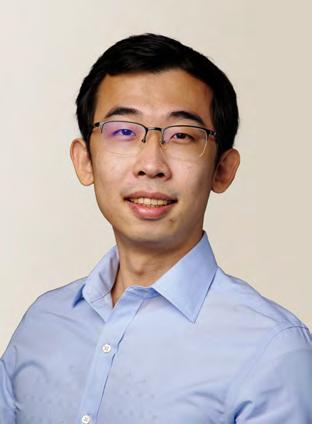
“This award provided me the opportunity to engage with a vibrant interdisciplinary community and facilitated dialogue with researchers I might not have otherwise encountered. Conversations with these researchers helped me generate ideas that are important to my ongoing work, and initiated potential opportunities to write grant proposals together.”
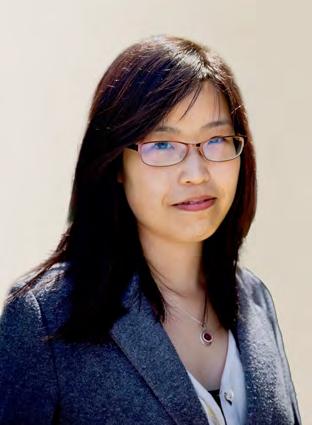
“During my appointment, I had the opportunity to host the Distinguished Speaker Series, which enhanced my ability to foster interdisciplinary dialogue and connect with researchers across fields. Additionally, I used the SAIL team to support one of my research projects that requires software engineering support.”
Our Junior Faculty Fellows program aims to both recognize outstanding earlycareer computing and data-driven researchers at Boston University and support their continued development by connecting them with one another and with the Institute community at large through various mechanisms and activities. Junior Faculty Fellows are early-career faculty researchers who are selected for a three-year appointment.
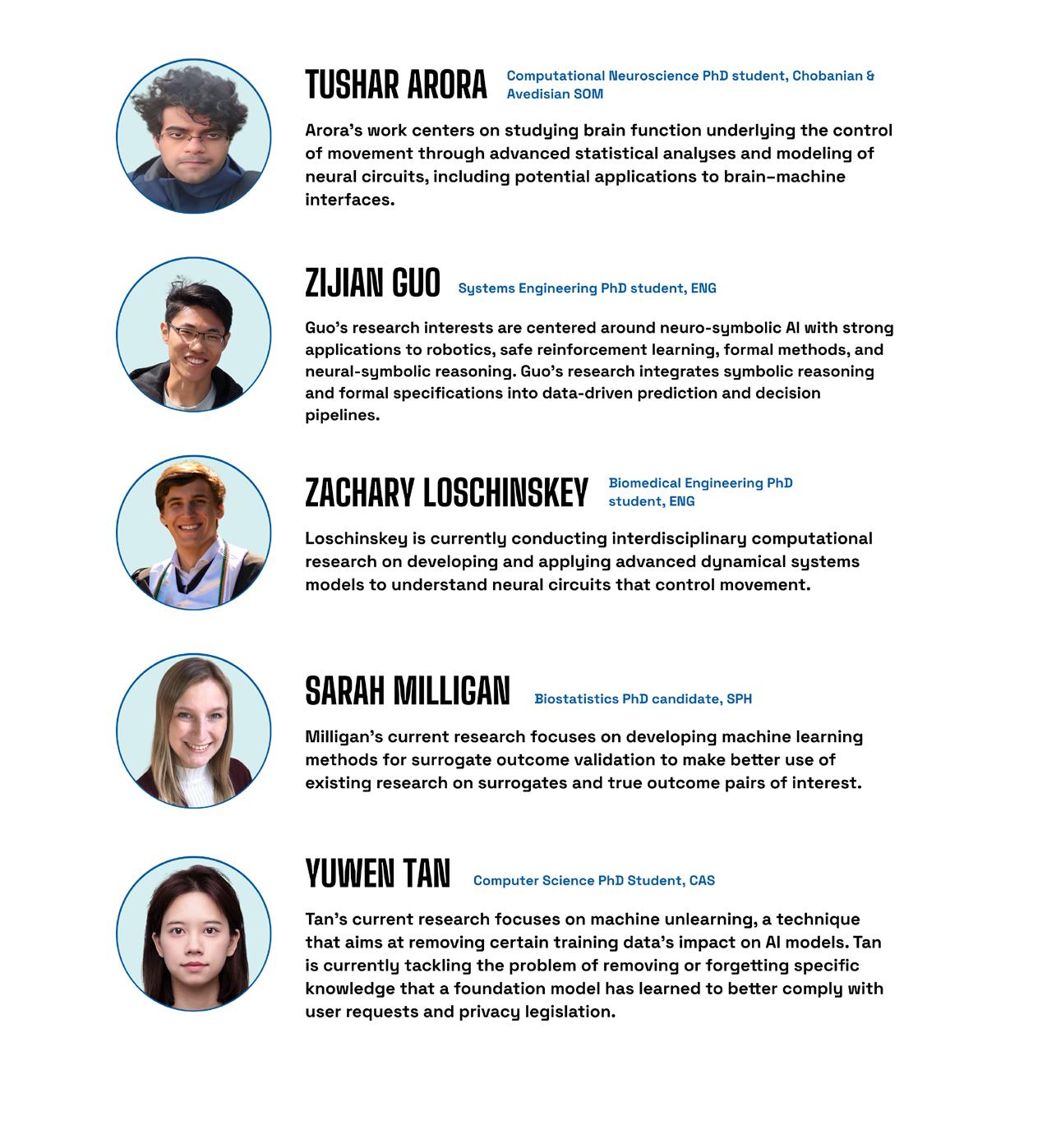
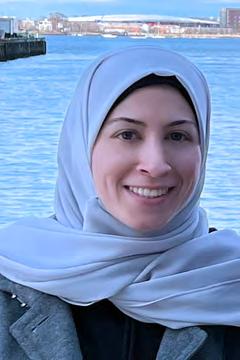
“The fellowship not only validated the importance of my research but also connected me to a larger network of computational researchers and scholars. Attending conferences and presenting at them helped improve both my networking and presentation skills.”
— Hiba Kobeissi, Mechanical Engineering PhD candidate, ENG; Graduate Student Fellow (2022).
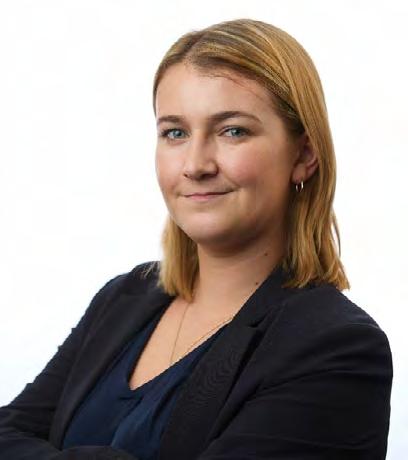
“These opportunities have allowed me to stay informed about current research and connect with academic scientists and industry leaders who are using data-driven approaches to address speech and communication impairments in rare diseases—perfectly aligned with my prospective future career.”
Daria Dragicevic, Speech, Language, and Hearing Sciences PhD student, SAR; Graduate Student Fellow (2022).
Our Graduate Student Fellows program recognizes outstanding PhD students who are pursuing computing and data-driven research at Boston University. These fellows have a a three-year appointment.
Data Science Mentorship Circles (DSMC) is a Hariri Institute program that connects BU alumni who are working in the data science field with BU graduate students from diverse fields spanning astronomy, biostatistics, computer science, data science, engineering, and mathematics and statistics. DSMC selects mentors through a call for applicants done annually in September. Throughout the year, DSMC organized workshops for professional development and networking, and student mentees met with mentors monthly.
In FY25, DSMC enrolled 50 student mentees from an applicant pool of 84, and 16 mentors. It organized three main events, including an online speed networking event, online midyear panel discussion, and an in-person end-of-year panel discussion and networking session. In addition, DSMC hosted three workshops covering topics such as the art of networking, tips and tricks for resume crafting, and nailing interviews. Each DSMC mentor also worked with their mentees to revise resumes at least twice and conducted at least one mock interview with feedback. These efforts drew in an audience of about 190 attendees.
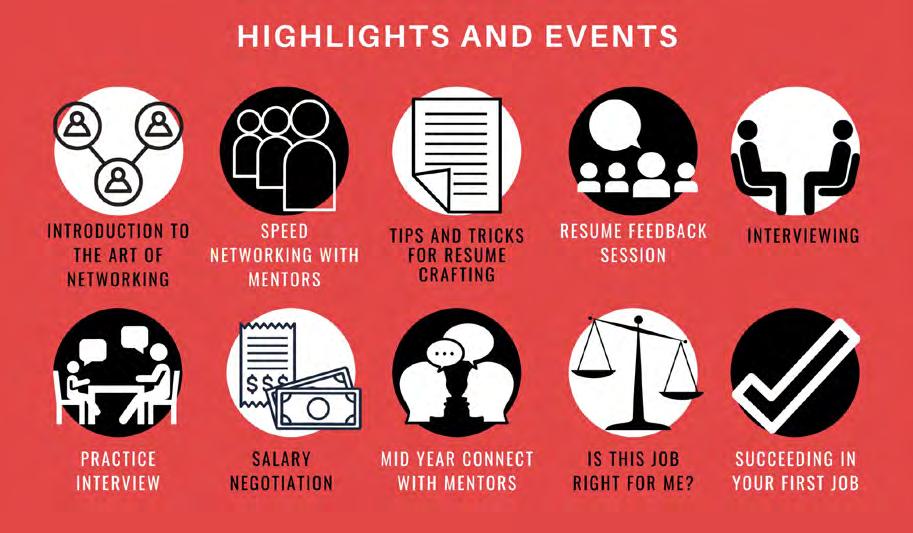
“It was really nice getting to know my mentees, and I hope our interactions were helpful to them.”
— Brian Hart, (MSSP 2017, Senior Data Scientist, Catapult Sports, Chicago), DSMC Mentor
“The program was very well designed, and I learned so much. Meeting new people—some of whom are the best in their fields—was incredible. I gained a lot of insights.”
— Ahmet Berk Tuzcu (PhD student, Electrical and Computer Engineering), DSMC Mentee
“It has been great to connect with a professional who could give me career advice on various topics. DSMC gave me the opportunity to build a deeper relationship with one mentor—something I wouldn’t have been able to do on my own.”
— Namika Takada (MS student, Computing and Data Science), DSMC Mentee
“I learned about internal structural changes in companies in response to the AI boom and how it affected them. While not all-encompassing, it gave me valuable insight.”
— Muhammed Enes Simsek (MS student, Computer Science), DSMC Mentee
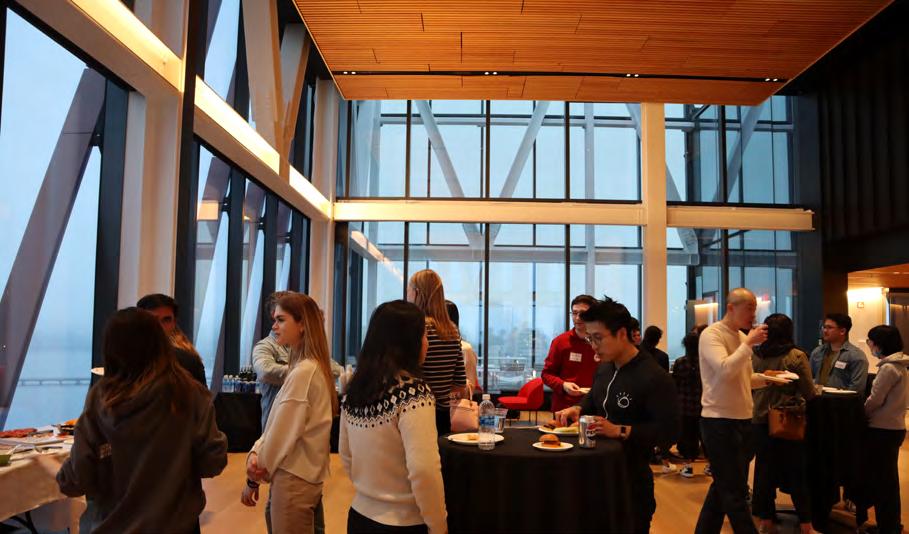
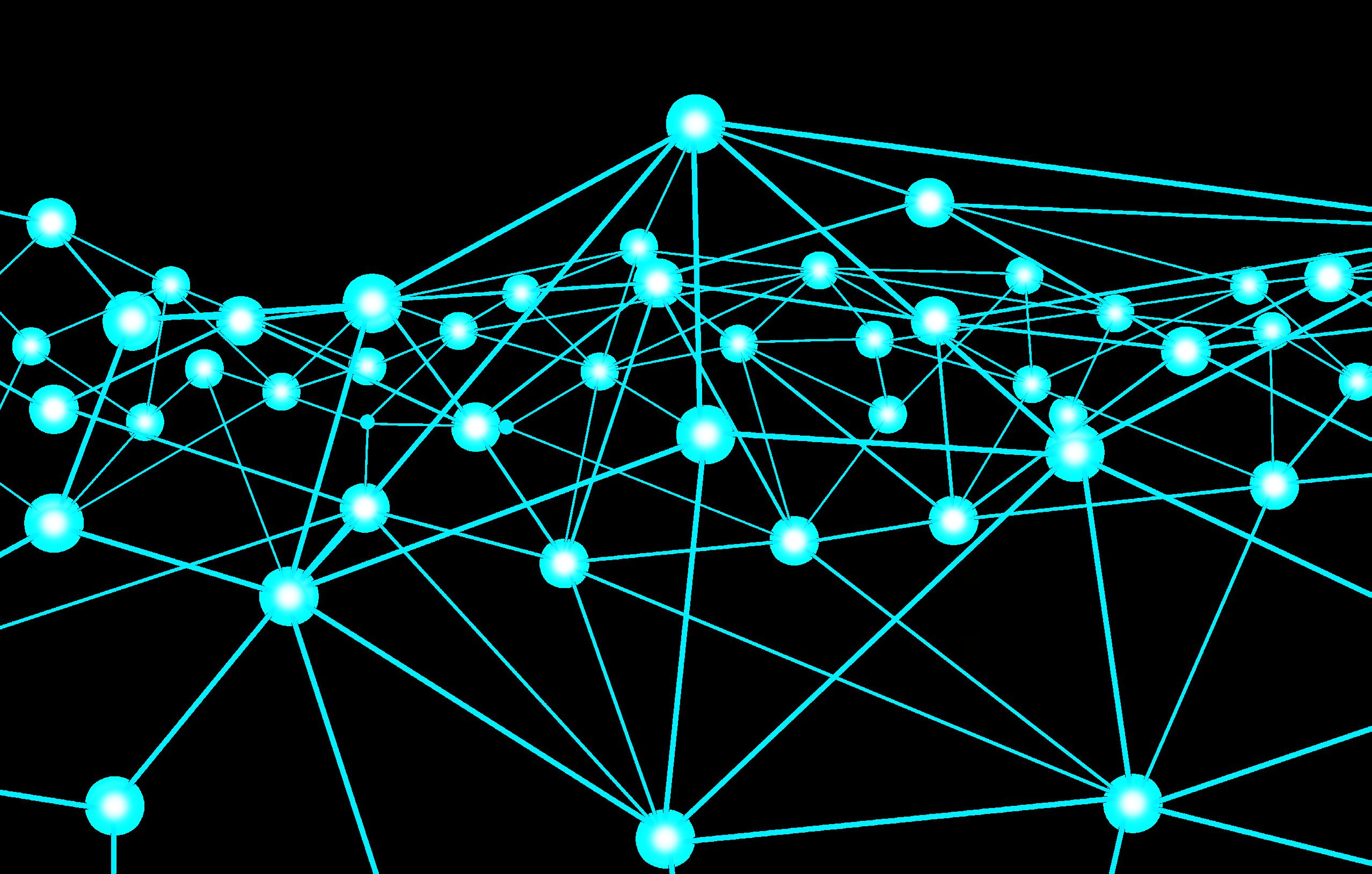


MOC Alliance Software & Application Innovation Lab (SAIL)

Center for Computational Science

Center for Reliable Information Systems and Cyber Security (RISCS)
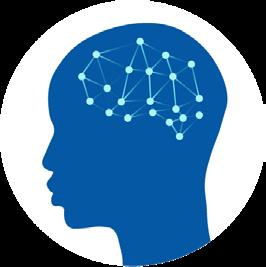
AI Research Initiative (AIR)

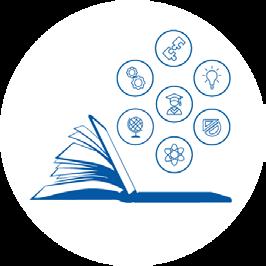
Collaboratory AI and Education Initiative
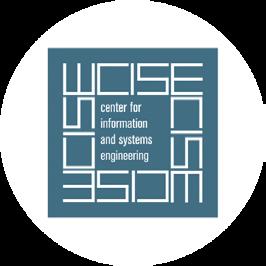
Center for Information and Systems Engineering (CISE)

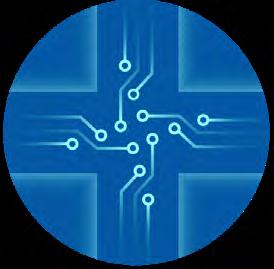
The AI and Education Initiative aims to use AI to inform human learning and teaching, take inspiration from human learning and teaching to advance AI, and build use-inspired AI technologies learners can use to transform themselves and the world. The Initiative transcends disciplinary boundaries, drawing on perspectives on learning spanning computing, education, design, social sciences, medicine, business, and beyond.
Led by Naomi Caselli, Associate Professor (Wheelock), the Initiative thrived in 2024–2025. New offerings included Professor Michael Chang’s (Wheelock) course, Co-designing Equitable Futures for AI and Education, and an interdisciplinary lunch lecture series on human and machine learning. With recent professional development engagements spanning dozens of local Boston schools and the launch of a new translational research team, the Initiative continues to amplify the impact of cutting-edge scholarship and make discovery broadly accessible.
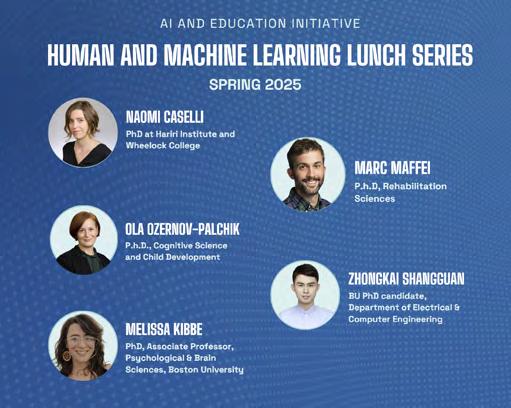
Seed funding from the 2023-24 year catalyzed a wave of ambitious external funding proposals. Caselli led two funded projects on AI-enabled sign language technologies for deaf people, including “Rehabilitation Engineering Research Centers on Technology for People who are Deaf or Hard of Hearing,” sponsored by the DHHS Administration for Community Living ($605,529) and “Quantifying
Sign Reduction in Sign Language Using Human Pose Estimation,” sponsored by the National Science Foundation ($208,058). Initiative faculty also submitted proposals for four projects totaling over $2 million. Ola Ozernov-Palchik (Wheelock) is working to build scalable early reading interventions powered by AI. Nermeen Dashoush (Wheelock) has proposed research on code-switching, children’s AI literacy, and co-designing family-centered media for computational learning. Gregory Benoit (Wheelock) and Meghan Shaughnessey (Wheelock) are pursuing research on mathematics teacher education through simulations, and Scott Solberg (Wheelock) is leveraging AI to support career readiness and computational thinking.
Core and affiliated faculty collectively produced 140 scholarly publications, highlighting their wide-ranging contributions to AI and education. Chang has published extensively on co-designing AI alongside learners, with articles in the Journal of the Learning Science, CHI, and other venues. Work by Eshed Ohn-Bar (ENG), Ozernov-Palchik, and colleagues have advanced AI applications for early literacy. Caselli’s research, featured in NAACL and PNAS, focuses on developing AI-enabled tools for American Sign Language. Solberg, Derry Wijaya (CS), and Jennifer Green (Wheelock) have collaborated on applying natural language processing techniques to support mental health.
Additionally, Initiative doctoral fellows produced scholarly papers addressing critical topics such as scalable early childhood reading performance prediction (Shangguan et al., NeurIPS 2024); training large language models to deliver expert-endorsed feedback for novice teachers (Barno et al., ACM Learning @ Scale 2024); and simulating equitable discussions in math teacher professional learning (Benoit et al., IGI Global 2025).
Faculty strengthened research impact and academic exchange through presentations at conferences and events worldwide. CS Professor Margrit Betke’s team has led work on the prediction of student math learning outcomes from facial expressions, with re-
sults presented at the International Conference on Artificial Intelligence in Education. Leslie Dietiker (Wheelock) gave three invited talks abroad, including as Conference Committee Chair and plenary speaker at ISDDE in Galway, Ireland (May 2025), and at Loughborough and Nottingham on curriculum design and AI in math education. TJ McKenna (Wheelock) joined 60 international delegates at the Moving Thinking Forward workshop at Cambridge (Sept 2024), contributing on scalable AI for dialogic learning. Caselli presented at the AAAS Annual Meeting (Feb 2025, Boston) on big data approaches to the structure and learning of visual languages.
Looking ahead, the Initiative is partnering with area school districts and developing a new AI and Learning degree, reflecting BU’s commitment to research, innovative education, and equitable, human-centered AI.
Barno, E., Albaladejo-González, M., & Reich, J. (2024). “Scaling generated feedback for novice teachers by sustaining teacher educators’ expertise: A design to train LLMs with teacher educator endorsement.” L@S ’24: ACM Conf. on Learning @ Scale, 412–416.
Benoit, G., Barno, E., Reich, J. (2025). “Simulating Equitable Discussions Using Practice-Based Teacher Education in Math Professional Learning.” In Promoting Equity in Approximations of Practice for Mathematics Teachers (pp. 165-200). IGI Global.
Campbell, E.E., Sehyr, Z.S., Pontecorvo, E., Cohen-Goldberg, A., Emmorey, K., & Caselli, N. (2025). “Iconicity as an organizing principle of the lexicon.” In Proceedings of the National Academy of Sciences, USA, 122(16), e2401041122.
Cui, C., Abdalla, A., Wijaya, D., Solberg, S., Bargal, S. A. (2024, July). “Large Language Models for Career Readiness Prediction.” In International Conference on Artificial Intelligence in Education (pp. 304-311). Cham: Springer Nature Switzerland.
Chang, M. A., Philip, T. M. (2025). “Caught between Expansive World-Building and the Status Quo: Using Figured Worlds to Understand World-Building in AI for Educational Co-Design Contexts.” Journal of the Learning Sciences, 1-49.
Chang, M. A., Tissenbaum, M., Philip, T. M., D’Mello, S. K. (2025). “Co-Designing AI with Youth Partners: Enabling Ideal Classroom Relationships through a Novel AI Relational Privacy Ethical Framework.” Computers and Education: Artificial Intelligence, 100364.
Erin E. Campbell, Charles P. Davis, Martin Zettersten, Molly Cooke, Derek Houston, Naomi Caselli, Elika Bergelson. “Early Production of Imperceptible Words by Infants and Toddlers Born Deaf or Blind.” Open Mind 2025; 9 475–500.
Kim, H. J., Sengupta, K., Kuribayashi, M., Kacorri, H., OhnBar, E. (2024). “Text to Blind Motion.” Advances in Neural Information Processing Systems, 37, 16272-16285. Shangguan, Z., Huang, Z., Ohn-Bar, E., Ozernov-Palchik, O., Kosty, D., Stoolmiller, M., & Fien, H. (2024). “Scalable early childhood reading performance prediction.” NeurIPS ‘24: Proc. of the 38th International Conf. on Neural Information Processing Systems, 2337, 73487–73500.
Yu, H., Allessio, D. A., Rebelsky, W., Murray, T., Magee, J. J., Arroyo, I., Betke, M. (2024, July). “Affect Behavior Prediction: Using Transformers and Timing Information to Make Early Predictions of Student Exercise Outcome.” In International Conference on Artificial Intelligence in Education (pp. 194-208). Cham: Springer Nature Switzerland.
The Artificial Intelligence Research (AIR) Initiative brings together researchers from diverse disciplines to advance research in machine intelligence. Their work aims to create intelligent systems that reliably make decisions, reason about data, and communicate with humans. AIR is co-led by CS Professors Margrit Betke and Kate Saenko. AIR Core Faculty members include CS Professors Iddo Drori, Bryan Plummer, Stan Sclaroff, Boqing Gong, Deepti Ghadiyaram, and Derry Wijaya, and ENG Professors Brian Kulis and Venkatesh Saligrama. AIR’s 19 affiliated faculty come from diverse disciplines, including medicine, information systems, biostatistics, mechanical engineering, biomedical engineering, systems engineering, computer science, electrical and computer engineering, computing and data sciences, linguistics, mathematics and statistics, and physics.
In FY25, AIR faculty earned significant recognition for their research. They secured 12 new grants from the Hariri Institute, the National Science Foundation (NSF), and the National Institutes of Health (NIH). Notable individual honors for AIR faculty affiliates include Eshed Ohn-Bar (ENG) receiving BU College of Engineering’s Early Career Excellence in Research Award; Janusz Konrad (ENG) being named a 2025 Fellow of the European Association for Signal Processing (EURASIP); and Alex Olshevsky (ENG) earning promotion to Professor of Electrical and Computer Engineering. Additionally, AIR Faculty Affiliate Kayhan Batmanghelich (ENG) won a $3.1 million NIH R01 grant for “Pulmonary Biomarker Research using AI-driven Methods.”
AIR researchers produced impactful scholarship this year. Vijaya B. Kolachalama (Chobanian & Avedisian SOM) and Plummer co-authored a paper titled “AIbased differential diagnosis of dementia etiologies on multimodal data” in Nature Medicine. This work introduces a generative AI approach that improves the accuracy of diagnosing ten different types of dementia by integrating diverse clinical data sources. EECS PhD student Zijian Chen with AIR faculty Prakash Ishwar, Konrad, and Betke, SAR Professors
Swathi Kiran and Maria Varkanitsa, and ENG Professor Archana Venkataraman presented “A novel lesion-aware edge-based graph neural network for predicting language ability in post-stroke aphasia patients” at the International Workshop on Machine Learning in Clinical Neuroimaging (MLCN 2024). This work offers broad implications for improving personalized rehabilitation by enhancing the accuracy of language outcome predictions. CS PhD student Maan Qraitem with Saenko and Plummer presented work at ECCV 2024 titled “From Fake to Real: Pretraining on Balanced Synthetic Images to Prevent Spurious Correlations in Image Recognition.” This work introduces a novel training approach using balanced synthetic data to reduce bias and spurious correlations, enhancing model fairness, accuracy, and robustness with broad implications for equitable AI systems.

AIR remained a hub for community engagement and scholarly exchange. It hosted 20 weekly seminars and 35 small-group sessions, attracting over 300 attendees. Highlights included a Distinguished Speaker event with Professor Charlie Wang, Professor of Smart Manufacturing at the University of Manchester, who gave a talk entitled “Field Based Computation for Vector 3D Printing: Slicing, Toolpath Generation & Motion Planning” on March 31, 2025.
Zijian Chen, Maria Varkanitsa, Prakash Ishwar, Janusz Konrad, Margrit Betke, Swathi Kiran, Archana Venkataraman (2025). “A Lesion-Aware Edge-Based Graph Neural Network for Predicting Language Ability in Patients with Post-stroke Aphasia.” International Workshop on Machine Learning in Clinical Neuroimaging, MLCN 2024, 91-101.
P. Teterwak, K. Saito, T. Tsiligkaridis, K. Saenko and B. A. Plummer, “ERM++: An Improved Baseline for Domain Generalization.” 2025 IEEE/CVF Winter Conference on Applications of Computer Vision (WACV), Tucson, AZ, USA, 2025, pp. 8525-8535.
Jiang, Y., Lai, S., Guo, L., Ishwar, P., Wijaya, D., & Betke, M. (2025). “Exploring an Alternative Computational Approach for News Framing Analysis Through Community Detection in Framing Element Networks.” Journalism & Mass Communication Quarterly, 0(0).
Qraitem, M., Saenko, K., Plummer, B.A. (2025). “From Fake to Real: Pretraining on Balanced Synthetic Images to Prevent Spurious Correlations in Image Recognition.” Computer Vision – ECCV 2024: 18th European Conference, Milan, Italy, September 29–October 4, 2024, Proceedings, Part LVIII. Pages 230 - 246.
Sarah Bonna, Yu-Cheng Huang, Ekaterina Novozhilova, Sejin Paik, Zhengyang Shan, Michelle Yilin Feng, Ge Gao, Yonish Tayal, Rushil Kulkarni, Jialin Yu, Nupur Divekar, Deepti Ghadiyaram, Derry Wijaya, Margrit Betke. (2025). “DebiasPI: Inference-Time Debiasing by Prompt Iteration of a Text-to-Image Generative Model.” Computer Vision – ECCV 2024: 18th European Conference, Milan, Italy, September 29–October 4, 2024, Proceedings, Part XXI. Pages 68 - 83.
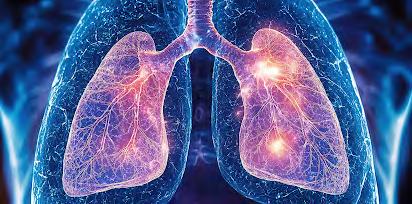
NIH Awards $3.1M Grant to Kayhan Batmanghelich for Pulmonary Biomarker Research
Kayhan Batmanghelich, Assistant Professor of Electrical & Computer Engineering and AIR Faculty Affiliate, received a $3.1 million competitive renewal R01 grant from the NIH’s National Heart, Lung, and Blood Institute. The AI-driven approach integrates multi-modal data and biomechanics to overcome limitations of current diagnostic tools, enabling better diagnosis and tracking of Chronic Obstructive Pulmonary Disease (COPD). Batmanghelich will lead this transformative research with collaborators from Boston University College of Engineering, University of Pittsburgh School of Medicine, and Brigham and Women’s Hospital. While focused on COPD, the tools and methods developed could extend to other pulmonary diseases, amplifying their potential impact.and Professor of Medicine and Director of the Emphysema/COPD Research Center at the University of Pittsburgh School of Medicine.
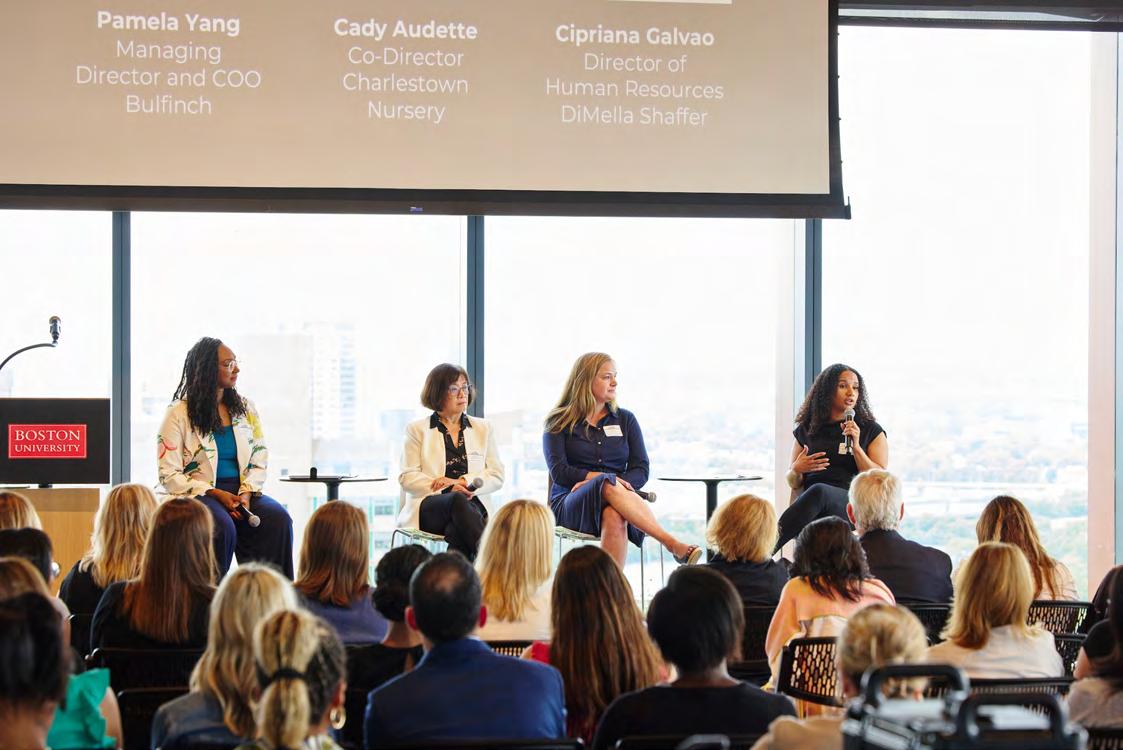
The BWWC is a public-private partnership between the Boston Mayor’s Office and Greater Boston employers dedicated to closing gender and racial wage gaps. Employers sign the 100% Talent Compact, pledging to investigate if their organization has wage gaps and, if so, work toward closing them with the support of the BWWC. Kim Borman, BWWC Executive Director, leads the organization.
Every two years, the BWWC, in partnership with the Hariri Institute, collects and analyzes payroll data anonymously from its members to show a snapshot of the progress being made to close wage gaps. BWWC now covers over 17% of the Greater Boston workforce in its wage gap research. 2025 was a data collection year for the BWWC, receiving data submissions from over 100 compact signer organizations. In 2023, the metrics showed a 30% decline in the gender wage gap, from 30¢ to 21¢. Findings will be pub-
lished in the 2025 Wage Gap report, scheduled for release in December 2025.
The movement towards greater workplace equity in Massachusetts took a significant step forward when Governor Maura Healey signed the Frances Perkins Workplace Equity Act into law in July 2024. The Act requires employers with over 100 employees to submit Equal Employment Opportunity Commission (EEOC) workforce demographic data to the state, enabling the Executive Office of Labor and Workforce Development (EOLWD) to aggregate and publish the data by sector. In 2025, the inaugural year of the legislation, the BWWC partnered with computer science and sociology faculty affiliated with the Center for Reliable Information Systems and Cyber Security (RISCS) and members of the Faculty of Computing & Data Sciences to analyze the data and produce the final report, published on June 1, 2025.
In FY25, the BWWC hosted three quarterly member briefings featuring academic experts and practitioners in gender and racial equity, highlighting their work as it relates to addressing pay gaps. The events drew over 300 attendees.
The September 2024 Q3 Signer Briefing, “Keeping Top Talent: Disrupting Persistent Race and Gender Inequity in the Workplace,” brought in Sanaz Mobasseri (Questrom). Mobasseri presented findings from her research on workplace practices and race and gender disparities in organizations.
At the Q2 Signer Briefing Creating a Fairer Workplace, held June 10, 2025, BWWC was joined by Siri Chilazi, Senior Researcher, Women and Public Policy Program at Harvard Kennedy School, and co-author of the new book, “Make Work Fair.” She discussed key insights from her recent book, which explores data-driven, actionable ways to make fairness at work a reality. The event drew 80 attendees. In December of 2024, BWWC hosted the Effective Practices
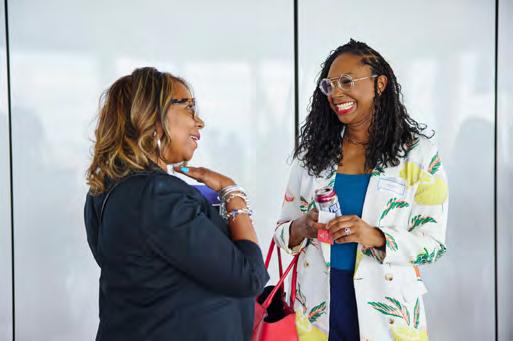
moving the needle on pay equity and upward mobility nationwide alongside our Annual Report. This extensive report offers findings and recommendations in four areas: Measuring and Assessing Wage Gaps, Addressing Bias in the Hiring Process, Improving Practices to Enhance Retention, and Implementing Equitable Promotion Measures.
Three new organizations signed the 100% Talent Compact in FY25, making the total number of employees covered in the greater Boston area over 200,000. New Compact Signers included: The Quin House, Beth Israel Lahey Health, and Chapman Design and Construction.
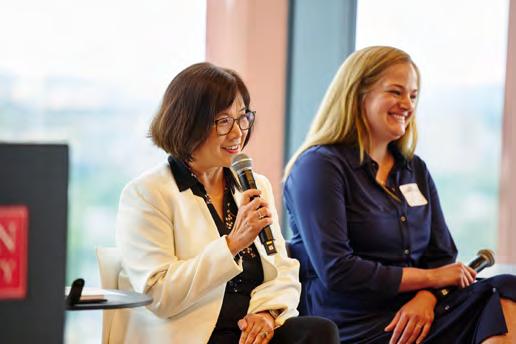
Conference. The event featured a fireside chat with Nobel Prize-winning Economist Claudia Goldin and Cathy Minehan, BWWC Co-Chair and Hariri Institute Steering Committee member.
In 2024, the BWWC produced its second Intervention Report, an analysis of the policies and practices
The Center for Computational Science (CCS) connects BU computational scientists to support collaborations across departments and colleges. Enabling the cross-fertilization of new computational ideas and methodologies, the CCS serves as a conduit for collaborations between experimental researchers who are synthesizing and collecting real-world data and computational researchers and expertise in model building, simulation, and analysis. The Center is led by Professor David Coker (Chemistry).
This year, CCS participated in diverse research activities. CCS, in partnership with BU’s Institute for Global Sustainability, secured a $3 million NSF Collaborative NRT Training Grant to launch ENERGIZE—an interdisciplinary PhD program focused on sustainable energy conversion and storage. The program welcomed its first cohort in February 2025, uniting resources in engineering, chemistry, computer science, and data sciences to train students in convergent research to tackle this urgent societal problem.
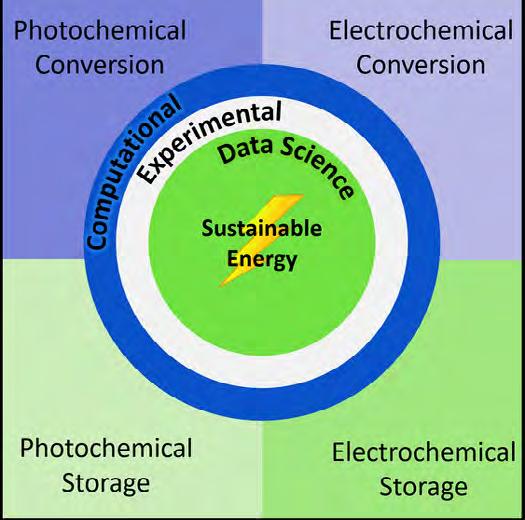
To foster knowledge exchange and strengthen research networks, CCS organized events with prominent international and national researchers. Coker was a co-organizer of “Quantum Dynamics and Spectroscopy of Functional Molecular Materials and Biological Photosystems” School (Feb 23-28, 2025) and Workshop (March 2-7, 2025) at the École de Physique des Houches, France.
CCS hosted Dr. Toshifumi Mori, Associate Professor at Kyushu University’s Institute for Materials Chemistry and Engineering, for a three-month visit during which Mori gave a talk a titled “Elucidating the Molecular Mechanisms of Protein Functions from Machine Learning Approaches” on October 16, 2024. CCS co-organized a February 19, 2025 seminar with BU’s Physical Chemistry Seminar featuring Dr. Xiang Sun, Assistant Professor of Chemistry at NYU Shanghai and Global Network Assistant Professor at NYU, who presented “Theoretical Approaches to Photoinduced Charge Transfer in the Condensed Phase.” Continuing its quantum computing outreach initiated through the FY23 Quantum Convergence FRP, CCS organized a November 15, 2024 talk by Pedro Lopes, Quantum Scientist and Education Technical Lead at QuEra Computing Inc., on “QuEra –Neutral-Atom Quantum Computing: From Dark-Horse to Workhorse.”
CCS awarded four travel fellowships to graduate students for conference participation and presentations, including events in France (the École de Physique des Houches), South Korea (TMCQ2024), and the Eastern Regional Photosynthesis Conference in Woods Hole, where PhD student Chirag Arora won the best poster award.
Publication Highlights
Somnath Biswas, Ruyan Zhao, Fatimah Alowa, Marios Zacharias, Sahar Sharifzadeh, David F. Coker, Dwight S. Seferos & Gregory D. Scholes. “Exciton polaron formation and hot-carrier relaxation in rigid Dion–Jacobson-type two-dimensional perovskites”. Nat. Mater. 23, 937–943 (2024).
Anubhab Haldar, Quentin Clark, Marios Zacharias, Feliciano Giustino, Sahar Sharifzadeh. “Machine learning electron-phonon interactions in two-dimensional semiconducting materials: The case of zero-point renormalization.” Physical Review Materials. 8, L101001.
Ziqing Zhao, Amanda Baumann, and Emily M. Ryan. “Using Machine-Learning-Aided Computational Fluid Dynamics to Facilitate Design of Experiments.” Industrial & Engineering Chemistry Research 2024 63 (49), 21444-21454.

Climate change is among the greatest challenges facing humanity, demanding bold, interdisciplinary solutions. Backed by a $3 million, five-year National Science Foundation Research Traineeship (NRT) grant, BU has launched ENERGIZE—a new program designed to prepare PhD and master’s students to develop sustainable energy conversion and storage technologies.
Led by Malika Jeffries-EL (Chemistry), with co-PIs Emily Ryan (ENG), David Coker (Chemistry), Brian Kulis (ENG), and James Chapman (ENG), ENERGIZE
draws students from engineering, chemistry, computer science, and data sciences. The program grew out of a 2021 Hariri Institute Focused Research Program, Machine Learning for Chemistry & Materials Science, which first explored the promise of datadriven approaches to energy research.
“Climate change, with its complex challenges, demands an interdisciplinary approach that incorporates data science in order to expedite testing theories,” says Jeffries-EL. “We must combine expertise across multiple fields and develop the ability to analyze vast amounts of data and make predictions to develop effective, scalable solutions.”
The program supports seven PhD students per year for two years each, alongside 15 additional unfunded participants annually, aiming to train 100–125 students over five years. ENERGIZE will serve as a catalyst for a self-sustaining, interdisciplinary graduate program, integrating students into faculty-led projects and cross-field collaborations.
“Integrating machine learning and AI with traditional experimental research can really accelerate development—rather than doing 50 or 100 experiments, you can use data science to direct efforts and only do 10 experiments,” says Ryan.
Adds Coker, “ENERGIZE NRT aims to help students in their academic journeys. This effort is about more than just energy research—it’s about training students to think differently.”
Jointly led by BU’s Center for Computational Science (CCS) at the Hariri Institute and the Institute for Global Sustainability (IGS), with support from CDS and the Graduate School, ENERGIZE is bridging disciplines and breaking silos to prepare the next generation of energy innovators.
(Excerpt from a story authored by Maeve Smillie and first published by the Hariri Institute.)
The Center for Information & Systems Engineering (CISE) is a university-wide research center whose mission is to deepen and broaden interdisciplinary research in the study and design of intelligent systems with broad societal applications. From concepts and algorithms to implementation in software systems and hardware, CISE researchers engage in interdisciplinary and convergent research to advance the science and societal impact of intelligent systems. CISE research has made seminal contributions and impacted a plethora of application areas, from robotics and autonomy, energy systems, computer systems, and communication networks, to medical imaging, computational medicine, video surveillance, and bioinformatics. The Center is led by Ayse Coskun, Professor (ENG). In FY25, CISE continued to strengthen its leadership at the forefront of interdisciplinary systems engineering research.
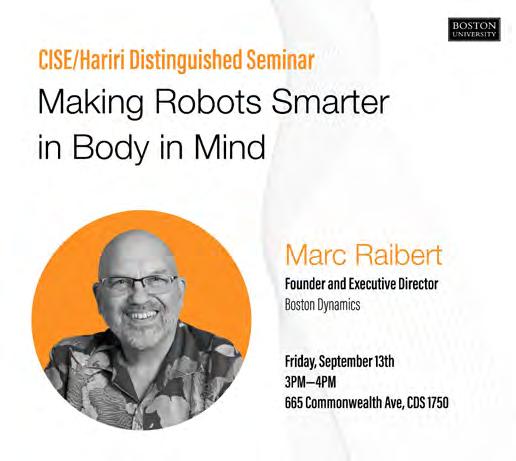
On September 13, the Hariri Institute and CISE welcomed Marc Raibert, founder of Boston Dynamics and Executive Director of the Robotics and AI Institute (RAI), for a standing-room-only Distinguished Speaker event at Boston University. Raibert shared his vision for advancing robotics by giving future machines greater athletic (body) and cognitive (mind) intelligence.
This past year, Emiliano Dall’Anese, Associate Professor (ENG) was invited to join the community; the total of CISE affiliated faculty is now 54. CISE faculty published over 248 scholarly papers in FY25. To raise awareness of affiliated faculty and student work, CISE wrote and promoted 18 news stories, highlighting faculty and student news.
Throughout the year, CISE hosted 23 seminars, workshops, and conferences that have brought together experts from academia, industry, and government to discuss the latest trends and challenges in systems engineering and computer science. These events garnered over 1,600 attendees and facilitated dialogue to encourage convergent research in critical research areas.
CISE organized an annual fall workshop series targeting societal challenges in intelligent systems. This year’s workshop, “Learning to Trust Autonomy,” hosted over 100 attendees from academia and industry, creating a collaborative environment for participants to discuss autonomous systems. These conversations addressed developments in robotics, as well as the technological and social challenges of utilizing them outside of the testing environment.
In April 2025, CISE and Harvard University co-hosted the 2025 Green AI Summit. This event brought together a collection of visionaries, scholars, and innovators, focusing on the evolving relationship between artificial intelligence and environmental responsibility. With over 300 attendees throughout the two-day summit, a diverse slate of speakers—from tech executives to university researchers and public policy leaders—led a packed schedule of keynote talks, panels, and workshops. Sessions and speakers covered a range of topics, from energy-efficient computing to policy frameworks that support sustainable AI development.
CISE faculty affiliate collaborations continue to yield high-impact, funded research projects. Recent awards include: “Sketching for Efficient and Robust Top-Down Autonomous Navigation” (NSF, $648,864; PI Roberto Tron (ENG), co-PI Sean Andersson (ENG)); “Koopman in the Field: Feedback, Teaching, and Adaptation for Real World Mechanical Systems” (NSF, $522,592; PI Roberto Tron, co-PI Andrew Sabelhaus (ENG)); and “DESC: Type I: FlexDC: Flexible Artificial Intelligence Data Centers for Optimized Computing” (NSF, $600,000; PI Coskun, co-PI Emiliano Dall’Anese (ENG)).
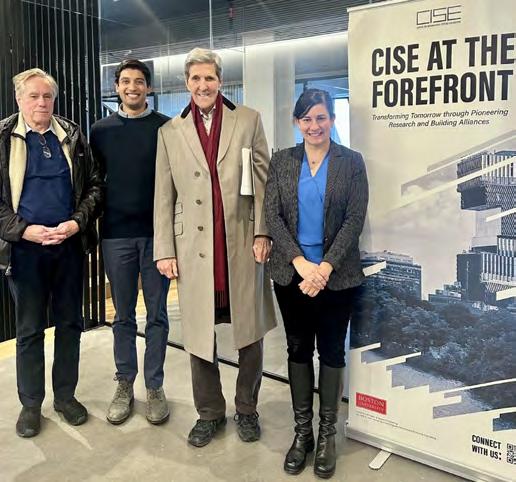
(From left) Ambassador David H. Thorne; Council on Foreign Relations Senior Fellow for Climate and Energy Varun Sivaram; former Secretary of State John Kerry; and CISE Director Ayse Coskun met at CISE to discuss AI’s impact on energy demand, data center growth, and the power grid.
Affiliated faculty also secured significant new grants advancing diverse research frontiers. CISE affiliate Lucy Hutyra (Earth & Environment) with Jennifer Bhatnagar (Biology) received 1 million from the Keck Foundation for “Rules of Life in the Urban Biome,” a project that aims to understand how living organisms adapt and interact within urban environments. Gianluca Stringhini (ENG) received $599,996 for “SATC: CORE: SMALL: Enabling the Automated Delivery of Context-Aware Notifications.” Tomasso Ranzani (ENG) was awarded $495,618 from the NIH NIBIB for “Intracardiac Beating Heart Tricuspid Valve Repair via Robotics.” Rabia Yazicigil (ENG) received $325,190 for “Wideband, Scalable MIMO Arrays for
NextG Systems: From Antennas to Decoders,” a subaward under the Northeast Microelectronics Coalition (NEMC) Hub as part of the larger $4.55 million Massachusetts Technology Collaborative grant supporting $43 million in microelectronics investments across Massachusetts.
Three CISE faculty affiliates received prestigious Faculty Early Career Development (CAREER) Program awards from the National Science Foundation (NSF), recognizing their innovative research and strong commitment to education. Dall’Anese was awarded $258,677 for “CAREER: Synthesis of Feedback-Based Online Algorithms for Power Grids.” Wenchao Li (ENG) received $116,451 for “CAREER: Specification-Guided Imitation Learning,” Sabrina Neuman (CS) was awarded $127,658 for “CAREER: Physically-Aware Accelerator Design Flows for Motion Planning,” enabling efficient hardware solutions for complex robotic planning tasks.
CISE remains a leading catalyst for advancing Boston University’s commitment to convergent research, high-impact initiatives, and active community engagement.
A. Agarwal, L. Kasaei, X. He, R. Kitichotkul, O.K. Hitit, M. Peng, J.A. Schultz, L.C. Feldman, & V.K. Goyal. “Shot noise-mitigated secondary electron imaging with ion count-aided microscopy.” Proc. Natl. Acad. Sci. U.S.A. 121 (31) e2401246121.
Del Bono, V., McCandless, M., Gerald, A. et al. “A soft robotic “Add-on” for colonoscopy: increasing safety and comfort through force monitoring.” Robot 3, 15 (2025).
Janusz Konrad, Mertcan Cokbas, Prakash Ishwar, Thomas D.C. Little, Michael Gevelber. “High-accuracy people counting in large spaces using overhead fisheye cameras.” Energy and Buildings, Volume 307, 2024, 113936, ISSN 0378-7788.
Quentin Clark, Fatih Acun, Ioannis C. Paschalidis, and Ayse Coskun. 2025. “Learning a Data Center Model for Efficient Demand Response.” SIGENERGY Energy Inform. Rev. 4, 5 (December 2024), 98–105.
The Center for Reliable Information Systems and Cyber Security (RISCS) promotes and coordinates high-impact multidisciplinary research and education focused on security, safety, reliability, privacy, and overall trustworthiness of information systems, including communication, computing, storage, learning, and artificial intelligence. The Center draws on the expertise of 28 faculty and multiple graduate students from the College of Arts and Sciences, College of Engineering, Faculty of Computing & Data Sciences, Metropolitan College, and Questrom School of Business as well as industry, government, community and other partners. RISCS is led by co-directors Ran Canetti, Professor of Computer Science (CS), and Mayank Varia, Associate Professor of Computing and Data Sciences (CDS).
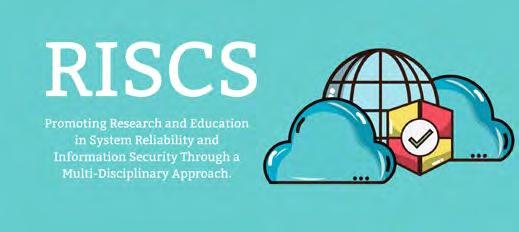
The main focal points of RISCS in FY25 were:
- Continued leadership in the fast-growing research area at the convergence of Computer Science and Law.
- Continued leadership in the area of multi-party computation for social good.
- Continued leadership in the development and deployment of privacy preserving information processing.
- New collaboration with physicists at BU and elsewhere towards leadership in quantum and post-quantum cryptography.
RISCS was instrumental in the creation of BU’s Quantum Convergence Initiative led by Professor Andrei Ruckenstein (Physics) and aimed at promoting and coordinating education and research on quantum information, computing, materials and engineering. The initiative includes researchers from physics, computer science, chemistry, material sciences and engineering, and has already resulted in the hiring of new faculty in quantum computing in CS.
RISCS provided technical advice and support to the Boston Women’s Workforce Council (BWWC) and Hariri Institute SAIL software engineers prior to and during the May-June 2025 wage data collection from compact signers. Additionally, RISCS faculty researchers John Liagouris (CS) and Varia with Professor Neha Gondal (Sociology) co-authored a report, together with the BWWC and state government officials, as part of a contract with the Massachusetts Executive Office of Labor and Workforce Development to securely process demographic data from private and public employers. The report was released in June 2025.
RISCS co-sponsored an Institute FRP on a privacy-preserving coordination system among a set of data centers who work together to make best use of a shared electrical grid provider. The effort, led by ENG Professors Ayse Coskun and Ajay Joshi, and CS Professor Adam Smith, has investigated the benefits of a coordination system and are continuing to investigate privacy-enhancing approaches to minimize information leakage.
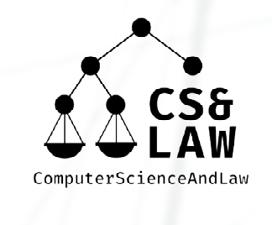
RISCS faculty researchers Liagouris, Vasiliki (Vasia) Kalavri (CS), and Varia continued their NSF-funded work to build a data analytics system that uses Multi-Party Computation (MPC) to enable secure relational analytics on collective private data. The team is also organizing a workshop, co-sponsored by RISCS, to bring together researchers in the systems and MPC communities at BU in July 2025.
RISCS also provided funding for two post-doctoral fellows (Ji Luo and Cody Freitag) who joined the convergence effort for advancing post quantum cryptography.
The Center supported a diverse range of events and initiatives advancing research, education, and collaboration in security and privacy. RISCS supported the 4th ACM Symposium on Computer Science and Law, held in March 2025 in Munich, Germany and Canetti served as Program Committee Co-chair. It hosted the Charles River Crypto day, a quarterly full day workshop for cryptography researchers in the greater Boston area. This cross-university event was initiated by RISCS and has run continuously since 2011. RISCS also assisted Metropolitan College in organizing the 6th White Hat Conference held in June 2025 in Spain, which explored the theme of AI, Cybercrime, and Cyber Defense. RISCS continued to support the BU Cyber Security, Law, and Society Alliance, a collaboration among computer science, law, business, and social science researchers. Over the past year, the Alliance organized six workshops, drawing more than 200 participants overall. RISCS also supported the weekly BUSec seminar, featuring new research in cryptography and security with 29 meetings and over 800 participants, as well as the weekly practical security seminar organized over the summer by Ari Trachtenberg (ENG).
RISCS was instrumental in securing a new $3.6 million (BU $2.78 million) NSF Collaborative Growing Convergence Research (GCR) grant for investigating a novel, thermodynamics-based approach to the design of cryptographic primitives.
RISCS assisted the BU Metropolitan College in securing a new $440,000 grant from the US Department of Justice’s Bureau of Justice Assistance (BJA) for its Cybercrime Investigation & Cybersecurity (CIC) program for educational training involving Internet of Things (IoT) devices and systems.
Peter K. Chan, Alyson Carrel, Mayank Varia, Xiao Wang. “Murmurs of the Silenced: Secure Reporting of Misconduct Settlements.” CSLAW 2025: 121-135
E. Linder, S. Raskhodnikova, A. Smith, and T. Steinke. “Privately evaluating untrusted black-box functions.” Proceedings of the 57th Annual ACM Symposium on Theory of Computing (STOC), 2025, pp. 2350–2361.
M. Aliakbarpour, M. Bun, and A. Smith. “Optimal hypothesis selection in (almost) linear time.” Advances in Neural Information Processing Systems, Vol. 37, 2024, pp. 141490–141527.
R. Busa-Fekete, T. Dick, C. Gentile, A. Muñoz Medina, A. Smith, and M. Swanberg. “Auditing privacy mechanisms via label inference attacks.” Advances in Neural Information Processing Systems, Vol. 37, 2024, pp. 82823–82862.
L. Reyzin. “Proofs of space with maximal hardness.” Proceedings of the 2024 IEEE 65th Annual Symposium on Foundations of Computer Science (FOCS), 2024.
R. Canetti, C. Chamon, E. R. Mucciolo, and A. E. Ruckenstein. “Towards general-purpose program obfuscation via local mixing.” Theory of Cryptography Conference (TCC), Part IV, 2024, pp. 37–70.
C. Chamon, A. E. Ruckenstein, E. R. Mucciolo, and R. Canetti. “Circuit complexity and functionality: A statistical thermodynamics perspective.” Proceedings of the National Academy of Sciences, Vol. 122, No. 23, 2025, Article e2415913122.
Shlomi Hod, Ran Canetti. “Differentially private release of Israel’s national registry of live births.” IEEE Security & Privacy, May 2025.
The Digital Health Initiative (DHI) continues to accelerate the integration of digital technologies into healthcare systems and everyday life to improve population health and well-being. Supported research spans artificial intelligence (AI), machine learning (ML), computing, informatics, computational biology, healthcare automation, behavior change, and predictive and prescriptive analytics. Several major efforts this year advanced these goals.
For the third consecutive year, the Institute launched a dedicated track of its Focused Research Program (FRP) to support DHI projects. Co-sponsored by the BU School of Public Health Center for Health Data Science, the Clinical and Translational Science Institute (CTSI), the Evans Center for Interdisciplinary Biomedical Research, and the DHI at the Hariri Institute, the 2025 call drew strong interest. An information session on January 30 introduced the track, featuring presentations from clinicians and researchers working on brain diseases, health equity, infectious diseases, imaging, and psychiatric disorders.
On June 3, the DHI FRP was awarded to the project titled AI-PRISM (Artificial Intelligence for Precision Recommendations and Integrated Scoring in Medicine). The project is led by Charlene Ong (Chobanian & Avedisian SOM), Nicholas Cordella (Chobanian & Avedisian SOM and Boston Medical Center), and Yannis Paschalidis (ENG). AI-PRISM explores how AI can improve personalized treatment recommendations and scoring systems in medicine.
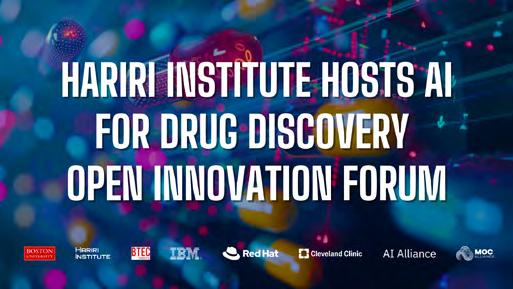
On October 30, the Institute co-organized the AI for Drug Discovery Open Innovation Forum in partnership with BU’s Bioengineering Technology & Entrepreneurship Center, MOC Alliance, Red Hat, IBM, the Cleveland Clinic, and the AI Alliance. The forum convened 160+ attendees from academia, industry, and government for a day of keynotes, panels, and breakout sessions on using open-source AI tools to accelerate drug development. The event also launched a new working group on AI for Drug Discovery within the AI Alliance. Featured speakers included Massachusetts Secretary of Economic Development Yvonne Hao and Massachusetts Life Sciences Center CEO Kirk Taylor. Keynote speakers were Joseph Loscalzo (Harvard Medical School), Jeremy Jenkins (Novartis), Sean Mooney (NIH), and Mona Singh (Princeton University).

On April 23, in partnership with the Center on Emerging Infectious Diseases (CEID), the Institute helped launch BEACON (Biothreats Emergence, Analysis, and Communications Network). A collaboration among CEID, the Hariri Institute, and HealthMap at Boston Children’s Hospital, BEACON is the first generative AI-powered platform for analyzing and reporting global outbreak data. The open-source system facilitates rapid and transparent threat sharing with health officials, researchers, and the public. The launch event featured a live AI demo and remarks from Dr. Robbie Goldstein (Massachusetts Health Commissioner), Dr. Jeremy Farrar (Chief Scientist, WHO), and Dr. Robert Brown (BU President Emeritus and BEACON Interim Advisory Chair). Within two months, BEACON had over 3,000 users and cataloged more than 200 global disease events, with reports now informing regional CDC surveillance worldwide.
On March 11, the Institute co-sponsored the Health Data Science Distinguished Speaker Seminar alongside BU’s Department of Biostatistics, the Center for Health Data Science, and the Providence/Boston CFAR. Bhramar Mukherjee (Yale School of Public Health) delivered a keynote titled “Unveiling Bias: A Statistician’s Quest for Data Representation in Health Research.”
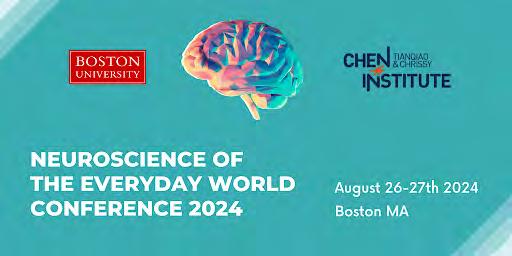
The Institute also co-sponsored the Neuroscience of the Everyday World Conference on August 26–27, 2024 with BU’s Neurophotonics Center, Center for Brain Recovery, and the Tianqiao & Chrissy Chen Institute. Drawing approximately 300 attendees, the event brought together experts in computer science, biomedicine, cognition, and clinical neuroscience to explore continuous brain monitoring in real-world settings.
Another major achievement was a collaborative study with the Framingham Heart Study, which developed an AI method to predict whether individuals with mild cognitive impairment from Alzheimer’s would remain stable or progress to dementia within six years. The research, published in Alzheimer’s & Dementia: The Journal of the Alzheimer’s Association, received global media coverage, including 90 articles across 77 outlets such as The Wall Street Journal, NPR, Metro UK, The Boston Herald, and Baltimore Sun, among others.
S. Amini, B. Hao, J. Yang, C. Karjadi, V.B. Kolachalama, R. Au, and I.C. Paschalidis. “Prediction of Alzheimer’s disease progression within 6 years using speech: a novel approach leveraging language models.” Alzheimer’s & Dementia: The Journal of the Alzheimer’s Association, Vol. 20, Issue 8, August 2024.
Boran Hao, Yang Hu, William G. Adams, et al. “A GPTbased EHR modeling system for unsupervised novel disease detection.” Journal of Biomedical Informatics, Volume 157, 2024.
Hu, Y., Cordella, N., Mishuris, R.G. et al. “Accounting for racial bias and social determinants of health in a model of hypertension control.” BMC Med Inform Decis Mak 25, 53 (2025).
Idnay, B., Xu, Z., Adams, W.G. et al. “Environment scan of generative AI infrastructure for clinical and translational science.” npj Health Syst. 2, 4 (2025).
Xue, C., Kowshik, S.S., Lteif, D. et al. “AI-based differential diagnosis of dementia etiologies on multimodal data.” Nat Med 30, 2977–2989 (2024).
J. Yang, K.C. Walker, A.A. Bekar-Cesaretli, B. Hao, N. Bhadelia, D. Joseph-McCarthy, and I.C. Paschalidis. “Automating Biomedical Literature Review for Rapid Drug Discovery: Leveraging GPT-4 to Expedite Pandemic Response.” International Journal of Medical Informatics, September 2024.
J.J. Yland, Z. Zad, T.R. Wang, A.K. Wesselink, T. Jiang, E.E. Hatch, I.C. Paschalidis, and L.A. Wise. “Predictive models of miscarriage based on data from a preconception cohort study.” Fertility & Sterility, Vol. 122, Issue 1, July 2024, pages 140-149.
Z. Zad, S. Bonecker, T. Wang, I. Zalcberg, G.T. Stelzer, B. Sabioni, L.M. Gutiyama, J.L. Fleck, and I.C. Paschalidis. “Prediction of deep molecular response in chronic myeloid leukemia using supervised machine learning models.” Leukemia Research, Vol. 141, 2024.
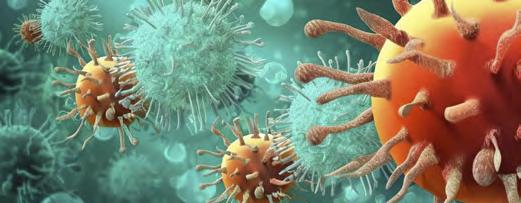
Infectious diseases are emerging at unprecedented rates, posing serious global health risks. In early 2025, U.S. measles deaths matched the previous 24 years combined. As new zoonotic threats continue to arise, fast detection and response are critical.
To meet this need, researchers at Boston University and Boston Children’s Hospital launched the Biothreats Emergence, Analysis, and Communications Network (BEACON) in April 2025. BEACON is an open-source platform for near real-time global disease surveillance that is housed at BU’s Center on Emerging Infectious Diseases, and operated in partnership with BU’s Hariri Institute and the HealthMap at Boston Children’s Hospital.
“Infectious diseases don’t respect borders,” says Nahid Bhadelia, MD, Director of BEACON and Founding Director of BU’s Center on Emerging Infectious Diseases. “If a new threat arises, one of the most important steps to ensuring we have rapid response is to raise global awareness.”
BEACON merges AI and expert human analysis to identify and verify emerging infectious disease threats. To flag potential signals of outbreaks, the platform continuously scans vast streams of global
data, including news reports, public health advisories, and even social media. These signals are then verified by human moderators with local and domain-specific knowledge. This human-in-the-loop system ensures both speed and accuracy.
The technical backbone of BEACON is a generative AI system developed by BEACON Co-Director Yannis Paschalidis (ENG), and his team. Using a sophisticated AI pipeline, the system processes all the signals captured by BEACON, filtering and organizing them using machine learning and purposely-trained Large Language Models (LLMs). The Software & Application Innovation Lab (SAIL) supported the platform’s integration of machine learning and LLMs.
“BEACON isn’t about just automating the tasks of subject matter experts but also augmenting our ability to quickly rank new threats and assess credibility of sources,” says Paschalidis.
BEACON’s global network of expert verifiers continues to grow, as does its reach through HealthMap’s real-time tracking system. The platform has received $6 million in support from the National Science Foundation, the Gates Foundation, the Chen Institute, Pax Sapiens, the Department of Energy (DOE), Boston University, and private donors.
(Excerpt from an article authored by Maureen Stanton and first published by the Hariri Institute)

The Mass Open Cloud (MOC), launched in 2013, has evolved into the MOC Alliance—a partnership among higher education, government, and industry to create an open production cloud that provides domain researchers with predictable, low-cost services, while enabling innovation by a broad community of academic researchers and industry collaborators. The MOC Alliance supports and coordinates a set of interrelated projects, including production cloud services supported institutionally by Boston University and Harvard University, a national testbed for cloud researchers, the $20 million Red Hat Collaboratory at BU, and a planned national center on cloud and datacenter-scale computing. The MOC Alliance is led by Professor Orran Krieger (ENG), supported by dedicated administrative and engineering teams.
The MOC Alliance significantly increased its industry engagement in FY25, strengthening existing collaborations with Red Hat and Lenovo. Krieger was appointed Director of Red Hat Research. Jon Stumpf, Director of Alliance Management, presented at numerous industry and academic conferences, including Lenovo Tech World ‘24, the Gartner IT/Xpo, and the Connecticut AI Hub. Agreements were also finalized with Photrek, Positron, Grader Than, and CipherSonic Labs.
The MOC Alliance also provides administrative management of the New England Research Cloud (NERC), an affordable production cloud powered by high-performance GPUs that is operated by BU and Harvard Research IT. NERC was founded with an $875,000 award from the Massachusetts Technology Collaborative (MTC), with a second $1.3 million grant to accelerate NERC expansion awarded in 2024.
Additionally, continuing with the unique consumption model for A100s with Lenovo, the NERC deployed 192 H100 GPUs into the datacenter in Holyoke in March. This equipment expansion has attracted many AI researchers to the NERC, including the 35 BU faculty members across six colleges and 13 departments who received research grants through the BU AI Research Resource Program (BU-AIRR).
NERC production services are also available to general research, education, and nonprofit users. NERC services are currently used by the core MOC institutions—BU, Harvard, Northeastern, MIT, UMass, and Yale—as well as Boston Children’s Hospital, Code for Boston, Bentley, WPI, URI, Photrek, CipherSonic Labs, Dartmouth, NYU, Positron, Red Hat, the AI Alliance, the University of Toronto, and many others.
The MOC Alliance remains a proud founding member of the AI Alliance, an international community of leading technology developers, researchers, and adopters launched by IBM and Meta in 2023. The AI Alliance aims to foster an engaged community to advance open, safe, responsible AI, conducting experiments on the NERC and utilizing the MOC Alliance leadership’s expert judgment. The MOC Alliance also co-sponsored the AI Alliance’s October 2024 event, AI for Drug Discovery Open Innovation Forum.
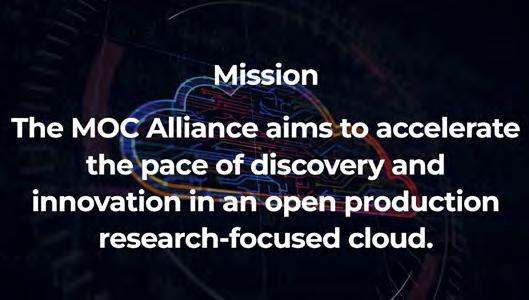
A partnership between Red Hat and Boston University, the Red Hat Collaboratory connects BU faculty and students with industry practitioners working in opensource software communities. Through BU and Red Hat’s $20 million expanded partnership, announced in 2021, the Red Hat Collaboratory seeks to create more trustworthy, reliable, scalable, self-operating, distributed, heterogeneous compute platforms that stretch from edge devices to cloud datacenters. The Red Hat Collaboratory is co-directed by BU Professor Ari Trachtenberg (ENG) and Red Hat’s US Research Director, Heidi Dempsey.
The Red Hat Collaboratory also facilitates innovative partnerships between academic researchers and open-source communities. Collaboration in systems research at this scale can have a profound impact on society. Projects funded through the Red Hat Collaboratory Research Incubation Award are open source and focus on problems of distributed, operating, security, or network systems whose solutions show promise for advancing their fields and impacting the tech industry.
This year, the Red Hat Collaboratory awarded five Research Incubation Awards to BU faculty members and industry collaborators, totaling more than $600,000 in funding. Two of these projects grew from 2024 awards and were renewed with more funding due to the impressive results of the first year of research.
• Ajay Joshi (ENG), What is all the Fuzz? Investigating and Improving “Functionality vs Security” Trade-offs for Virtualized AI Infrastructure
• Renato Mancuso (CS), Foundations of Hypervisorless Virtualization Technology in High-performance Systems
• David Starobinski (ENG), Improving Cyber Security Operations using Knowledge Graphs
• Manuel Egele (ENG), HySe: Hypervisor Security through Component-Wise Fuzzing
• Eshed Ohn-Bar (ENG), Optimizing Multi-Modal Large Language Models Systems
Project recipients of the Red Hat Collaboratory 2024 and 2025 Research Incubation Awards were recognized for excellence at preeminent research conferences this year.
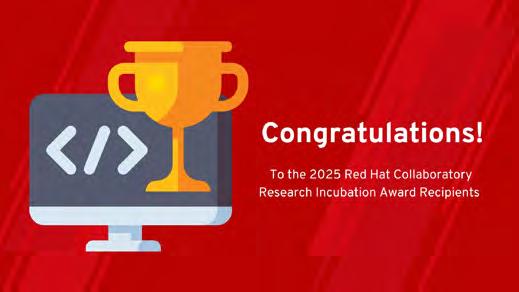
Alexander Bulekov (CE PhD ’24 and former Red Hat Research Intern) with Professor Manuel Egele (ENG) and researchers from École Polytechnique Fédérale de Lausanne won the Distinguished Paper Award at the 33rd USENIX Security Symposium for “HYPERPILL: Fuzzing for Hypervisor-bugs by Leveraging the Hardware Virtualization Interface.” Additionally, this highly selective security venue (acceptance rate of 18%) published a paper authored by Ioannis Angelakopoulos (ECE PhD Student and former Red Hat Research Intern) with Professors Gianluca Stringhini (ENG) and Egele titled “Pandawan: Quantifying Progress in Linux-based Firmware Rehosting.”
Work supported by a Red Hat Collaboratory award also won 2nd place at the inaugural hardware hacking competition at IEEE HOST 2025. The demo was led by
ENG PhD Candidate Chathura Rajapaksha; team collaborators included ENG faculty Egele and Joshi, Red Hat researcher Bandan Das, and IBM researchers Sandhya Koteshwara, Apoorve Mohan, and Hubertus Franke.
The Red Hat Collaboratory also funds Student Research Projects, which are geared towards providing BU students with research and experiential learning opportunities that advance open source projects in cloud computing, systems engineering infrastructure, and security. Nine undergraduates received funding for open-source projects last year, totaling over $70,500, that aim to improve the security, efficiency, and intelligence of computing systems.
The Red Hat Collaboratory also supports the BU Computer Systems Seminar and Red Hat Colloquium Series, which hosted 17 events throughout the year featuring seminars led by BU faculty members, Red Hat engineers, student researchers, and international researchers with expertise in systems engineering. The series attracted 650 attendees.
Alexander Bulekov, Qiang Liu, Manuel Egele, and Mathias Payer. 2024. “HYPERPILL: fuzzing for hypervisor-bugs by leveraging the hardware virtualization interface.”
In Proceedings of the 33rd USENIX Conference on Security Symposium (SEC ‘24). USENIX Association, USA, Article 52, 919–935.
Ioannis Angelakopoulos, Gianluca Stringhini, and Manuel Egele. 2024. “Pandawan: quantifying progress in linux-based firmware rehosting.” In Proceedings of the 33rd USENIX Conference on Security Symposium (SEC ‘24). USENIX Association, USA, Article 328, 5859–5876.
Kathakoli Sengupta, Zhongkai Shangguan, Sandesh Bharadwaj, Sanjay Arora, Eshed Ohn-Bar, and Renato Mancuso. 2024. “Unified Local-Cloud Decision-Making via Reinforcement Learning.” In Computer Vision – ECCV 2024: 18th European Conference, Milan, Italy, September 29–October 4, 2024, Proceedings, Part XLI. Springer-Verlag, Berlin, Heidelberg, 185–203.
Zanming Huang, Jimuyang Zhang, and Eshed Ohn-Bar. 2024. “Neural Volumetric World Models for Autonomous Driving.” In Computer Vision – ECCV 2024: 18th European Conference, Milan, Italy, September 29–October 4, 2024, Proceedings, Part XVII. Springer-Verlag, Berlin, Heidelberg, 195–213.
P. Sharma, Z. Shi, S. Simsek, D. Starobinski and D. S. Medina. “Understanding Similarities and Differences Between Software Composition Analysis Tools.” in IEEE Security & Privacy, vol. 23, no. 1, pp. 53-63, Jan.Feb. 2025.
Simsek, Sevval & Shi, Zhenpeng & Xia, Howell & Medina, David & Starobinski, David. (2024). Poster: “Analyzing and Correcting Inaccurate CVE-CWE Mappings in the National Vulnerability Database.” 5042-5044. CCS ‘24: ACM SIGSAC Conference on Computer and Communications Security. December 2024. 10.1145/3658644.3691375.
Han Dong, Yuanli Wang, Jonathan Appavoo, Vasiliki Kalavri. Poster: “Co-optimizing Performance and Power in Stream Processing Systems.” North East Database Day 2025, January 9th, 2025, Brandeis University.
Albert Slepak, Thomas Unger, Jonathan Appavoo. “Stellux: Exploring Fine-Grain HW Privilege in a Clean-State Kerne.” The 30th Symposium on Operating Systems Principles(SOSP) 2024, November 4–6, 2024, Austin, Texas.

SAIL is the premier professional research, software engineering, and consulting lab within the Hariri Institute. SAIL acts as both a driver and a collaborative partner in the creation of cutting-edge solutions for the data-driven, computational, and software engineering aspects of research across the university and beyond. SAIL’s range of services includes full-stack web and mobile application development, codebase refactoring and maintenance, software best-practice consulting, project and product management guidance, and assistance with proposal and grant writing to secure extramural funding for research projects.
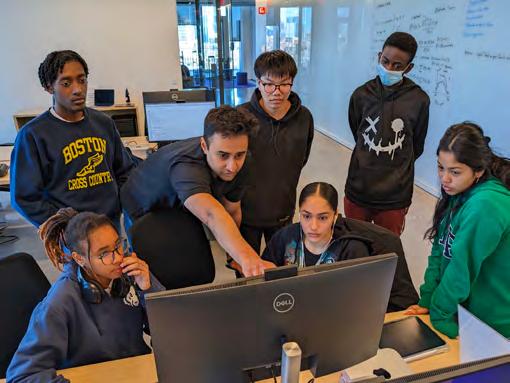
This fiscal year marked a significant expansion of SAIL’s role in institutional AI innovation, taking a large leap towards showcasing its ability to develop and deploy AI-powered applications and tools that support research and administrative stakeholders at the university.
A major example of this effort is SAIL’s technical contributions to the Biothreats Emergence, Analysis, and Communications Network (BEACON) project. BEACON is an open-source informal surveillance program designed to revolutionize global biothreats surveillance and response. Leveraging advanced
artificial intelligence (AI), large language models (LLMs), and a network of globally based experts, BEACON rapidly collects, analyzes, and disseminates information on emerging infectious diseases. SAIL contributed to BEACON’s technical infrastructure by deploying APIs and generative AI models that integrate diverse data sources and enable real-time alerts. A collaboration between Boston University’s Center on Emerging Infectious Diseases, and operated in partnership with the Hariri Institute and HealthMap at Boston Children’s Hospital, this work is central to helping global health researchers respond more rapidly and effectively.
SAIL developed a strong relationship with the Alfred P. Sloan Foundation and participated in a proposal and capture of a $250,000 grant to develop a production-ready Retrieval Augmented Generation (RAG) framework using open-source tools. The plan is to integrate this framework with the existing research computing infrastructure to streamline the process of deploying RAG-based solutions in academic settings. In parallel, the grant supports two secondary goals: (i) establishing a curated repository of open-source tools that can aid in the development of RAG-based frameworks; (ii) implementing a training program to equip university stakeholders with the knowledge necessary to deploy and maintain these tools effectively.
While distinct from the Sloan-funded work, SAIL also played a pivotal role in Boston University’s new Artificial Intelligence Development Accelerator for Academic and Administrative Excellence (AIDA). AIDA is a cross-university initiative led by the Office of the Provost to explore responsible uses of AI in teaching, research, and university operations. In collaboration with BU Information Services & Technology (IS&T) and the Faculty of Computing & Data Sciences, SAIL deployed the technical infrastructure behind AIDA’s public website. This included the digital repository of institutional policies from across higher educa-
tion, government, and industry, as well as building topic modeling features to explore recurring themes and concerns around AI governance.
In parallel, SAIL assisted IS&T in defining the deployment architecture for TerrierGPT, a secure, university-hosted generative AI interface designed to support AI literacy, exploration, and responsible use among BU faculty and staff. TerrierGPT provides a risk-mitigated, private environment for experimenting with large language models (LLMs) in the context of academic workflows.
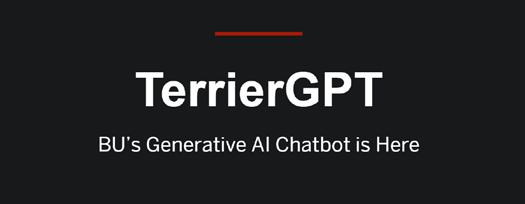
This year also marked a first for SAIL, completing their largest website development engagement to date by designing and implementing the new digital home for BU Procure to Pay (P2P), a new administrative unit consolidating Sourcing & Procurement, Payment Services, and Travel Services. P2P serves as a one-stop solution for all procurement, vendor, travel, and payment-related services at BU. SAIL led the technical development and collaborated closely with department leader Randall Moore and his team.
This fiscal year, SAIL also received a grant from the Massachusetts Life Sciences Center (MLSC) to continue advancing its mission of providing high-impact experiential learning opportunities to Boston University students. The grant supports computer science and data science internships and builds directly on the success of the SAIL Microservices and Software Tools (MAST) program, which formally concludes this year. Originally launched through a grant from the Shipley Center for Digital Learning and Innovation, the MAST program provided structured, mentored internships for students working on real-world university research projects under the guidance of SAIL engineers. Over its two-year span, the program supported five research initiatives and provided hands-on
experience to over 20 students. The MLSC funding enables SAIL to extend this impact, support continued student engagement in research, and create leadership opportunities for its technical staff as it transitions into the next phase of its student development efforts.
SAIL, continuing its main contribution to research software engineering projects, collaborated on diverse initiatives, including with the Global Development and Policy (GDP) Center via Executive Director William Kring; the Design, Automation, Manufacturing, and Processes (DAMP) Laboratory via Professor Catherine Klapperich (ENG), and projects with Jon Brousseau, BU Creative Director, and his team in Interactive Design within BU MARCOM. SAIL also provided software development for a breadth of projects across BU; collaborators included SPH Professors Kimberly Brimhall, Phillip Hwang, Jonathan Jay, and Julie Palmer; Wheelock Professors Naomi Caselli, Scott Solberg, Kimberly Howard, and Nancy Nelson; as well as Professors Cutler Cleveland (Earth & Environment), Belinda Borrelli (GSDM), Preeti Sunderaraman (Chobanian & Avedisian SOM). Project collaborators also included Kimberly Borman (BWWC) and Kayla Kuhfeldt, MPH (CTSI).
SAIL COLLABORATES WITH 144+ FACULTY MEMBERS ACROSS 34+ DEPARTMENTS.
SAIL PORTION OF SUBMITTED PROPOSALS: $2.6 MILLION.
RECEIVED OVER 70 APPLICATIONS FOR SOFTWARE ENGINEERING INTERNSHIPS (6 SELECTED).
20 ACTIVE PROJECTS.
In FY25, the Hariri Institute for Computing advanced strategic communications and marketing to amplify awareness of the Institute, its ten affiliated centers and initiatives, and the work of its faculty, students, and partners.
Institute communications staff produced 44 stories highlighting a wide range of research disciplines, and promoted through public relations, social media, newsletters, videos, and microsites. The Institute appeared in 185 media stories reaching 143,000 journalists, with an AVE of $7.78 million, and coverage in outlets such as The Boston Herald, Futurity, Science Daily, and The Wall Street Journal/Japan. Social media presence also grew, with followers up 15% and engagement exceeding 3,000 across LinkedIn, X, Instagram, BlueSky, and YouTube.
Affiliated faculty were prominently recognized in Best of The Brink 2024: 10 Inspiring Inventions and Discoveries, including: Yannis Paschalidis (ENG): “AI Could Predict Alzheimer’s Disease Using a Patient’s Voice;” Jeffery Marlow (Biology): “Deep-Sea Rocks Can Generate Oxygen — Without Sunlight;” Merav Opher (Space Physics): “Giant Space Cloud May Have Messed with Earth’s Climate;” and Keith Brown (ENG): “There’s a Record-Breaking Robot at BU.”
Faculty were featured in Best of The Brink 2024: BU’s 10 Most-Read Science and Research Stories, including: Thomas Perls (Chobanian & Avedisian SOM): “The Secrets of Living to 100”; Rhoda Au, Andrew Budson, and Lindsay Farrer (Chobanian & Avedisian SOM): “Can We Find a Cure for Alzheimer’s Disease?”; Thomas Byrne (SSW): “How to Save for Retirement — and Why Most of Us Haven’t (or Can’t) Save Enough”; Terry Ellis (SAR): “Can We Fight Back Against Parkinson’s Disease?”; and Daniel Fulford (SAR): “A Game-Changing New Drug for Schizophrenia.”
This year, the Institute organized and co-sponsored 191 events with more than 4,000 participants from across academia, industry, and government. Most were held in person, offering opportunities to connect and exchange ideas on interdisciplinary research. Programming ranged from weekly meetings and speaker events to large-scale symposia and cross-sector summits such as the U.S. Drug Discovery Summit and the Green AI Summit. These events supported the Institute’s ten centers and initiatives, while Institute services enabled collaboration, idea generation, and high-impact innovation across disciplines.
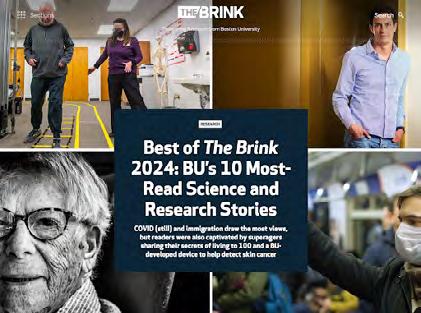
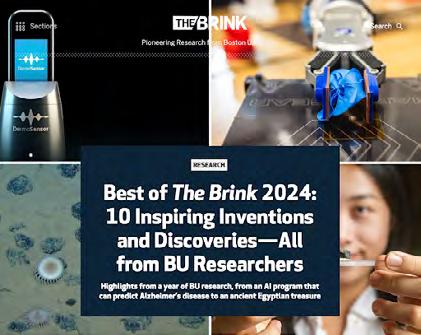

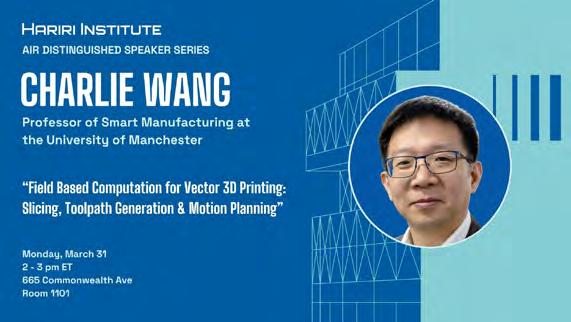

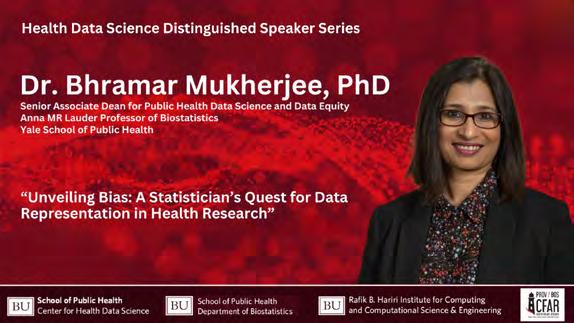
Total Attendees
185
Press Stories and Media Mentions
$7.78M
Estimated Advertising Equivalency of Earned Media
44 Hariri Institute Authored Stories
The 2025 Hariri Institute Community Recognition Awards celebrate Hariri Institute personnel whose contributions have been instrumental in helping to bring success to their team and to our organization. This program also aims to raise awareness of the important work that transpires, at all levels, within the Institute and broaden understanding of how personnel efforts help advance the Institute’s mission. Award recipients were selected through voting by the community.
Recipient: Katherine D’Angelo, Assistant Director, Programs and Events, Hariri Institute
Finalist: Nancy Clinton, Managing Director, Mass Open Cloud Alliance
Innovation Award
Recipient: Asad Malik, Software Engineer, SAIL; Innovation Engineer, BU Spark!
Student Excellence Award
Recipient: Pujan Paudel, PhD candidate, BU SecLab, advised by Professor Gianluca Stringhini (ENG)
Team Player Award
Recipient: Kristen Dionne, Senior Administrative Assistant, Hariri Institute
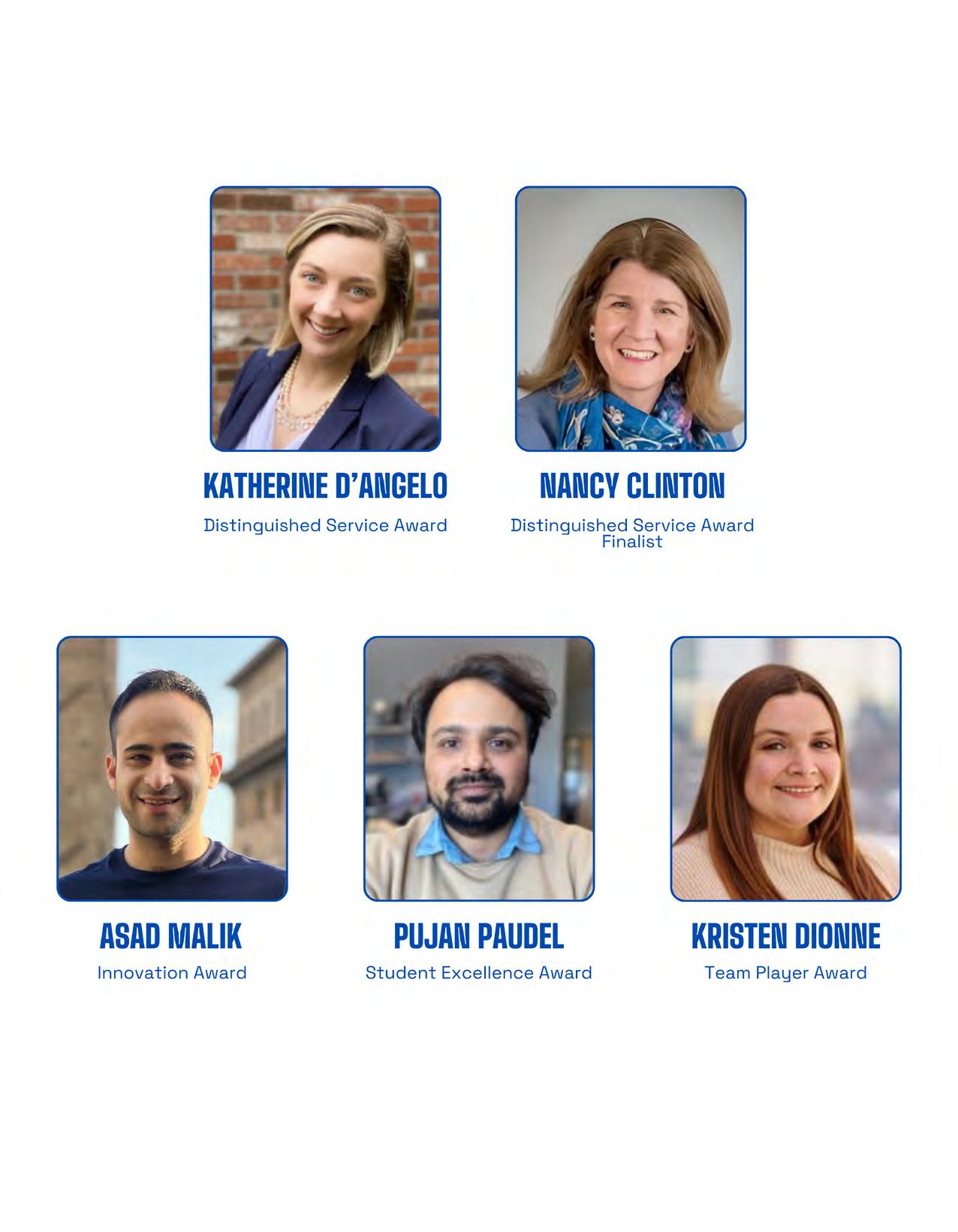
Alexander Bulekov, CE PhD ‘24, won the Distinguished Paper Award at the 33rd USENIX Security Symposium. (Advised by Professor Manuel Egele, ENG.) Alexander Bulekov, Qiang Liu, Manuel Egele, and Mathias Payer. 2024. HYPERPILL: fuzzing for hypervisor-bugs by leveraging the hardware virtualization interface. In Proceedings of the 33rd USENIX Conference on Security Symposium. SEC ‘24. USENIX Association, USA, Article 52, 919–935.
Chathura Rajapaksha, ECE PhD candidate, won 2nd place at the inaugural hardware hacking competition at IEEE HOST 2025 with collaborators at BU, Red Hat and IBM. (Advised by ENG faculty Manuel Egele and Ajay Joshi.)
Ehsan Sabouni, SE PhD ‘25, advised by Christos Cassandras (ENG), and H.M. Sabbir Ahmad, SE PhD student, advised by ENG Professors Wenchao Li and Christos Cassandras, received the 2024 IEEE CSS TC Smart Cities Paper Prize. E. Sabouni, H. M. S. Ahmad, W. Xiao, C. G. Cassandras and W. Li, “Optimal Control of Connected Automated Vehicles with EventTriggered Control Barrier Functions: a Test Bed for Safe Optimal Merging,” 2023 IEEE Conference on Control Technology and Applications (CCTA), Bridgetown, Barbados, 2023, pp. 321-326.
Chirag Arora, Chemistry PhD student, won the Best Poster award at the 42nd Eastern Regional Photosynthesis Conference in Woods Hole, MA. (Advised by David Coker, Chemistry.)
Emerson Conrad-Rooney, Biology PhD candidate, won first place in the AAAS 2025 Student E-Poster Competition in the Environment and Ecology category. (Advised by Pamela Templer, Biology.)
Emma Daily, Biology PhD student, received a 2025 NSF Graduate Research Fellowship Honorable Mention. (Advised by Pamela Templer, Biology.)
Samad Amini, SE PhD ‘25, was awarded the 2025 BU Engineering PhD Societal Impact Award. (Advised by Yannis Paschalidis, ENG.)
Byungchang (Kenny) Kim, BME PhD ‘25, was awarded the 2025 BU College of Engineering Best Dissertation Award. (Advised by David Boas, ENG.)
Mela Coffey, MechE PhD ‘25, was awarded the 2025 BU Mechanical Engineering Outstanding Dissertation Award. (Advised by Alyssa Pierson, ENG.)
Cansu Demirkiran, ECE PhD ‘24, was awarded the 2025 BU Outstanding Computer Engineering Dissertation Award. (Advised by Ajay Joshi, ENG.)
Boran Hao, ECE PhD ‘25, was awarded the 2025 BU Electrical Engineering Outstanding Dissertation Award. (Advised by Yannis Paschalidis, ENG.)
Anni Li, SE PhD ‘25, was awarded the 2025 BU Systems Engineering Outstanding Dissertation Award. (Advised by Christos Cassandras, ENG.)
Madison Morey, MSE PhD, was awarded the 2025 BU Material Science & Engineering Dissertation Award. (Advised by Emily Ryan, ENG).
Zoey Werbin, Biology PhD ‘25, was awarded the 2025 BU Belamarich Award. (Advised by Michael Dietze, Earth & Environment, and Jenny Bhatnagar, Microbial Ecology.)
JK Da-Anoy, Biology PhD student, received the 2025 Alistair Economakis Award in Marine Science. (Advised by Sarah Davies, Biology.)
Grant Goehring, Economics PhD student, received the 2025 Rosenstein-Rodan Prize Award. (Advised by James Feigenbaum, Economics.)
Nicole Huth, Development Science PhD student, received the Mia Jin Award. (Advised by Nicholas Wagner, Psychological & Brain Sciences.)
MPH students Bernadette Carter-Salmond, Mallika Chimpiri, Rowena Lindsay, Jack Mellom, and Aidan Stotz awarded Public Health Post Fellowships under the direction of SPH faculty Monica Wang and Jennifer Beard, and Managing Editor Mallory Bersi (SPH’19).
Nishaat Mukadam, Clinical Psychology PhD student, received the Clara Mayo Memorial Fellowship. (Advised by Alice Cronin-Golomb, Psychological & Brain Sciences.)
Primah Muwanga, CDS, and Celine Chen, ECE, won Janetos Climate Action Prize. (Advised by Thomas D. Little, ENG.)
Tarikul Islam Papon, CS PhD ‘25, received the 2025 BU Department of Computer Science Teaching Excellence Award. (Advised by Manos Athanassoulis, CS.)
Aneesh Raman, CS PhD candidate, received the 2025 Department of Computer Science Research Excellence Award. (Advised by Manos Athanassoulis, CS.)
Peter Schroedl, Biology PhD candidate, advised by Jeffrey Marlow (Biology), and Lili Vizer, Biology PhD candidate, advised by Pete Buston (Biology), received the Warren McLeod Summer Award.
Montana Shore, Development Science PhD student, received the Clara Mayo Memorial Fellowship. (Advised by Peter Blake, Psychological & Brain Sciences.)
Rachael Silberstein, Developmental Psychology PhD student, received the Justice, Equity, Diversity & Inclusion (JEDI) Award. (Advised by Peter Blake, Psychological & Brain Sciences.)
Satchit Sivakumar, CS PhD student, received the 2025 Department of Computer Science Research Excellence Award. (Advised by Mark Bun, CS.)
Rohan Soni, MSE PhD candidate, was awarded the 2025 BU Materials Science & Engineering PhD Entrepreneurial Award. (Advised by Soumendra Basu, ENG.)
Piotr Teterwak, CS PhD student, received the 2025 Graduate School of Arts and Sciences Teaching Excellence Award. (Advised by CS Professors Kate Saenko and Bryan Plummer.)
Kamran Vakil, ME PhD student, won 2nd Place Best Presenter Award at CGSW 2025 for “Decentralized Drone Swaps for Online Rebalancing of Drone Delivery Tasks.” (https://sites.bu.edu/pierson/ files/2025/03/Vakil2025icra.pdf). (Advised by Alyssa Pierson, ENG.)
Maria Valadez Ingersoll, Biology PhD ‘25, was awarded the BU Genome Science Institute (GSI) Research Symposium Grand Prize. (Advised by Sarah Davies, Biology.)
Karan Vombatkere, CS PhD candidate, received the 2025 Department of Computer Science Teaching Excellence Award. (Advised by Evimaria Terzi, CS.)
Lingyi Xu, CDS PhD student, received an Evans Day Research Award for placing third in the 2024 Clinical Poster category. (Advised by Vijaya Kolachama, Chobanian & Avedisian SOM.)
Hao Yu, CS PhD student, received the 2025 Department of Computer Science Research Excellence Award. (Advised by Margrit Betke, CS.)
Jiujia Zhang, Electrical Engineering PhD student, won a 2025 SPH Dean’s Innovation Challenge for the project titled “Detecting Tuberculosis in LowResource Settings” along with team collaborators, including SPH Professors Meredith Brooks and Leonardo Martinez and Epidemiology PhD student Lauren Linde. (Advised by Ashok Cutkosky, ENG.)
Zichen Zhu, CS PhD candidate, received the 2025 Department of Computer Science Teaching Excellence Award. (Advised by Manos Athanassoulis, CS.)
Clarivate 2024 World’s Most Influential Researchers
Benjamin K. Sovacool (Earth & Environment)
Sandor Vajda (ENG & Chemistry)
Curtis E. Woodcock (Earth & Environment)
Fellowships & Society Honors
Jacob Brown (Political Science): 2025 Andrew Carnegie Fellow.
Anushya Chandran (Physics): Martin Gutzwiller Fellow, Max Planck Institute for the Physics of Complex Systems.
Masao Fukui (Economics): National Bureau of Economic Research Faculty Research Fellow.
Robinson “Wally” Fulweiler (Earth & Environment): 2024 Simons Pivot Fellow.
Neha Gondal (Sociology): Senior Visiting Research Fellow, The Swedish Excellence Center for Computational Social Science (SweCSS), Linköping University, Sweden.
Janusz Konrad (ENG): Fellow, European Association For Signal Processing (EURASIP) (2025).
Merav Opher (Astronomy): Fellow, American Geophysical Union (AGU) (2024).
Merav Opher (Physics): 2025 Guggenheim Fellow.
Yannis Paschalidis (ENG): Distinguished Member, IEEE Control Systems Society (2024).
Yannis Paschalidis (ENG): Fellow, Asia-Pacific Artificial Intelligence Association (2024).
Anatoli Polkovnikov (Physics): Fellow, American Physical Society (APS) (2024).
Sahar Sharifzadeh (ENG): Vice Chair of the Division of Computational Physics, American Physical Society (APS).
Rabia Yazicigil (ENG): National Academy of Engineering (NAE) US Frontiers of Engineering (2024).
Distinguished Awards
Anita Carson (Questrom): Lifetime Achievement Award, Production & Operations Management Society (POMS) College of Service Operations.
Lucy Hutyra (Earth & Environment): 2024 American Geophysical Union Ascent Award.
Swathi Kiran (SAR): ASHA 2024 Honors Award..
Loretta Lees (Sociology): 2025 AAG E. Willard and Ruby S. Miller Award.
Loretta Lees (Sociology): 2025 Urban Affairs Association (UAA) Contribution to the Field of Urban Affairs Award.
Yuhei Miyauchi (Economics): 2025 August Lösch Prize for research on “Matching and Agglomeration: Theory and Evidence from Japanese Firm-to-Firm Trade” and “Measuring Commuting and Economic Activity inside Cities with Cell Phone Records”.
Elaine Nsoesie (SPH): Mozilla 2024 Rise25 Honoree, Change Agent category.
Adriana Tomic (Chobanian & Avedisian SOM): Litchfield Lectureship from the University of Oxford for AI research on translating immune signatures into vaccine effectiveness.
Ivan Tomic (Chobanian & Avedisian SOM): National Institute of Allergy and Infectious Diseases (NIAID) Centers of Excellence for Influenza Research and Response (CEIRR) award for work on Immunaut, an AI platform for predicting vaccine immunogenicity.
Gerry Tsoukalas (Questrom): Thinkers50 Radar Class Of 2025.
Sandor Vajda (ENG): Winner, CASP-16 (Critical Assessment of Structure Prediction) competition in category of multiprotein complexes.
Rabia Yazicigil (ENG): IEEE Circuits and Systems Society (CASS) Distinguished Lecturer (20252026).
Rabia Yazicigil (ENG): National Academy of Engineering (NAE) US Frontiers of Engineering.
Xin Zhang (ENG): 2025 ASME Thomas A. Edison Patent Award from the American Society of Mechanical Engineers (ASME).
Distinguished Publications
Michelle Amazeen (COM) and Chris Chao Su (COM): Top Faculty Paper in Mass Communication & Society Division: “Apprehensive or Motivational Threat? Examining the Effects of Inoculation, Threat Generation, Counterarguing, and Information Processing on Disinformation Belief.” Association for Education in Journalism and Mass Communication (AEJMC) annual conference.
Dillon Brout (Astronomy): IOP Publishing North America Top Cited Paper Award: Dillon Brout et al. “The Pantheon plus Analysis: Cosmological Constraints.” 2022, The Astrophysical Journal, ApJ 938 110.
Emiliano Dall’Anese (ENG): IEEE Power & Energy Society ISGT Europe Best Paper Award: E. Dall’Anese et al. “A Robust Incremental Volt/VAR Control for Distribution Networks.” 2024, IEEE PES Innovative Smart Grid Technologies Europe (ISGT EUROPE), Dubrovnik, Croatia, 2024, pp. 1-5.
Manuel Egele (ENG): Usenix Security Symposium Distinguished Paper Award: Alexander Bulekov, et al. “HYPERPILL: Fuzzing for Hypervisor-bugs by Leveraging the Hardware Virtualization Interface.” 2024, Proceedings of the 33rd USENIX Conference on Security Symposium. SEC ‘24. USENIX Association, USA, Article 52, 919–935.
Prakash Ishwar (ENG): IEEE MLSP Best Paper Award: T. Nguyen, et al. “On Neural Collapse in Contrastive Learning with Imbalanced Datasets.” 2024, IEEE 34th International Workshop on Machine Learning for Signal Processing (MLSP), London, United Kingdom, 2024, pp. 1-6.
Loretta Lees (Sociology): International Planning History Society (IPHS) First Book Prize: Loretta Lees, Elanor Warwick. Defensible Space on the Move: Mobilisation in English Housing Policy and Practice (Chichester, Wiley, 2022).
Eshed Ohn Bar (ENG): Top 2.8% of submissions: J. Zhang, Z. Huang, A. Ray and E. Ohn-Bar, “FeedbackGuided Autonomous Driving,” 2024 IEEE/CVF Conference on Computer Vision and Pattern Recognition (CVPR), Seattle, WA, USA, 2024, pp. 15000-15011.
Yannis Paschalidis (ENG): Most downloaded article in first 12 months of publication: Amini S, et al. “Automated detection of mild cognitive impairment and dementia from voice recordings: A natural language processing approach.” Alzheimer’s Dement. 2023 Mar;19(3):946-955. doi: 10.1002/alz.12721.
Yannis Paschalidis (ENG): Selected by the journal as a feature paper and covered as an editorial spotlight: Yland, Jennifer J. et al. “Predictive models of miscarriage based on data from a preconception cohort study.” Fertility and Sterility, Volume 122, Issue 1, 140 - 149.
Su, C. C. & Chan, N. (2025 June). Top Faculty Paper in Communication Law & Policy division: Assembling Platform Governance as Private Ordering in the Age of Generative AI: Platform Interdependence in Policy Evolution. The annual conference of the International Communication Association, Denver.
Mayank Varia (CDS): ACM Symposium on Computer Science and Law Best Paper Award: Peter K. Chan, et al. 2025. “Murmurs of the Silenced: Secure Reporting of Misconduct Settlements.” In Proceedings of the 2025 Symposium on Computer Science and Law (CSLAW ‘25). Association for Computing Machinery, NY, NY, 121–135.
Rabia Yazicigil (ENG): Co-Recipient, IEEE Transactions on Biomedical Circuits and Systems Best Paper Award: Q. Liu, et al. “Integrated RealTime CMOS Luminescence Sensing and Impedance Spectroscopy in Droplet Microfluidics.” 2025, IEEE Transactions on Biomedical Circuits and Systems, vol. 18, no. 6, pp. 1233-1252, Dec. 2024.
Keith Brown (ENG): “2024 Outstanding Reviewer” Digital Discovery Journal.
Chris Chao Su (COM): Editorial board, Chinese Journal of Communication (SSCI, Q2).
Chris Chao Su (COM): Editorial board, Digital Journalism (SSCI, Q1).
Neha Gondal (Sociology): Deputy Editor, Journal of Health and Social Behavior.
Neha Gondal (Sociology): Editorial Board Member, Social Forces.
Diane Joseph-McCarthy (ENG): Editor-in-Chief, Journal of Computer-Aided Molecular Design, Springer Nature.
W. Clem Karl (ENG): IEEE 2025 Vice President of Publication Services and Products.
Tesary Lin (Questrom): Editorial Review Board, Marketing Science.
Marcia Pescador Jimenez (SPH): Guest Editor, American Journal of Epidemiology (AJE) Special Issue on Latino Health.
Sheila Russo (ENG): Associate Editor, International Journal on Robotics Research.
Rabia Yazicigil (ENG): Associate Editor, IEEE Transactions on Circuits and Systems for Artificial Intelligence (TCASAI).
Rabia Yazicigil (ENG): IEEE Journal of Solid-State Circuits (JSSC) Guest Associate Editor, IEEE International Solid-State Circuits Conference (ISSCC) Special Issue (2024).
Keith Brown (ENG): First Chair of the Materials Research Society AI Topical Community.
Emiliano Dall’Anese (ENG): Chair, IEEE Control System Society Technical Committee on Networks and Communication Systems.
Mary Dunlop (ENG): Chair, NIH Modeling and Analysis of Biological Systems (MABS) Study Section.
Tesary Lin (Questrom): Scientific Committee: ACM Conference on Economics and Computation.
Abraham Matta (CS): National Science Foundation Program Director, CISE Directorate, Division of CNS.
Shariq Mohammed (SPH): Conference Advisory Committee, New England Statistics Symposium 2025.
Shariq Mohammed (SPH): Reviewer, APHA Annual Conference.
Shariq Mohammed (SPH): Vice-President, Conferences Committee, New England Statistics Society.
Xiaozhou Ruan (Earth & Environment): “Process Study and Model Improvement” Panel Member, US Climate Variability and Predictability (US CLIVAR) national research program.
Sheila Russo (ENG): Co-Chair of the IEEE Robotics and Automation Society (RAS) Technical Committee on Soft Robotics.
Yannis Paschalidis (ENG): American Automatic Control Council, Alternate Director, Board of Directors.
Yannis Paschalidis (ENG): Member, Global Technical Advisory Committee, Alzheimer’s Disease Data Initiative.
Yannis Paschalidis (ENG): Co-General Chair, IEEE Conference on Decision and Control, December 2025, Rio de Janeiro, Brazil.
Alyssa Pierson (ENG): Co-Organizer of the 2025 RSS Workshop on Scalable and Resilient Multi-Robot Systems.
Alyssa Pierson (ENG): IEEE ICRA 2025 Awards Committee member for the Best Paper in MultiRobot Systems.
Alyssa Pierson (ENG): Session Chair, IEEE ICRA 2025 Session on Multi-Robot Path Planning 2.
Rabia Yazicigil (ENG): Workshop Co-Chair, IEEE European Solid-State Electronics Conference (ESSERC) 2024.
Rabia Yazicigil (ENG): Demo and Poster Co-Chair, International Conference on 6G Networking (6GNet 2024).
Industry Leadership Collaboration
Ayse Coskun (ENG): Named Chief Scientist at Emerald AI, a new company that aims to control the computational power demand from data centers running cloud and AI workloads, while ensuring performance guarantees.
Orran Krieger (ENG): Appointed Director of Red Hat Research.
Connor Mack (Questrom): Appointed Board Member of Red Clay Hot Sauce.
University Distinctions Appointments
Peter Buston (BIO), Associate Dean of the Faculty for the Natural Sciences.
Debbie Cheng (SPH), Assistant Dean of Data Science.
Ayse Coskun (ENG), Associate Dean for Research and Faculty Development, effective July 1, 2025.
Emiliano Dall’Anese (ENG), Assistant Division Head of Systems Engineering, effective January 1, 2026.
Elise Morgan (ENG), Dean, College of Engineering, effective August 1, 2025.
Full Professor
Mary Dunlop (ENG)
Marco Gaboardi (CS)
Douglas Holmes (ENG)
Scott Hirst (LAW)
Cara Lewis (SAR)
Alex Olshevsky (ENG)
Chris Wells (COM)
Associate Professor
Manos Athanassoulis (CS)
Martin Fiszbein (Economics)
Andrey Fradkin (Questrom)
Masha Kamenetska (Chemistry & Physics)
Sheila Russo (ENG)
Nicholas Wagner (Psychological & Brain Sciences)
Rabia Yazicigil (ENG)
Assistant Professor
Kathy Kim (Wheelock)
Senior Lecturer
Greg Benoit (Wheelock)
University-wide Awards
Lei Tian (ENG): Recipient of the Boston University Provost’s Scholar-Teacher of the Year Award.
Business
Tesary Lin (Questrom): Dean’s Research Scholar, 2024 - 2026.
Gerry Tsoukalas (Questrom): Dean’s Research Scholar, 2024 - 2026.
Education & Human Development
Michael Alan Chang (Wheelock): Awarded the Large Grant Award.
Christina Dobbs (Wheelock): Awarded the Gordon L. Marshall Fellowship Award.
Jennifer Greif Green (Wheelock): Awarded the Edward H. Ladd Award for Academic Excellence and Service.
Engineering
Mary Dunlop (BME): Awarded the Dorf-Ebner Distinguished Faculty Fellowship.
Mary Dunlop (ENG): Awarded for Excellence in Mentoring Postdocs.
Douglas Holmes (ENG): Awarded the Theo de Winter Distinguished Faculty Fellowship.
Andrew Sabelhaus (ENG): Recipient of the Teaching Excellence in the Engineering Core Curriculum Award.
Gianluca Stringhini (ECE): Awarded the Distinguished Faculty Fellowship.
Tianyu Wang (ENG): Awarded the Peter J. Levine Career Development Professorship.
Health & Neuroscience
David Boas (ENG) and Mike Esterman (Chobanian & Avedisian SOM) received a 2024 Rajen Kilachand Fund Award for the project titled “Transforming Our Understanding of the Brain” with Emily Stephen (Statistical Neuroscience.)
Anita DeStefano (SPH): Received the SPH Diversity, Equity, Inclusion, and Justice Award.
Ruben Dries (Chobanian & Avedisian SOM): Inducted into the Boston Medical Center Research Excellence Society.
Patricia Fabian (SPH): Received the SPH Excellence in Research Innovation Award.
Kevin Lane (SPH): Received the SPH Excellence in Teaching Award for Dedication to Student Learning.
Shariq Mohammed (SPH): Named a Member of the Biostatistics Qualifying Exam Committee.
Charlene Ong (Chobanian & Avedisian SOM): Inducted into the Boston Medical Center Research Excellence Society.
Charlene Ong (Chobanian & Avedisian SOM): Awarded for the Excellence in Research Mentorship, MD Program.
Yannis Paschalidis (ENG): Received the Outstanding Research Collaborator Award, Department of Medicine, Chobanian & Avedisian SOM.
Marcia Pescador Jimenez (SPH): Received the Educational Innovation Award at Boston University SPH.
Greg Wellenius (SPH): Received the SPH Excellence in Research Mentoring Award.
“CAREER: Synthesis of Feedback-Based Online Algorithms for Power Grids.” NSF. $258,677. Emiliano Dall’Anese (ENG).
“CAREER: Uncovering the role of splicing factors in transcriptional regulation.” NSF. $779,999. Ana Fiszbein (Biology).
“CAREER: Multidimensional Utility Maximization when Ordeals are Payments.” NSF. $259,116. Kira Goldner (CS).
“CAREER: “Adaptive resource management and reconfiguration mechanisms for streaming dataflow systems.” NSF. $252,604. Vasiliki Kalavri (CS).
“CAREER: Physically-Aware Accelerator Design Flows for Motion Planning”. NSF. $127,658. Sabrina Neuman (CS).
“Advancing a Prognostic and Monitoring Biomarker of Neutrophil-driven Secondary Brain Injury in Spontaneous Intracerebral Hemorrhage for Neurotherapeutic Development.” NIH NINDS. $3,804,665. Co-PI Charlene Ong (Chobanian & Avedisian SOM).
“BEACON: The Biothreats Emergence, Analysis, and Communications Network.” Bill and Melinda Gates Foundation, $1,500,000. PI Nahid Bhadelia (Chobanian & Avedisian SOM). Co-PI Yannis Paschalidis (ENG).
“Bias Awareness and Mitigation in Breast Cancer Risk Prediction for Marginalized Groups Through Participatory AI.” Google Academic Research Award (GARA) $75,000. PIs Kayhan Batmanghelich (ENG) and Carnegie Mellon Professor Motahhare Eslam.
“Characterizing Respiratory Syncytial Virus Burden and Prevention in the United States.” NIH/National Institute of Allergy and Infectious Diseases. $189,276. PI Allison Portnoy (SPH).
“Collaborative Research: CAIG: A Large Foundational Model for Earthquake Understanding.” NSF. $750,000 (BU $300,000). PI Brian Kulis (ENG).
“Collaborative Research: An Integrative Investigation of Dispersal Plasticity Using a Coral Reef Fish.” NSF. 1,599,823 (BU). PI Peter Buston (Biology). Co-PIs Sarah Davies (Biology) and Ranjan Muthukrishnan.
“Collaborative Research: GCR: Towards a PhysicsInspired Approach to Computation on Encrypted Data.” NSF. $3,599,898 (BU $2,770,718). PI Andrei Ruckenstein (Physics). BU Co-PIs Ran Canetti (CS) and Claudio Chamon (Physics).
“Collaborative Research: Simulations, Theory and Observations of Plasma Turbulence and Heating Found in Solar Chromosphere.” NSF. $517,046. PI Meers Oppenheim (Astronomy).
“Collaborative Research: SHF: III: Medium: Effortless Data Locality Through Near-memory On-the-fly Data Transformation.” NSF. $728,000. PI Renato Mancuso (CS). Co-PI: Manos Athanassoulis (CS)
“Collaborative Research: Interferers in our midst.” NSF. $265,998, Co-PI Rabia Yazicigil (ENG).
“Collaborative Research: SATC: CORE: SMALL: Enabling the Automated Delivery of ContextAware Notifications.” NSF. $599,996. PI: Gianluca Stringhini (ENG).
“Combining AI with Physics-Based Models for the Prediction of Antigen-Antibody and MHC-Peptide Structure and Binding.” Merck Research, $200,000. PI Diane Joseph-McCarthy (ENG). Co-PIs Yannis Paschalidis (ENG), Sandor Vajda (ENG).
“Community Adaptations to City Heat (CATCH)” Climate Impact Award. Wellcome Trust. $3,200,000. PI Patricia Faban (SPH). BU Collaborators Stephanie Ettinger de Cuba (SPH), Madeleine Scammell (SPH), and Greg Wellenius (SPH), Ian Sue Wing (Earth & Environment) and Lucy Hutyra (Earth & Environment).
“DESC: Type I: FlexDC: Flexible Artificial Intelligence Data Centers for Optimized Computing”. NSF. $600,000. PI Ayse Coskun (ENG). Co-PI Emiliano Dall’Anese (ENG).
“Digital Cognitive Assessment of Preclinical Alzheimer’s Disease and Related Dementias.” NIH NIA. $792,380. PI Rhoda Au (Chobanian & Avedisian SOM). BU Co-PI Vijaya B. Kolachalama (Chobanian & Avedisian SOM).
“EAGER: The Biothreats Emergence, Analysis, and Communications Network (BEACON).” NSF Directorate for Biological Sciences, Division of Environmental Biology, $199,979. PI Nahid Bhadelia (Chobanian & Avedisian SOM). BU Co-PI Yannis Paschalidis (ENG).
“High-speed, real-time feedback-driven single particle tracking with concurrent smFRET.” NIH. $216,675. PI Sean B. Andersson (ENG).
“Integrating Multi-Modal Data and Biomechanics in COPD: Toward Robust and Interpretable Biomarkers for Disease Subtyping and Progression.” NIH. National Heart Lung and Blood Institute. $3,100,000. PI Kayhan Batmanghelich (ENG).
“Intracadriac Beating Heart Tricuspid Valve Repair via Robotics”. NIH NIBIB. $564,148. PI Tomasso Ranzani (ENG).
“Koopman in the Field: Feedback, Teaching, and Adaptation for Real World Mechanical Systems.” NSF. $522,592. PI Roberto Tron (ENG). Co-PI Andrew Sabelhaus (ENG).
“LLM Training and Evaluation for Pandemic Prevention and Response.” NSF National Artificial Intelligence Research Resource Pilot. 220,000 NVIDIA A100 GPU hours (valued at $880,000) and $5,000 in OpenAI API credits. PI Yannis Paschalidis (ENG).
“LLM-Based Tracing Management for User-Friendly Performance Analysis in the Cloud.” Google Academic Research Award (GARA). $100,000. PIs Ayse Coskun (ENG) and Gianluca Stringhini (ENG).
“MRA: Using NEON and other network data to anchor a continental multi-scale carbon cycle assimilation and forecast.” NSF. $929,221. PI Michael Dietze (Earth & Environment). Co-PI Jonathan Huggins (Math & Statistics).
“Non-reciprocal circuit-QED devices using synthetic band topology.” DOD/AFOSR. $858,781. Co-PI Anushya Chandran (Physics).
“NRT: ENERGIZE Interdisciplinary graduate program integrating data science in energy materials research.” NSF. $3,000,000. PI Malika Jeffries-EL (Chemistry). Co-PIs David Coker (Chemistry), Brian Kulis (ENG), Emily Ryan (ENG), and James Chapman (ENG).
“Optogenetic control for metabolic engineering using protein-level regulation.” NSF. $519,071. PI Mary Dunlop (ENG).
“Pragmatic RCT of AI in Mammography: Effect on Accuracy, Patient Reported Outcomes, and Health Equity.” Patient-Centered Outcomes Research Institute (PCORI). $917,583. BMC Site PI Clare Poynton (Chobanian & Avedisian SOM).
“Predictive Intelligence for BEACON: The Biothreats Emergence, Analysis, and Communications Network.” Tianqiao and Chrissy Chen Institute (TCCI). $300,000. PIs Nahid Bhadelia (Chobanian & Avedisian SOM) and Yannis Paschalidis (ENG).
“Providing Reproducible and Equitable AI Access in Academia.” SLOAN Foundation. $250,000. PI William Tomlinson (SAIL).
“Reach Every Reader Assessment.” Chan Zuckerberg Initiative. $1,500,000. PI Nancy Nelson (Wheelock).
“Reach Every Reader.” Chan Zuckerberg Initiative. $150,000. Subaward PI Ola Ozernov-Palchik (Wheelock).
“Rules of Life in the Urban Biome”. Keck Foundation. $1,000,000. PIs Jennifer Bhatnagar (Biology) and Lucy Hutyra (Earth & Environment).
“Sketching for Efficient and Robust Top-Down Autonomous Navigation”. NSF. $648,664. PI Roberto Tron (ENG). Co-PI Sean Andersson (ENG)
“The Internet of Things National Training and Technical Assistance Program.” US Department of Justice’s Bureau of Justice Assistance (BJA). $440,000. Co-PIs Kyung-shick Choi (MET) and Lou Chitkushev (MET).
“The role of diel thermal variability on coral performance.” NSF. $1,083,165. PI Sarah Davies (Biology).
“Toward a more complete understanding of coastal upwelling dynamics.” NSF. $$478,920. PI Xiaozhou Ruan (Earth & Environment).
“Understanding Exciton Transport Within Ordered Organic Assemblies from First-Principles Modeling.” NSF. $267,000. PI Sahar Sharifzadeh (ENG)
“Unraveling the Determinants of Cross-Protective T Cell Immunity Against Influenza using a MultiOmics Approach.” NIH Center of Excellence for Influenza Research and Response (CEIRR), Center for Research on Influenza Pathogenesis and Transmission (CRIPT) at the Icahn School of Medicine at Mount Sinai in New York City. $400,000. PI Adriana Tomic (ENG).
“Wideband, Scalable Mimo Arrays For Nextg Systems: From Antennas To Decoders.” Northeast Microelectronics Coalition (NEMC) Hub. $325,190. Subaward PI Rabia Yazicigil (ENG).
Ajay Joshi (ENG): Recipient of a BU Ignition Award with Rashmi Agrawal to advance technology for processing encrypted data in commercial cloud environments. (ENG).
Brian DePasquale (ENG): Recipient of a 2025 Dean’s Catalyst Award for “Everyday Stress and Cognition in Epilepsy: Leveraging Machine Learning for Next-Generation Neurostimulation Systems” with Matthias Stangl (ENG).
Charlene Ong (Chobanian & Avedisian SOM): SPH Center for Health Data Science (CHDS) Pilot Award: “PUPIL-ALERT Study: Predictive Utility of Pupillometry in Life-threatening mass effect Management and Outcome Evaluation.”
Debbie Cheng (SPH) and Kimberly Nelson (SPH): Recipients of the 2025 Dean’s Innovation Challenge (SPH) for “Preventing Drug Overdoses Among Adolescents” with collaborators Nina Cesare, Sarah Bagley, and Amy Yule
Douglas Holmes (ENG): Recipient of the Dean’s Research Infrastructure Awards. (ENG).
Eshed Ohn-Bar (ENG): College of Engineering Early Career Excellence in Research Award.
J. Gregory McDaniel (ENG): Recipient of the Dean’s Research Infrastructure Awards. (ENG).
Keith Brown (ENG): Recipient of the Dean’s Research Infrastructure Award. (ENG).
Vipul Chitalia (Chobanian & Avedisian SOM): Recipient of a BU Ignition Award with Darren Roblyer (ENG) to advance development of DialySight, a device that monitors kidney dialysis in real time.
Vivek Goyal (ENG): Recipient of a 2025 Dean’s Catalyst Award for “Improving Solid Oxide Cell Performance for Green Energy Breakthroughs in Nanoscale 3D Imaging,” with Soumendra Basu (ENG).
Over the past year, the Institute advanced its mission to foster cross-disciplinary collaboration, enabling researchers to tackle important challenges and achieve groundbreaking advances. As Boston University’s central hub for programs and initiatives at the intersection of AI, data science, and computing, we remain focused on accelerating research convergence and shaping innovative solutions with lasting societal impact.
Our FY26 strategic priorities are:

We will continue investing in our successful Focused Research Programs (FRPs), which demonstrate how targeted university support can nucleate high-impact, sustainable convergent research. During the last three FRP cycles, we have funded four FRP programs that brought together faculty from the Charles River Campus and Medical Campus to work on important problems, such as leveraging AI methods in brain, breast cancer, pulmonary and cardiovascular disease domains. We will use the FRP mechanism to expand CRC–BUMC FRP collaborations, building on strong partnerships with the School of Public Health, Clinical and Translational Science Institute, and the Evans Center for Interdisciplinary Biomedical Research. We also seek to play an enabling role to support Boston Medical Center’s efforts to make HIPAA-protected AI tools available for medical practice and research. Additionally, we will explore opportunities to generalize this model to impact other schools and colleges through direct partnerships and/or as part of BU’s realignment and investment in convergent research.
We will expand the role of AI and advanced computing in sustainability research by fostering new partnerships with industry and academia. Our focus will include sustainable computing, accelerating the integration of renewable energy through smarter grids and demand response, and advancing the use of AI in ecological modeling, climate science, and understanding the health impacts of climate change. 1 2 3 4
Industry engagement has offered a wealth of internships and employment opportunities for our students, while also supporting the launch of research initiatives and collaborative prospects. In FY26, we plan to broaden our industry partnerships and expand our Advisory Board to include a broader range of industry, academic, and government members.
The Institute promotes research advancement and collaboration through its service function, including funding and supporting research incubation faculty and student fellowships; providing full grant administration services; and supporting targeted software engineering through SAIL. We also provide marketing, communications, and event organization services for our 10 affiliated centers, initiatives and FRPs, and support strategic university-wide initiatives, such as the newly formed AI Development Accelerator (AIDA). In FY26, we will expand SAIL’s role as a research partner by promoting its expertise in the design of custom AI pipelines for diverse projects, and improve marketing communications efficiency with the launch of a revamped website for the Hariri Institute.
The Hariri Institute for Computing is a federation of centers, labs, and initiatives. Our leadership team consists of the Directors or Co-Directors of each federated area, plus the Institute’s Director. Each of these leaders serves on the Institute’s Steering Committee in an ex-officio capacity.

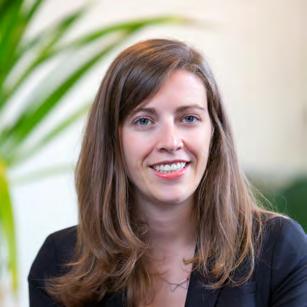
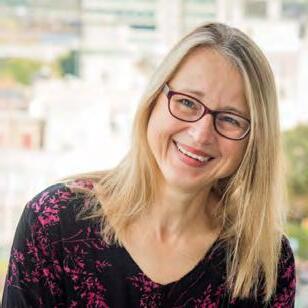
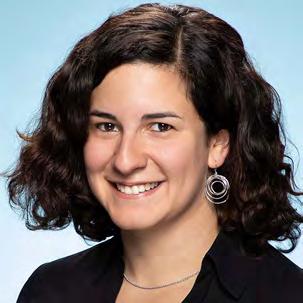

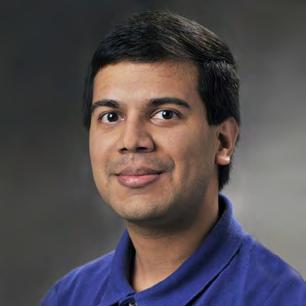
Director, Hariri Institute for Computing and Computational Science & Engineering
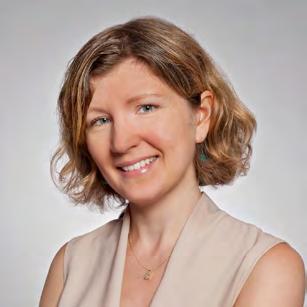
Director, AI and Education Initiative
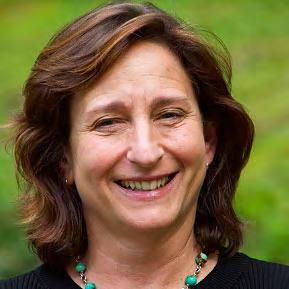
Co-Director, Artificial Intelligence Research (AIR) Initiative
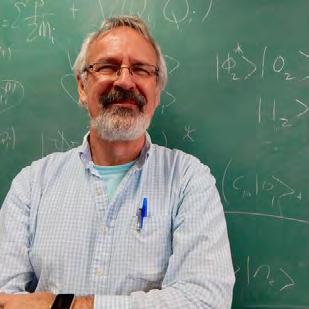
Co-Director, Artificial Intelligence Research (AIR) Initiative
Executive Director, Boston Women’s Workforce Council (BWWC)
Director, Center for Computational Science
Director, Center for Information & Systems Engineering (CISE)
Co-Director, Center for Reliable Information Systems & Cyber Security (RISCS)


Co-Director, Center for Reliable Information Systems & Cyber Security (RISCS)
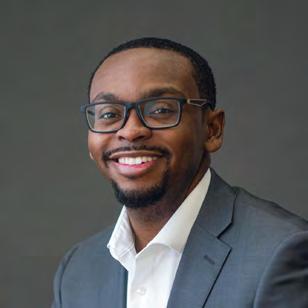
Co-Director Red Hat Collaboratory
Director, MOC Alliance
Director, Software & Application Innovation Lab (SAIL)
Members of the Institute’s Steering Committee are appointed by the Office of Research to assist the Director with overall strategic planning and management of the Institute’s operations. Members assist in reviewing ongoing activities, identifying and evaluating opportunities for investment of resources, developing proposals for new programs or initiatives, communicating the Institute’s vision, and promoting its goals to the constituents they represent.
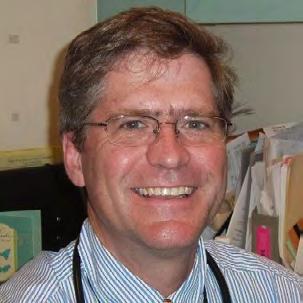
Bill Adams
Professor (Chobanian & Avedisian SOM); Director (CTSI) and Child Health Informatics; Pediatrician (BMC)
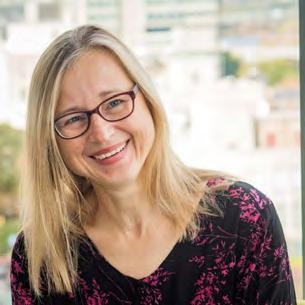

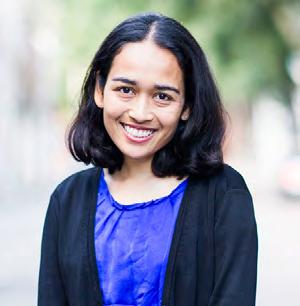
Rhoda Au
Professor, Anatomy, Neurobiology (Chobanian & Avedisian SOM) & Epidemiology (SPH); Director, Neuropsychology (FHS)
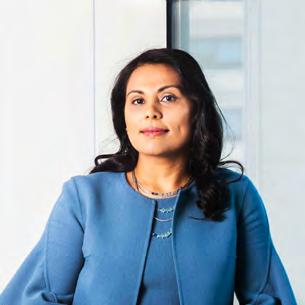
Nahid Bhadelia
Professor (CS); Department Director of the MS in AI Program; Co-Director of Artificial Intelligence Research Initiative
Associate Professor (Chobanian & Avedisian SOM); Founding Director (CEID); Founding Director, BEACON

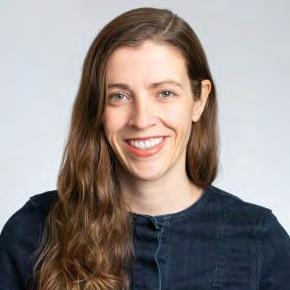
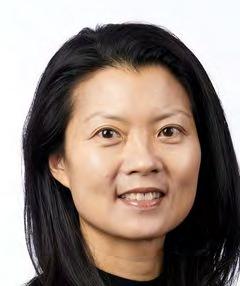
Professor (CS); Co-Director, Center for Reliable Information Systems & Cyber Security

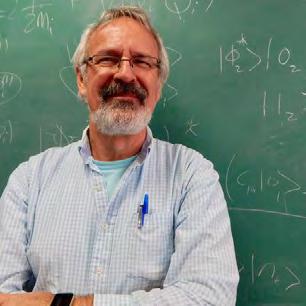
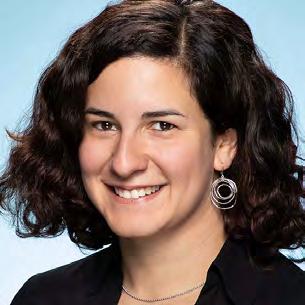
Professor (Mathematics & Statistics); Director of Graduate Admissions
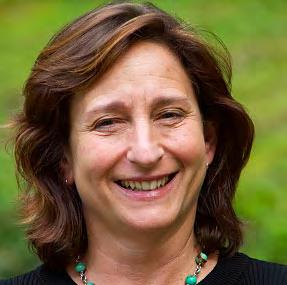
Kim Borman
Executive Director, Boston Women’s Workforce Council
Professor, Computer Science, Engineering, and Computing & Data Sciences; Founding Member and Faculty (CDS)
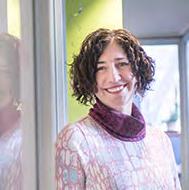
Professor (Chemistry); Director, Center for Computational Science
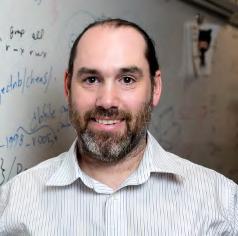
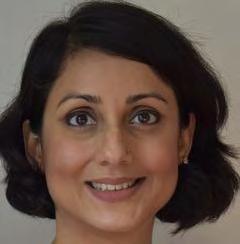
Director, BU SPARK!
Professor (Earth & Environment)
Associate Professor (Sociology)

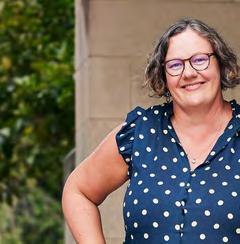
Hutyra
Professor (Media Science)
Chair of and Distinguished Professor (Earth & Environment); Director, BU Biogeosciences Program
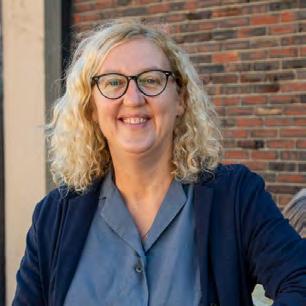
Loretta Lees
Professor (Sociology); Faculty Director of the Initiative on Cities
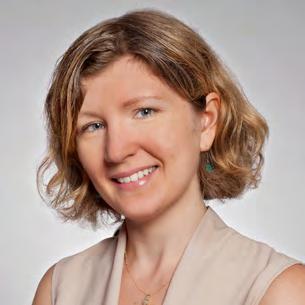
Kate Saenko
Professor (CS); Founder & Co-Director of the Artificial Intelligence Research Initiative; Director of the Computer
Vision Learning Group

Orran Krieger
Professor (ENG); Director of MOC Alliance; Director of Red Hat Research
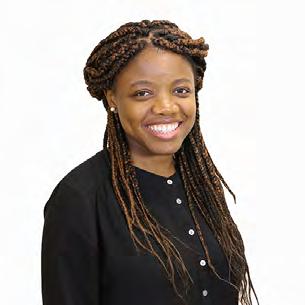
Elaine Nsoesie
Associate Professor (SPH)
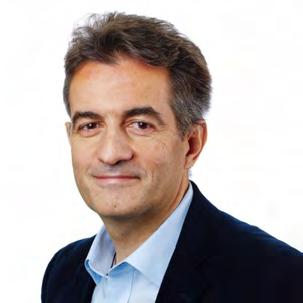
Ioannis (Yannis) Paschalidis
Distinguished Professor (ENG); Director of the Hariri Institute
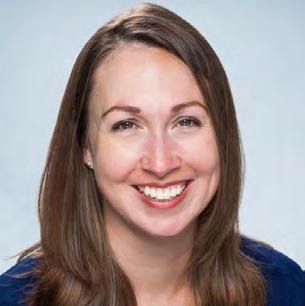
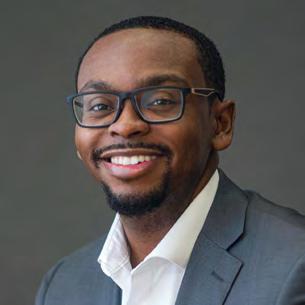

Professor & Program Director (Sargent); Director of the STEPP LAB for Sensorimotor Rehabilitation Engineering BU
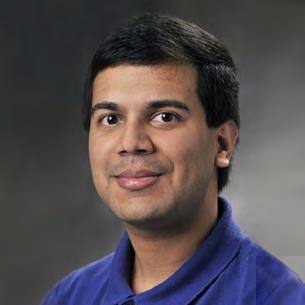
Mayank Varia
Associate Professor (CDS); Co-Director, Center for Reliable Information Systems & Cyber Security (RISCS)
Director, SAIL
Professor (ENG); Co-Director of the Red Hat Collaboratory
Chris Sedore
Vice President of Information Services & Technology and Chief Information Officer
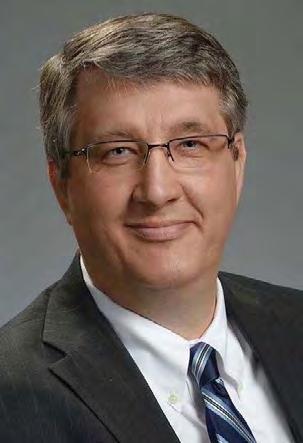

Benjamin Sovacool
Professor (Earth & Environment); Director of the Institute for Global Sustainability
Institute Advisory Board members are appointed by the Director in consultation with the Office of Research for two-year terms to provide feedback and strategic advice to the Director related to the overall mission of the Institute, its positioning within the university, its relationship to various academic units and programs, and its engagements with external organizations. The board reflects a diversity of leadership experiences, spanning academia, industry, government, non‐profits, philanthropy, and alumni.




Institute Advisory Board members are appointed by the Director in consultation with the Office of Research for one-year terms to provide feedback and strategic advice to the Director related the Institute’s pursuit of cutting-edge research opportunities and emerging market trends within industry partners. They guide the Institute’s investments in seeding and initiating new research programs at BU and in supporting the Institute’s various activities and programs that are meant to nurture the BU computing community, broadly conceived. Membership represents senior leadership from a variety of businesses including healthcare, venture capital, cybersecurity, AI, amongst others.
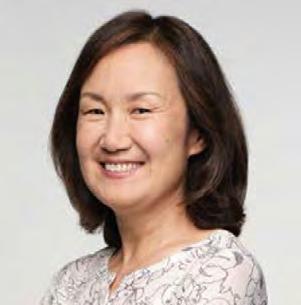

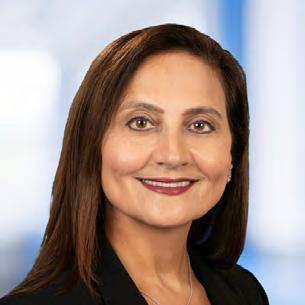
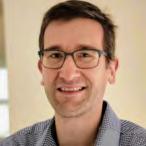



The Hariri Institute has assembled a team of talented and dedicated professionals to help researchers make connections, identify additional support resources, and lift the burden of administrative support, so that more research is accomplished with far fewer barriers.
The Institute’s administrative staff provide program and project management, grant administration, event planning, communications support, and more.

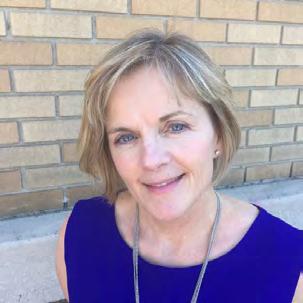
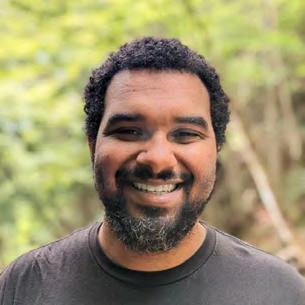
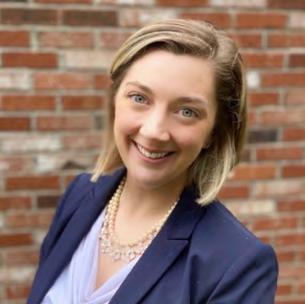
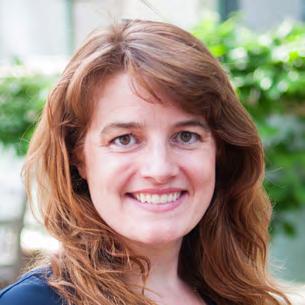
Executive Director
Assistant Director, Programs & Events
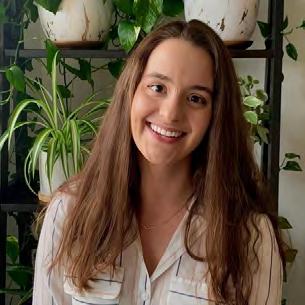
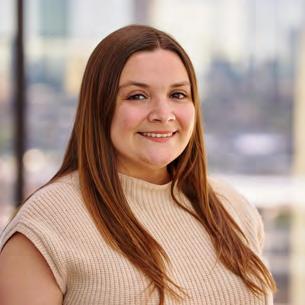
Associate Director, Research Administration
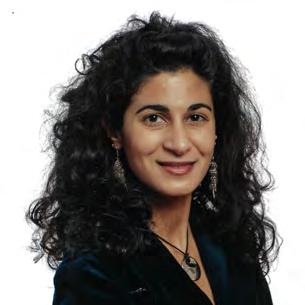
for Information & Systems Engineering

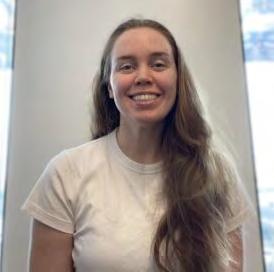
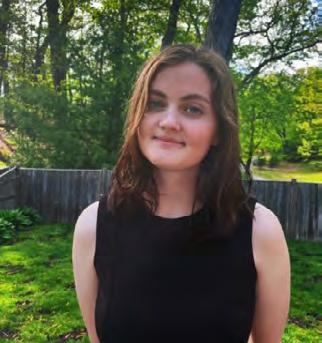
MOC Alliance
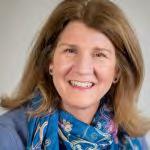
Nancy Clinton
Managing Director

Tara Moran
Senior Administrative Coordinator
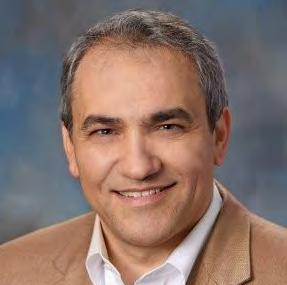
Jon Stumpf
Director of Alliance Management
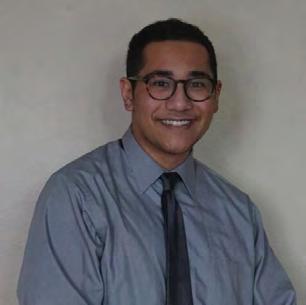
Kenneth Rudolph
Marketing Communications Specialist
Boston Womens’ Workforce Council (BWWC)
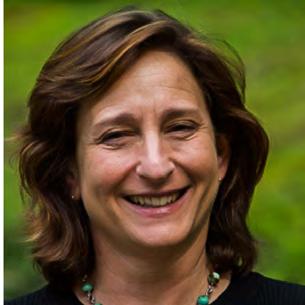
Kim Borman Executive Director
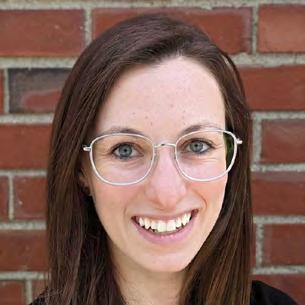
Hannah McKinney Director of Strategic Engagement
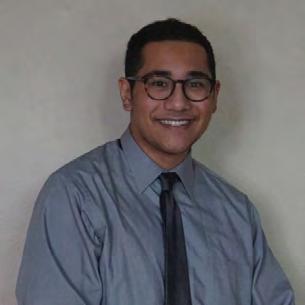
Kenneth Rudolph
Marketing Specialist
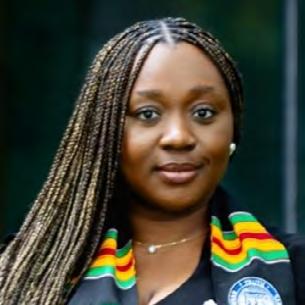
Mima Ofo Administrative Manager
SAIL consists of a small team of professional software architects and developers who are assigned to work directly with faculty members (and their research teams) on specific software and application development projects. Additionally, these professional software engineers supervise a team of BU student interns through the SAIL Internship Program. Professional SAIL staff act as the clearing house for software developed by students, thus allowing the research community to leverage the untapped software development capacity of undergraduate and graduate students at BU, while ensuring project continuity.
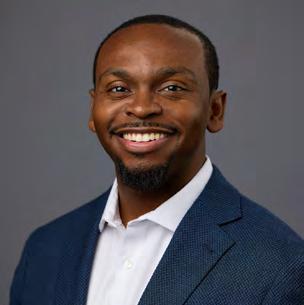
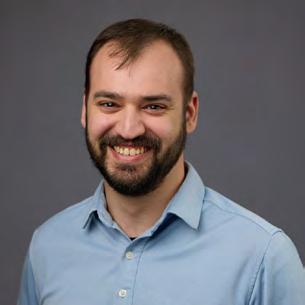
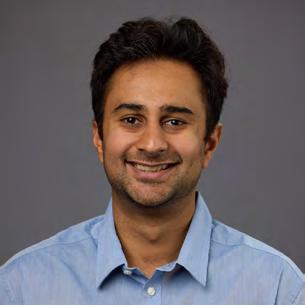

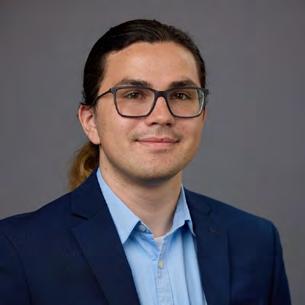


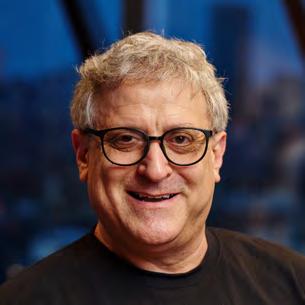
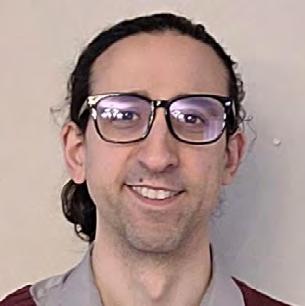

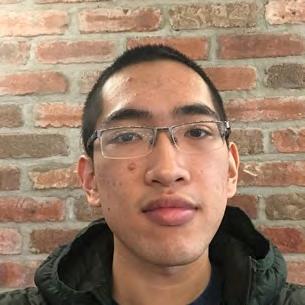
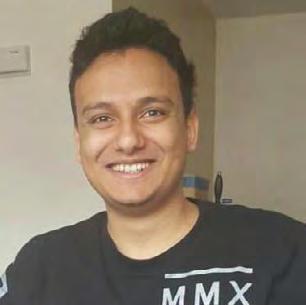
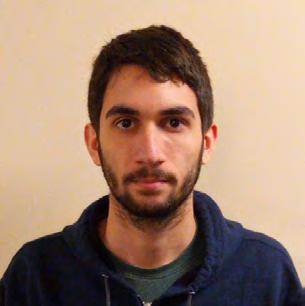
Margrit Betke, Co-Director, AIR; Professor of Computer Science (CAS); Department Director, MS in AI Program; Faculty of Computing & Data Sciences.
Kate Saenko, Founder & Co-Director, AIR; Professor, Computer Science (CAS); Faculty of Computing & Data Sciences.
Iddo Drori, Core Faculty, AIR; Associate Professor of the Practice, Computer Science (CAS).
Deepti Ghadiyaram, Core Faculty, AIR; Assistant Professor, Computer Science (CAS).
Boqing Gong, Core Faculty, AIR; Assistant Professor, Computer Science (CAS); Part-time Research Scientist, Google.
Brian Kulis, Core Faculty, AIR; Associate Professor, Engineering (ECE, SE); Faculty of Computing & Data Sciences.
Bryan Plummer, Core Faculty, AIR; Assistant Professor, Computer Science (CAS).
Venkatesh Saligrama, Core Faculty, AIR; Professor, Engineering (ECE, SE); Faculty of Computing & Data Sciences.
Stan Sclaroff, Core Faculty, AIR; Dean of Arts & Sciences; Professor of Computer Science (CAS).
Derry Wijaya, Core Faculty, AIR; Assistant Professor, Computer Science (CAS).
Naomi Caselli, Director, AI & Education Initiative; Associate Professor, Deaf Education (Wheelock); Director of the BU Deaf Center.
Michael Alan Chang, Core Faculty, AI & Education Initiative; Assistant Professor (Wheelock); Assistant Director, Earl Center for Learning & Innovation
Elena Forzani, Core Faculty, AI & Education Initiative; Director, Literacy Education and Reading Education programs; Assistant Professor (Wheelock).
Jennifer Greif Green, Core Faculty, AI & Education Initiative; Professor, Special Education (Wheelock).
Eshed Ohn-Bar, Core Faculty, AI & Education Initiative; Assistant Professor, Engineering (ECE).
Ola Ozernov-Palchik, Core Faculty, AI & Education Initiative; Research Assistant Professor (Wheelock).
Boston Women’s Workforce Council (BWWC)
Kim Borman, Executive Director, BWWC.
Cathy E. Minehan, Co-Chair, BWWC; Trustee, Museum of Fine Arts, Boston; Trustee, MITRE Corporation; Trustee, Brookings Institution.
Evelyn Murphy, Co-Chair, BWWC; Economist, Founder and President of The WAGE Project, Inc.
for Computational Science
David Coker, Director, Center for Computational Science; Professor, Chemistry (CAS); Faculty of Computing & Data Sciences.
Center for Information & Systems Engineering (CISE) Management Committee
Ayse K. Coskun, Director, CISE; Professor of Engineering (ECE).
John Baillieul, Co-founder and Management Committee Member, CISE); Distinguished Professor of Engineering (ME, SE, ECE).
Michael C. Caramanis, Co-founder and Management Committee Member, CISE; Professor of Engineering (ME, SE).
Christos G. Cassandras, Co-founder and Management Committee Member, CISE; Distinguished Professor of Engineering (ECE); Head of the Division of Systems Engineering.
David Castañón, Co-founder and Management Committee Member, CISE; Professor of Engineering (ECE, SE).
Benjamin Lubin, Management Committee Member, CISE; Clinical Associate Professor, Information Systems (Questrom).
Yannis Paschalidis, Former Director and Management Committee Member, CISE; Distinguished Professor of Engineering (ECE, SE, BME); Faculty of Computing & Data Sciences; Director, Rafik B. Hariri Institute for Computing and Computational Science & Engineering.
Venkatesh Saligrama, Management Committee Member, CISE; Professor of Engineering (ECE, SE); Faculty of Computing & Data Sciences.
Roberto Tron, Management Committee Member, CISE; Associate Professor of Engineering (ME, SE); Robotics and Autonomous Systems Director.
Center for Reliable Information Systems and Cyber Security (RISCS)
Ran Canetti, Co-Director, RISCS; Professor of Computer Science (CAS); Faculty of Computing & Data Sciences
Mayank Varia, Co-Director, RISCS; Associate Professor of Computing and Data Sciences (CDS).
Digital Health Initiative (DHI)
Yannis Paschalidis, Acting Director, DHI; Distinguished Professor of Engineering (ECE, SE, BME); Faculty of Computing & Data Sciences; Director, Rafik B. Hariri Institute for Computing and Computational Science & Engineering.
MOC Alliance
Orran Krieger, Director, MOC Alliance; Professor of Engineering (ECE).
Red Hat Collaboratory
Ari Trachtenberg, Co-Director Red Hat Collaboratory; Professor of Engineering (ECE, SE).
Heidi Dempsey, Co-Director Red Hat Collaboratory; Red Hat US Research Director.
Software & Application Innovation Lab (SAIL)
William Tomlinson, Director, SAIL.
Kayhan Batmanghelich, PhD (2023), Assistant Professor, ENG, Electrical & Computer Engineering
Dillon Brout, PhD (2024), Assistant Professor, CAS, Astronomy
Jacob Brown, PhD (2024), Assistant Professor, CAS, Political Science
James Chapman, PhD (2024), Assistant Professor, ENG,Mechanical Engineering
Huimin Cheng, PhD (2024), Assistant Professor, SPH, Biostatistics
Kimberly Crespo, PhD (2024), Assistant Professor, Sargent, Department of Speech, Language, & Hearing Sciences
Brian DePasquale, PhD (2024), Assistant Professor, ENG, Biomedical Engineering
Huitong Ding, PhD (2025), Research Assistant Professor, Chobanian & Avesdian SOM, Anatomy & Neurobiology
Masao Fukui, PhD (2024), Assistant Professor, CAS, Economics
Hongwan Liu, PhD (2025), Assistant Professor, CAS, Physics
Eshed Ohn-Bar, PhD (2023), Assistant Professor, ENG, Electrical & Computer Engineering
Charlene Ong, MD, MPHS (2024), Assistant Professor, Chobanian & Avesdian SOM, Neurology & Neurosurgery
Bryan Plummer, PhD (2023), Assistant Professor, CAS, Computer Science
Allison Portnoy, ScD (2025), Assistant Professor, SPH, Global Health
Pawel Przytycki, PhD (2025), Assistant Professor, CDS, Computing & Data Sciences
Xiaozhou Ruan, PhD (2023), Assistant Professor, CAS, Earth & Environment
Chris Chao Su, PhD (2023), Assistant Professor, COM, Emerging Media Studies
Preeti Sunderaraman, PhD (2023), Assistant Professor, Chobanian & Avedisian SOM, Neurology
Adriana Tomic, PhD (2023), Assistant Professor, ENG, Biomedical Engineering, and Chobanian & Avedisian SOM, Virology, Immunology & Microbiology
Fatih Acun (2024), PhD Student, ENG, Electrical & Computer Engineering
Tushar Arora (2025), PhD Student, Chobanian & Avedisian SOM, Neuroscience
Courtney Aul (2023), PhD Student, CAS Psychological and Brain Sciences
Sarah Bald (2024), PhD Student, CDS, Bioinformatics
Taylor Beauvais (2024), PhD Student, CAS, Sociology
Zijian Guo (2025), PhD Student, ENG, Systems Engineering
Xinyi Hu (2024), PhD, Student, CDS, Computing & Data Sciences
Masha Lazou (2024), PhD Student, ENG, Biomedical Engineering
Zachary Loschinskey (2025), PhD Student, ENG, Biomedical Engineering
Sarah Milligan (2025), PhD Student, SPH, Biostatistics
Margaret (Greta) Rauch (2023), PhD Student, CAS, History
Edward Ruiz (2023), PhD Student, Chobanian & Avedisian SOM, Medicine, Hematology/Oncology
Ryan Senne (2024), PhD Student, Chobanian & Avedisian SOM, Neuroscience
Yuwen Tan, (2025), PhD Student, CAS, Computer Science
Jack Vincent (2023), PhD Student, ENG, Biomedical Engineering
Connor Wagaman (2023), PhD Student, CAS, Computer Science
Yixin (Amy) Zhang (2023), PhD Student, CAS, Biostatistics
Zeying Zhu (2023), PhD Student, ENG, Electrical & Computer Engineering
Postdocs
Ji Luo, Postdoctoral Associate (Center for Reliable Information Systems and Cyber Security), Boston University
Nobuyuki Matsumoto, Postdoctoral Associate (Center for Computational Science), Boston University
Visiting Scholars
Maryam Aliakbarpour, Visiting Researcher, Michael B. Yuen and Sandra A. Tsai Assistant Professor, Rice University
Joel Daniel Andersson, Visiting Researcher (Center for Reliable Information Systems and Cyber Security), PhD student at University of Copenhagen
Aritra Biswas, Visiting Researcher (Center for Reliable Information Systems and Cyber Security), PhD student at University Of Warwick
Heidi Dempsey, Visiting Researcher, Research and Innovation Director, Red Hat
Peter Desnoyers, Visiting Researcher (MOC Alliance), Associate Professor, Khoury College of Computer Sciences, Northeastern University
Mahdi Haghifam, Visiting Researcher (Center for Reliable Information Systems and Cyber Security), Postdoc at Northeastern University
Lars Kello-Stedman, Visiting Researcher (MOC Alliance), Senior Principal Software Engineer, Red Hat
Sebastian Kolby, Visiting Researcher (Center for Reliable Information Systems and Cyber Security), PhD student at Aarhus University
Abhishek Pratap, Visiting Researcher (Hariri Institute)
Larry Rudolph, Visiting Researcher (MOC Alliance), Principle Research Scientist, Computer Science and Artificial Intelligence Laboratory, MIT
Ata Turk, Visiting Researcher (MOC Alliance), Research Scientist, Red Hat
Larry Woodman, Visiting Researcher (MOC Alliance), Senior Distinguished Engineer, Red Hat
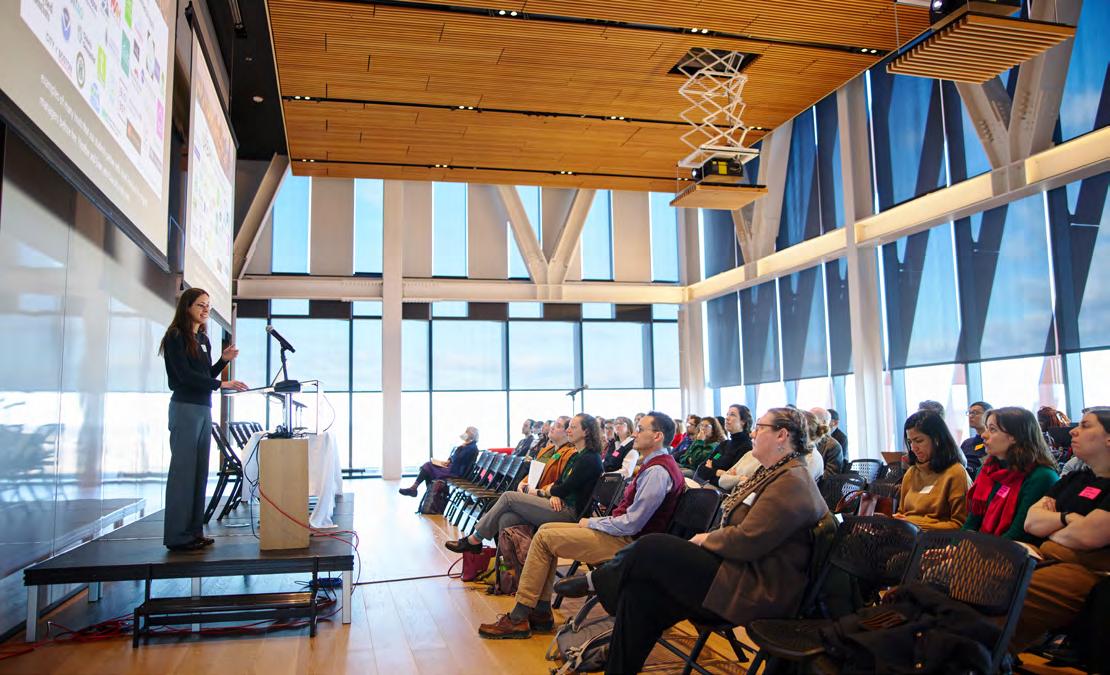
LEADER: Brian Kulis, Associate Professor, Electrical & Computer Engineering, Systems Engineering, ENG
Ayse K. Coskun, Professor, College of Engineering, Department of Electrical & Computer Engineering; Director of the Center for Information & Systems Engineering (CISE)
Rachel Abercrombie, Research Professor, Earth & Environment, CAS
Jonathan Huggins, Assistant Professor, College of Arts & Sciences, Mathematics & Statistics
Prakash Ishwar, Professor, Electrical & Computer Engineering, Systems Engineering, ENG
Janusz Konrad, Professor, Electrical & Computer Engineering, ENG
Pankaj Mehta, Professor, Department of Physics, CAS
LEADER: Chad Farris, Assistant Professor, Radiology, Chobanian & Avedisian SOM
LEADER: Xin Zhang, Distinguished Professor, Mechanical Engineering, Electrical & Computer Engineering, Biomedical Engineering, ENG
Michael Alosco, Associate Professor, Neurobiology, Chobanian & Avedisian SOM
Stephan Anderson, Professor, Radiology, Chobanian & Avedisian SOM
Thor Stein, Associate Professor, Pathology & Laboratory Medicine, Chobanian & Avedisian SOM
Yorghos Tripodis, Professor, Biostatistics, SPH; Director, Data Management & Biostatistics Core (BU ADCTEC)
LEADER: Kayhan Batmanghelich, Assistant Professor, Electrical & Computer Engineering, ENG
LEADER: Clare Poynton, MD, MS, Assistant Professor, Radiology, Chobanian & Avedisian SOM
Kimberly Bertrand, Associate Professor, Chobanian & Avedisian School of Medicine, Department of Preventive Medicine
Amir Emad Ghassami, Assistant Professor, Mathematics & Statistics
Julie Palmer, Karin Grunebaum Cancer Research Professor, Chobanian & Avedisian School of Medicine, Department of Medicine
Priscilla Slanetz, Professor, Radiology, Chobanian & Avedisian SOM
Monica Wang, Associate Professor, School of Public Health, Department of Community Health Sciences
LEADER: Ayse K. Coskun, Professor, College of Engineering, Department of Electrical & Computer Engineering; Director of the Center for Information & Systems Engineering (CISE)
LEADER: Adam Smith, Professor, College of Arts & Sciences, Department of Computer Science & Engineering; Faculty of Computing & Data Sciences
LEADER: Ajay Joshi, Professor, College of Engineering, Department of Electrical & Computer Engineering
Mark Bun, Assistant Professor, Computer Science, CAS
Michael Caramanis, Professor, Mechanical Engineering, ENG
Emiliano Dall’Anese, Associate Professor, Electrical & Computer Engineering, Systems Engineering, ENG
Vasiliki Kalavri, Assistant Professor, Computer Science, CAS
Renato Mancuso, Associate Professor, Computer Science, CAS
Alex Olshevsky, Professor, Electrical & Computer Engineering, Systems Engineering, ENG
Yannis Paschalidis, Distinguished Professor, Electrical & Computer Engineering, Systems Engineering, Biomedical Engineering, ENG; Director, Hariri Institute
Sofya Raskhodnikova, Professor, Computer Science, CAS
Benjamin Sovacool, Professor, Earth & Environment, CAS; Director, IGS
Mayank Varia, Associate Professor, Computing & Data Science, CDS; Co-Director, RISCS \
Rabia Tugce Yazicigil, Associate Professor, Electrical & Computer Engineering, Systems Engineering, ENG
LEADER: Keith A. Brown, Associate Professor, Mechanical Engineering, Materials Science & Engineering, ENG; Associate Professor, Physics, CAS; Associate Chair for Graduate Programs, Mechanical Engineering, ENG
Sean B. Andersson, Department Chair & Professor, Mechanical Engineering, Systems Engineering, ENG
Aaron Beeler, Associate Professor, Chemistry, CAS
William Boley, Assistant Professor, Materials Science & Engineering, Mechanical Engineering, ENG
Douglas Holmes, Professor, Mechanical Engineering, Materials Science & Engineering, ENG
Catherine Klapperich, Professor, Biomedical Engineering, Materials Science & Engineering, Mechanical Engineering, ENG
Emma Lejeune, Assistant Professor, Mechanical Engineering, ENG
Wenchao Li, Associate Professor, Electrical & Computer Engineering, Systems Engineering, ENG
Aaron Beeler, Associate Professor of Medicinal Chemistry, CAS
Elise Morgan, Maysarah K. Sukkar Professor of Engineering Design and Innovation, Mechanical Engineering, Materials Science & Engineering, Biomedical Engineering, ENG; Dean, ENG
Sabrina M. Neuman, Assistant Professor, Computer Science, CAS
Eshed Ohn-Bar, Assistant Professor, Electrical & Computer Engineering, ENG;Affiliate Professor, CS
Harold Park, Professor, Materials Science & Engineering, Mechanical Engineering, ENG
Bryan Plummer, Assistant Professor, Computer Science, CAS
Joerg Werner, Assistant Professor, Materials Science & Engineering, Mechanical Engineering, ENG
Emily Whiting, Associate Professor, Computer Science, CAS; Director, BU Shape Lab & CG Lab
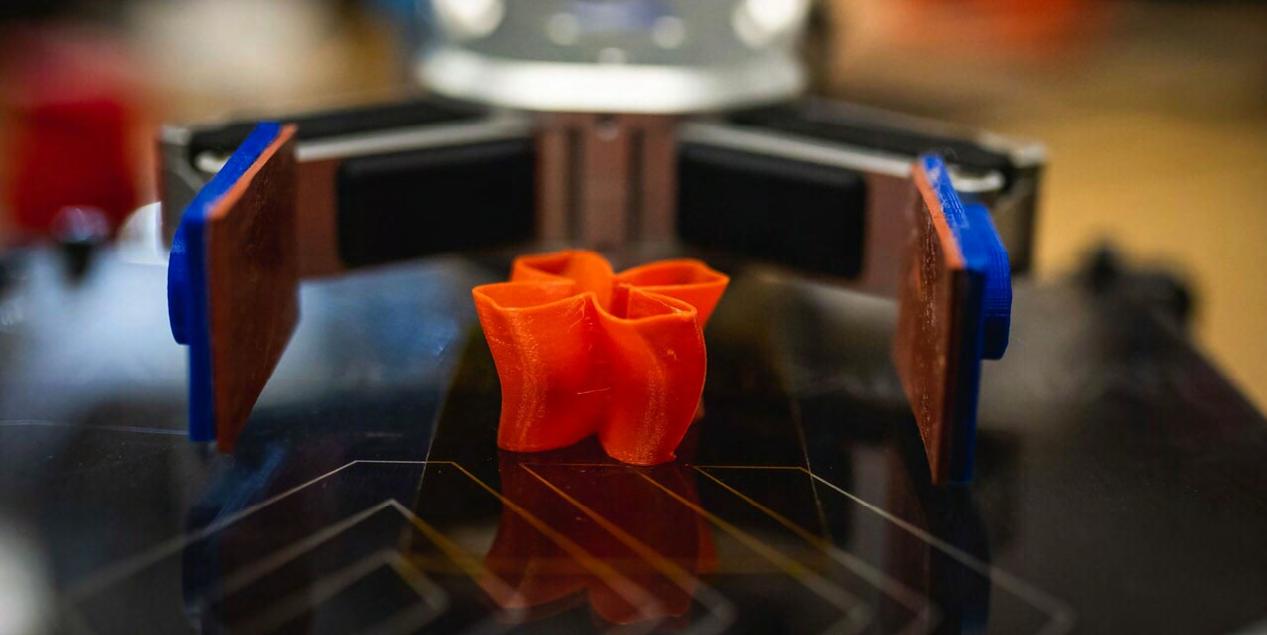
LEADER: Jennifer Beane-Ebel, Associate Professor, Computational Biomedicine, Chobanian & Avedisian SOM
LEADER: Vijaya Kolachalama, Associate Professor of Medicine, Chobanian & Avedisian SOM; Associate Professor of Computer Science, CDS
Kayhan Batmanghelich, Junior Faculty Fellow (2023), Assistant Professor, Electrical & Computer Engineering, ENG
Ehab Billatos, MD, Assistant Professor, Computational Biomedicine, Chobanian & Avedisian SOM
Eric Burks, MD, Associate Professor, Pathology and Laboratory Medicine, BMC
Joshua D. Campbell, Associate Professor, Computational Biomedicine, Chobanian & Avedisian SOM; Co-Director of the Single Cell Sequencing Core
Jerry Chen, Associate Professor of Biology, CAS
Jonathan Cherry, Assistant Professor, Pathology and Laboratory Medicine, Chobanian & Avedisian SOM
Ruben Dries, Assistant Professor, Hematology and Medical Oncology, Chobanian & Avedisian SOM
Marc Lenburg, Professor, Computational Biomedicine, Bioinformatics Program, Pathology, Pulmonary Center, Chobanian & Avedisian SOM; Co-Director, Microarray Resource
Sarah Mazzilli, Assistant Professor, Computational Biomedicine, Chobanian & Avedisian SOM
Jesse Mez, MD, MS, Associate Professor, Neurology, Chobanian & Avedisian SOM; Co-Leader, Framingham Heart Study Brain Aging Program Clinical Core; Co-Director, Clinical Research, BU CTE Center; Associate Director, BU ADRC
Pawel Przytycki, Junior Faculty Fellow (2025), Assistant Professor, Computing and Data Sciences, CDS
Lei Tian, Associate Professor, Electrical & Computer Engineering, Biomedical Engineering, ENG
LEADER: Charlene J. Ong, MD, MPHS, Assistant Professor, Neurology & Neurosurgery, Chobanian & Avedisian SOM; Neurointensivist, BMC
LEADER: Yannis Paschalidis, Distinguished Professor, Electrical & Computer Engineering, Systems Engineering, Biomedical Engineering, ENG; Director, Hariri Institute for Computing
LEADER: Nicholas Cordella, MD, Assistant Professor, Internal Medicine, Chobanian & Avedisian SOM; Medical Director for Quality and Patient Safety, BMC
Nicholas Bosch, MD, MSc, Assistant Professor, Pulmonary, Allergy, Sleep & Critical Care Medicine, Chobanian & Avedisian SOM; Pulmonologist/ Intensivist, BMC
Benjamin Brush, MD, Neurocritical Care Specialist, NYU Langone Health; Clinical Assistant Professor, Neurology and Neurosurgery, NYU Grossman School of Medicine
Huimin Cheng, Junior Faculty Fellow (2024), Assistant Professor, Biostatistics, SPH
Rebecca Mishuris, MD, MPH, MS, Chief Medical Information Officer and Vice President, Digital, Mass General Brigham
Stelios Smirnakis, MD, Associate Neurologist, Brigham and Women’s Hospital; Associate Professor, Neurology, Harvard Medical School
LEADER: Michael Dietze, Professor and Director of Undergraduate Studies, Earth & Environment, CAS
LEADER: Jonathan Huggins, Assistant Professor, Mathematics & Statistics, CAS
Yves Atchadé, Professor, Mathematics & Statistics, CAS
Elizabeth Barnes, Professor, Department of Atmospheric Science, Colorado State University
Jennifer Bhatnagar, Associate Professor, Biology, CAS; Director, Biogeoscience Program
Roel Boumans, Visiting Research Fellow; Ecological Economist; Sole Proprietor, AFORDable Futures
Peter Buston, Associate Professor, Biology, CAS; Associate Dean, Faculty for the Natural Sciences; Director, BU Marine Program
Luis Carvalho, Associate Professor, Mathematics & Statistics, CAS; Director, MSSP
Julio Castrillon, Research Assistant Professor, Mathematics & Statistics, CAS Boqing Gong, Assistant Professor, Computer Science, CAS
Mark Crovella, Professor, Computer Science, CAS; Professor and Chair of Academic Affairs (CDS); Duan Family Fellow
Sarah Davies, Associate Professor, Biology, CAS
Ethan Deyle, Research Assistant Professor, Biology, CAS
Cedric Fichot, Associate Professor, Earth & Environment, CAS
Robinson W. (“Wally”) Fulweiler, Professor, Earth & Environment, Biology, CAS
Thomas Gardos, Associate Professor of the Practice of Computing & Data Sciences, CDS; Director, MS in Data Science Program
Deepti Ghadiyaram, Assistant Professor, Computer Science, CAS
Boqing Gong, Assistant Professor, Computer Science, CAS
Sucharita Gopal, Professor, Earth & Environment, CAS
David Hamer, MD, Professor, Global Health, SPH; Professor of Medicine, Chobanian & Avedisian SOM; Adjunct Professor, Nutrition, Tufts University Friedman School of Nutrition Science and Policy
Lucy Hutyra, Distinguished Professor and Chair, Earth & Environment, CAS
Les Kaufman, Professor, Biology, CAS
Patrick (Pat) Keys, System Professor, Earth & Environment, CAS
Mark Kon, Professor, Mathematics & Statistics, CAS
Jessica Leibler, DrPH, ScM, Associate Professor, Environmental Health, SPH
Debarghya Mukherjee, Assistant Professor, Mathematics & Statistics, CAS
Pawel Przytycki, Junior Faculty Fellow (2025), Assistant Professor, Computing and Data Sciences, CDS
Daniel Segrè, Professor of Biology, and of Computing and Data Science
Kayoko Shioda, Assistant Professor, Global Health, SPH
Pamela Templer, Distinguished Professor and Chair, Biology, CAS
Gregory Wellenius, ScD, Professor, Environmental Health, SPH; Director, Center for Climate and Health
Langdon White, Clinical Assistant Professor, CDS; Technical Director, BU Spark!
Xuezhou Zhang, Assistant Professor of Computing & Data Sciences, CDS
Rachel Abercrombie, Research Professor, College of Arts & Sciences, Earth & Environment
William Adams, Professor, Chobanian & Avedisian School of Medicine, Department of Pediatrics; Director, Clinical & Translational Science Institute; Director, Child Health Informatics
Karen Allen, Professor & Department Chair, College of Arts & Sciences, Department of Chemistry, College of Engineering, Division of Materials Sciences and Engineering
Michael Alosco, Research Vice Chair & Associate Professor of Neurology, Chobanian & Avedisian School of Medicine, Department of Medicine
Marshall Van Alstyne, Allen & Kelli Questrom Chair of IS at Boston University, Professor of IS Systems; Faculty of Computing & Data Sciences; Professor, Questrom School of Business, Department of Management
Michelle Amazeen, Associate Dean of Research, Associate Professor of Mass Communication, Director of the Communication Research Center, College of Communication.
Stephan Anderson, Professor, Chobanian & Avedisian School of Medicine, Department of Medicine, Radiology
Sean B. Andersson, Professor, College of Engineering, Department of Mechanical Engineering, Division of Systems Engineering; Department Chair, Department of Mechanical Engineering
Jonathan Appavoo, Associate Professor, College of Arts & Sciences, Department of Computer Science
Manos Athanassoulis, Associate Professor, College of Arts & Sciences, Department of Computer Science
Rhoda Au, Professor, Anatomy, Neurobiology (Chobanian & Avedisian SOM) and Epidemiology (SPH); Director, Neuropsychology; Framingham Heart Study (FHS); Director, Global Cohort Development, Davos Alzheimer’s Collaborative
Lou Awad, Associate Professor, Sargent College of Health & Rehabilitation Sciences, Department of Physical Therapy, College of Engineering, Department of Mechanical Engineering
Andrew Bacher-Hicks, Assistant Professor, Wheelock College of Education & Human Development, Department of Educational Leadership & Policy Studies
John Baillieul, Distinguished Professor of Engineering, College of Engineering, Departments of Mechanical Engineering, Electrical & Computer Engineering, Division of Systems Engineering; CISE Co-founder and Management Committee Member.
Jennifer Balakrishnan, Professor, College of Arts & Sciences, Department of Mathematics & Statistics, Director of Graduate Admissions
Sarah Bargal, Research Assistant Professor, College of Arts & Sciences, Department of Computer Science
Juan Fuxman Bass, Associate Professor, College of Arts & Sciences, Department of Biology
Soumendra Basu, Professor, College of Engineering, Department of Mechanical Engineering, Division of Materials Science & Engineering; Associate Division Head, Materials Science & Engineering
Kayhan Batmanghelich, Assistant Professor, College of Engineering, Department of Electrical & Computer Engineering
Marianne Baxter, Professor, College of Arts & Sciences, Department of Economics
Orkun Baycik, Clinical Associate Professor, Questrom School of Business, Department of Markets, Policy, & Law
Samuel Bazzi, Assistant Professor, College of Arts & Sciences, Department of Economics; Core Faculty, HCI, Global Development Policy Center
Jennifer Beane-Ebel, Associate Professor, Chobanian & Avedisian School of Medicine, Department of Medicine, College of Engineering, Department of Mechanical Engineering
Alexander Becker, Assistant Professor, College of Engineering, Department of Mechanical Engineering, Metropolitan College, Department of Finance
Aaron Beeler, Associate Professor, College of Arts & Sciences, Department of Chemistry
Enrico Bellotti, Professor, College of Engineering, Department of Electrical & Computer Engineering, Division of Material Sciences & Engineering
Calin Belta, Research Professor of Mechanical Engineering, Electrical & Computer Engineering, and Systems Engineering
Gerdus Benade, Assistant Professor, Questrom School of Business, Department of Information Systems
Gregory Benoit, Senior Lecturer, Wheelock College of Education & Human Development, Department of Mathematics Education; Assistant Director, Earl Center for Learning & Innovation
Gary Benson, Associate Professor, College of Arts & Sciences, Departments of Biology, Computer Science
Kimberly Bertrand, Associate Professor, Chobanian & Avedisian School of Medicine, Department of Preventive Medicine
Azer Bestavros, William Fairfield Warren Distinguished Professorship; Professor, Department of Computer Science; Associate Provost, Faculty of Computing & Data Sciences
Margrit Betke, Professor, College of Arts & Sciences, Department of Computer Science; Department Director of the MS in AI Program; Co-Director of Artificial Intelligence Research Initiative; Faculty of Computing & Data Sciences
Nahid Bhadelia, Founding Director, Center on Emerging Infectious Diseases (CEID); Founding Director, Biothreats Emergence, Analysis and Communications Network (BEACON); Associate Professor, Infectious Diseases, Chobanian & Avedisian School of Medicine; Adjunct Associate Professor, Global Health Security, Frederick S. Pardee School of Global Studies
Jennifer Bhatnagar, Associate Professor, College of Arts & Sciences, Department of Biology
David Bishop, Professor, College of Engineering, Departments of Electrical & Computer Engineering, Mechanical Engineering, Biomedical Engineering, College of Arts & Sciences, Department of Physics; Head, Division of Materials Science & Engineering; Director, CELL-MET Engineering Research Center
Peter Blake, Associate Professor, College of Arts & Sciences, Department of Psychological & Brain Sciences
David Boas, Distinguished Professor, College of Engineering, Departments of Mechanical Engineering, Electrical & Computer Engineering; Director, Neurophotonics Center
Taylor Boas, Professor, College of Arts & Sciences, Department of Political Science, Department Chair
William Boley, Assistant Professor, College of Engineering, Department of Mechanical Engineering, Division of Materials Science & Engineering
Collin Bolles, Software Engineer, Software & Application Innovation Lab
Jacob Bor, Associate Professor, School of Public Health, Department of Global Health
Belinda Borrelli, Professor, School of Dental Medicine, Department of Health Policy & Health Services Research; Director, Center for Behavioral Sciences Research
Tereasa Brainerd, Professor, College of Arts & Sciences, Department of Astronomy
Ksenia Bravaya, Associate Professor, College of Arts & Sciences, Department of Chemistry
Dillon Brout, Assistant Professor, College of Arts & Sciences, Department of Astronomy
Richard Brower, Professor, College of Engineering, Department of Electrical & Computer Engineering
Jacob Brown, Assistant Professor, College of Arts & Sciences, Department of Political Science
Keith Brown, Associate Professor, College of Engineering, Department of Mechanical Engineering, Division of Materials Science & Engineering, Associate Chair for Graduate Programs, Department of Mechanical Engineering
Timothy Brown, Professor, College of Arts & Sciences, Department of Psychological & Brain Sciences; Director of Research & Research Administration, Center for Anxiety & Related Disorders
Andrew Budson, Professor, Chobanian & Avedisian School of Medicine, Department of Neurology; Associate Director and Outreach, Recruitment, and Engagement Core Leader, Boston University Alzheimer’s Disease Research Center; Lecturer, Department of Neurology, Harvard Medical School; Chief of Cognitive & Behavioral Neurology, Associate Chief of Staff for Education and Director, Translational Cognitive Neuroscience, Veterans Affairs Boston Healthcare System;
Mark Bun, Assistant Professor, College of Arts & Sciences, Department of Computer Science
Jonathan Buonocore, Assistant Professor, School of Public Health, Department of Environmental Health
John Byers, Professor, College of Arts & Sciences, Department of Computer Science; Faculty of Computing and Data Sciences
Thomas Byrne, Associate Professor & Charles River Campus Advisor, School of Social Work, Department of Social Welfare Policy
Catherine Caldwell-Harris, Associate Professor, College of Arts & Sciences, Department of Psychology
David Campbell, Professor, College of Arts & Sciences, Department of Physics, College of Engineering, Department of Electrical & Computer Engineering, Division of Materials Science & Engineering
Joshua Campbell, Associate Professor, Chobanian & Avedisian School of Medicine, Department of Computational Biomedicine
Ran Canetti, Professor, College of Arts & Sciences, Department of Computer Science; Co-director, Center for Reliable Information System and Cyber Security; Faculty of Computing & Data Sciences
Michael Caramanis, Professor, College of Engineering, Department of Mechanical Engineering, Division of Systems Engineering; CISE Co-founder and Management Committee Member.
Paul Carlile, Professor, Questrom School of Business, Department of Information Systems; Senior Associate Dean, Online Learning
Anita L. Carson, Larz Anderson Professor in Operations & Technology Management, Questrom School of Business
Luis Carvalho, Associate Professor, College of Arts & Sciences, Department of Mathematics & Statistics; Director, MS in Statistical Practice
Michael Alan Chang, Assistant Professor, Wheelock College of Education & Human Development; Assistant director at the Earl Center for Learning & Innovation; Core Faculty, AI and Education Initiative
Naomi Caselli, Associate Professor, Wheelock College of Education & Human Development Department of Deaf Education; Director of the BU Deaf Center; Director of the AI & Education Initiative
Christos Cassandras, Distinguished Professor, College of Engineering, Department of Electrical & Computer Engineering; Head, Division of Systems Engineering; CISE Co-founder and Management Committee Member.
David Castañón, Professor, College of Engineering, Department of Electrical & Computer Engineering, Division of Systems Engineering; ; CISE Co-founder and Management Committee Member.
Claudio Chamon, Professor, College of Arts & Sciences, Department of Physics, College of Engineering, Division of Materials Science & Engineering
Anushya Chandran, Associate Professor, College of Arts & Sciences, Department of Physics
James Chapman, Assistant Professor, College of Engineering, Department of Mechanical Engineering
Tanima Chatterjee, Clinical Assistant Professor of Computing & Data Sciences, Faculty of Computing & Data Sciences; Director of Undergraduate Studies
Christine Cheng, Adjunct Assistant Professor, College of Arts & Sciences, Department of Biology
Debbie Cheng, Professor, School of Public Health, Department of Biostatistics; Assistant Dean of Data Science; Executive Director of the Center for Health Data Science
Huimin Cheng, Assistant Professor, School of Public Health, Department of Biostatistics
Olivia Chi, Assistant Professor, Wheelock College of Education & Human Development, Educational Leadership & Policy Studies
Vipul Chitalia, Professor, Chobanian & Avedisian School of Medicine, Department of Medicine
Lou Chitkushev, Senior Associate Dean for Academic Affairs, Associate Professor, Metropolitan College, Department of Computer Science; Director, Health Informatics & Health Sciences
Brian Cleary, Assistant Professor, Computing and Data Sciences, Biomedical Engineering, Biology, Faculty of Computing & Data Sciences
David Coker, Professor, College of Arts & Sciences, Department of Chemistry, College of Engineering, Division of Materials Science & Engineering; Faculty of Computing & Data Sciences, Director, Center for Computational Science
John Connor, Professor, Chobanian & Avedisian School of Medicine, Department of Virology, Immunology, & Microbiology
Elizabeth Coppock, Associate Professor, College of Arts & Sciences, Department of Linguistics
Ronald Corley, Emeritus Professor, Chobanian & Avedisian School of Medicine, Department of Virology, Immunology, & Microbiology
Canan Gunes Corlu, Associate Professor, Metropolitan College, Department of Administrative Sciences; Coordinator, Supply Chain Management; Codirector, Decision Sciences Research Laboratory BU
Patricia Cortes, Dean’s Research Scholar, Professor of Markets, Public Policy & Law, Questrom School of Business.
Ayse K. Coskun, Professor, College of Engineering, Department of Electrical & Computer Engineering; Director of the Center for Information & Systems Engineering (CISE).
Christine Crawford, Assistant Professor, Vice Chair of Education, Director of Medical Student Education, Chobanian & Avedisian School of Medicine, Department of Psychiatry
Felicity Crawford, Clinical Associate Professor, Wheelock College of Education & Human Development, Department of Special Education; Program Director, Education for Equity & Social Justice
Kimberly Crespo, Assistant Professor, Sargent College of Health & Rehabilitation Sciences, Department of Speech, Language, and Hearing Sciences
Alice Cronin-Golomb, Professor, College of Arts & Sciences, Department of Psychology & Brain Sciences, Director of Graduate Studies, Director of Vision & Cognition Laboratory
Nicholas Crossland, Assistant Professor, Chobanian & Avedisian School of Medicine Department of Pathology & Laboratory Medicine
Mark Crovella, Professor, College of Arts & Sciences, Department of Computer Science; Professor & Chair of Academic Affairs; Faculty of Computing & Data Sciences
Qiang Cui, Professor, College of Arts & Sciences, Department of Chemistry
James Cummings, Associate Professor, College of Communication, Department of Emerging Media Studies
Ashok Cutkosky, Assistant Professor, College of Engineering, Department of Electrical & Computer Engineering, Division of Systems Engineering; Faculty of Computing & Data Sciences
Julie Dahlstrom, Clinical Associate Professor, School of Law, Department of Law; Associate Dean, Experiential Education
Emiliano Dall’Anese, Associate Professor, College of Engineering, Department of Biomedical Engineering, Division of Systems Engineering; Associate Division Head, Systems Engineering
Nermeen Dashoush, Clinical Associate Professor, Wheelock College of Education & Human Development, Department of Early Childhood Education
Joanna Davidson, Associate Professor, College of Arts & Sciences, Department of Anthropology; Associate Director, Kilachand Honors College
Heidi Dempsey, Director, Red Hat Collaboratory
Gerald Denis, Shipley Prostate Cancer Research Professor, Chobanian & Avedisian School of Medicine, Department of Medicine
Douglas Densmore, Professor, College of Engineering, Departments of Electrical & Computer Engineering, Biomedical Engineering, Division of Materials Science & Engineering
Brian DePasquale, Assistant Professor, College of Engineering, Department of Biomedical Engineering
Anita DeStefano, Professor, School of Public Health, Department of Biostatistics
Anand Devaiah, Professor, Chobanian & Avedisian School of Medicine, Department of Otolaryngology
Leslie Dietiker, Research Associate Professor, Wheelock College of Education & Human Development Department of Mathematics Education; Associate Dean
Michael Dietze, Professor, College of Arts & Sciences, Department of Earth & Environment; Director of Undergraduate Studies
Christina Dobbs, Associate Professor, Wheelock College of Education & Human Development, Department of English Education; Program Director, English Education for Equity & Justice Program
Linda Doerrer, Professor, College of Arts & Sciences, Department of Chemistry, College of Engineering, Division of Materials Science & Engineering; Associate Director, Kilachand Honors College
Stacey Dogan, Professor, School of Law, Department of Law; Faculty of Computing & Data Sciences
Chuanfei Dong, Assistant Professor, College of Arts & Sciences, Department of Astronomy
Iddo Drori, Associate Professor of the Practice, College of Arts & Sciences, Department of Computer Science
Chuanhua Duan, Assistant Professor, College of Engineering, Department of Mechanical Engineering, Division of Materials Science & Engineering
Mary Dunlop, Professor and Vice Chair, College of Engineering, Department of Biomedical Engineering
Tugba Efendigil, Clinical Assistant Professor, Questrom School of Business, Department of Operations and Technology Management
Manuel Egele, Associate Professor and Associate Chair of Doctoral Programs, College of Engineering, Department of Electrical & Computer Engineering
Katherine Einstein, Associate Professor, College of Arts & Sciences, Department of Political Science, Director of Undergraduate Studies
Theresa Ellis, Professor & Chair, Sargent College of Health & Rehabilitation Sciences, Department of Physical Therapy; Director, Center for Neurorehabilitation
Andrew Emili, Adjunct Professor, College of Arts & Sciences, Department of Biology & Department of Biochemistry
Alina Ene, Associate Professor & Associate Chair of Academics, College of Arts & Sciences, Department of Computer Science
Catherine Espaillat, Director of Undergraduate Studies, Associate Professor, College of Arts & Sciences, Department of Astronomy; Director, Institute for Astrophysical Research BU
Mike Esterman, Associate Professor, Chobanian & Avedisian School of Medicine, Department of Psychiatry; Associate Director, VA Boston Neuroimaging Center.
Stephanie Ettinger de Cuba, Research Associate Professor, School of Public Health, Department of Health, Law, Policy, & Management
M. Patricia Fabian, Associate Professor, School of Public Health, Department of Environmental Health; Associate Director at the Institute for Global Sustainability
Sergio Fagherazzi, Professor, College of Arts & Sciences, Earth & Environment
Lindsay Farrer, Distinguished Professor, Chobanian & Avedisian School of Medicine, Department of Medicine
Chad Farris, Assistant Professor, Chobanian & Avedisian School of Medicine, Department of Medicine, Radiology
James Feigenbaum, Assistant Professor, College of Arts & Sciences, Department of Economics
Marianna Felici, Research Scientist, College of Arts & Sciences, Center for Space Physics
Ivan Fernandez-Val, Professor, Associate Chair, College of Arts & Sciences, Department of Economics; Faculty of Computing & Data Sciences
Ana Fiszbein, Assistant Professor, College of Arts & Sciences, Department of Biology; Faculty of Computing & Data Sciences
Martin Fiszbein, Associate Professor, College of Arts & Sciences, Department of Economics
Andrew Fitzpatrick, Associate Professor, College of Arts & Sciences, Department of Physics
Juliet Floyd, Borden Parker Bowne Professor, College of Arts & Sciences, Department of Philosophy; Director, Center for the Humanities
Elena Forzani, Assistant Professor and Program Director, Wheelock College of Education & Human Development, Department of Literacy Education and Reading Education; Core Faculty, AI and Education Initiative
Andrey Fradkin, Dean’s Research Scholar, Associate Professor, Questrom School of Business, Department of Marketing
Greg Frasco, Associate Director of Engineering, Software & Application Innovation Lab
Sarah Frederick, Director of Undergraduate Studies, Associate Professor, College of Arts & Sciences, Department of World Languages & Literatures
Mark Friedl, William Goodwin Aurelio Professor of Mathematics & Statistics, Professor, College of Arts & Sciences, Earth & Environment; Director, Center for Remote Sensing
Masao Fukui, Assistant Professor, College of Arts & Sciences, Department of Economics
Daniel Fulford, Associate Professor, Sargent College of Health & Rehabilitation Sciences, Department of Occupational Therapy
Marco Gaboardi, Director of Graduate Studies, Associate Professor, College of Arts & Sciences, Department of Computer Science
Peter Gacs, Professor Emeritus, College of Arts & Sciences, Department of Computer Science
Kevin Gallagher, Professor, Frederick S. Pardee School of Global Studies, Department of Global Development Policy; Director, Global Development Policy Center
Emma Gause, Research Scientist, School of Public Health, Department of Environmental Health
Michael Gevelber, Associate Professor, College of Engineering, Department of Mechanical Engineering, Divisions of Materials Science & Engineering, Systems Engineering
Amir Ghassami, Assistant Professor, College of Arts & Sciences, Department of Mathematics & Statistics
Deepti Ghadiyaram, Assistant Professor, College of Arts & Sciences, Department of of Computer Science; Core Faculty, AIR.
Roscoe Giles, Professor, College of Engineering, Department of Electrical & Computer Engineering; Faculty of Computing & Data Sciences
Simone Gill, Associate Professor, Sargent College of Health & Rehabilitation Sciences, Department of Occupational Therapy
Wayne Gilmore, Executive Director, Research Computing, Information Services & Technology
Sharon Goldberg, Associate Professor, College of Arts & Sciences, Department of Computer Science
Kira Goldner, Assistant Professor, College of Arts & Sciences, Department of Computer Science; Faculty of Computing & Data Sciences
Neha Gondal, Associate Professor, College of Arts & Sciences, Department of Sociology; Faculty of Computing & Data Sciences
Joshua Goodman, Associate Professor, Wheelock College of Education & Human Development, Department of Educational Leadership & Policy Studies; Program Director, MA in Educational Policy Studies
Boqing Gong, Assistant Professor, College of Arts & Sciences, Department of Computer Science; parttime research scientist at Google; Core Faculty, AIR.
Vivek Goyal, Professor & Associate Chair of Doctoral Programs, College of Engineering, Department of Electrical & Computer Engineering
Sheryl Grace, Associate Professor, College of Engineering, Department of Mechanical Engineering
Jennifer Greif Green, Professor, Wheelock College of Education & Human Development, Department of Special Education, Core Faculty, AI and Education Initiative.
Jonathan Greenacre, Assistant Professor, Frederick S. Pardee School of Global Studies, Department of Global Development Policy
Jacob Groshek, Associate Professor, College of Communication, Emerging Media Studies
Stephen Grossberg, Wang Professor of Cognitive and Neural Systems; Professor Emeritus, College of Engineering, Departments of Mathematics & Statistics, Psychological & Brain Sciences
Bin Gu, Everett W. Lord Distinguished Faculty Scholar; Professor & Department Chair, Questrom School of Business Department of Information Systems
Lei Guo, Associate Professor, College of Communication, Department of Emerging Media Studies
Adam Guren, Associate Professor, College of Arts & Sciences, Department of Economics
Olga Gursky, Professor, Chobanian & Avedisian School of Medicine, Department of Pharmacology, Physiology, & Biophysics
Leyla Han, Assistant Professor, Questrom School of Business, Department of Finance
Martin Herbordt, Professor, College of Engineering, Department of Electrical & Computer Engineering
Scott Hirst, Professor of Law, School of Law
Douglas Holmes, Professor, College of Engineering, Department of Mechanical Engineering, Division of Materials Science & Engineering
Steve Homer, Professor, College of Arts & Sciences, Department of Computer Science
Traci Hong, Professor, College of Communication, Department of Mass Communication, Advertising, & Public Relations
Marc Howard, Professor, College of Arts & Sciences, Psychology & Brain Sciences; Program Director, Brain, Behavior, and Cognition; Director, Theoretical Cognitive Neuroscience Lab
Jonathan Huggins, Assistant Professor, College of Arts & Sciences, Mathematics & Statistics
Lucy Hutyra, Chair of and Distinguished Professor, College of Arts & Sciences, Earth & Environment; Director of the BU Biogeosciences Program; Faculty of Computing & Data Sciences
Daryl Ireland, Research Associate Professor, School of Theology, Department of Mission; Associate Director, Center for Global Christianity & MIssion
Samuel Isaacson, Professor, College of Arts & Sciences, Department of Mathematics & Statistics
Prakash Ishwar, Professor, College of Engineering, Department of Electrical & Computer Engineering, Division of Systems Engineering
Jonathan Jay, Associate Professor, School of Public Health, Department of Community Health Sciences
Malika Jeffries-El, Associate Professor, College of Arts & Sciences, Department of Chemistry; Associate Dean, Graduate School of Arts & Sciences
Helen Jenkins, Associate Professor, School of Public Health, Department of Biostatistics; Co-Director of the Summer Institute of Biostatistics and Data Science
Jihye Jeon, Assistant Professor, College of Arts & Sciences, Department of Economics
Marcia Pescador Jimenez, Associate Professor, School of Public Health, Department of Epidemiology
Evan Johnson, Associate Professor, Chobanian & Avedisian School of Medicine, Department of Medicine
Garrett Johnson, Dean’s Research Scholar, Associate Professor, Questrom School of Business, Department of Marketing
Nathan Jones, Associate Professor, Wheelock College of Education & Human Development Department of Special Education; Faculty of Computing & Data Sciences
Diane Joseph-McCarthy, Professor of the Practice, College of Engineering, Department of Biomedical Engineering; Executive Director, Bioengineering Technology & Entrepreneurship Center
Ajay Joshi, Professor, College of Engineering, Department of Electrical & Computer Engineering
Suresh Kalathur, Assistant Professor, Metropolitan College, Department of Computer Science; Director, Analytics
Vasia Kalavri, Assistant Professor, College of Arts & Sciences, Department of Computer Science
Bindu Kalesan, Assistant Professor, Chobanian & Avedisian School of Medicine, Department of Medicine
Maria “Masha” Kamenetska, Associate Professor, College of Arts & Sciences, Departments of Chemistry, Physics; Professor, College of Engineering, Division of Materials Science & Engineering
Vijay Kanabar, Associate Professor, Metropolitan College, Department of Computer Science and Administrative Sciences
Gabriel Kaptchuk, Research Assistant Professor, College of Arts & Sciences, Department of Computer Science
W. Clem Karl, Professor & Department Chair, College of Engineering, Department of Electrical & Computer Engineering
Mark G. Karpovsky, Professor Emeritus, College of Engineering, Department of Electrical & Computer Engineering
Mahesh Karra, Associate Professor, Frederick S. Pardee School of Global Studies, Department of Global Development Policy
Simon Kasif, Professor, College of Engineering, Department of Biomedical Engineering
James Katz, Feld Professor, College of Communication, Department of Emerging Media Studies
Lewis Kazis, Emeritus Professor, School of Public Health, Department of Health Law, Policy & Management; Director, Center for the Assessment of Pharmaceutical Practices
Thomas Kepler, Emeritus Professor, Chobanian & Avedisian School of Medicine, Department of Virology, Immunology, & Microbiology
Gerald Keusch, Emeritus Professor, Chobanian & Avedisian School of Medicine, Department of Medicine
Thomas Keyes, Professor Emeritus, College of Arts & Sciences, Department of Chemistry
Assaf Kfoury, Professor, College of Arts & Sciences, Department of Computer Science
Muskaan Khemani, Research Assistant, School of Public Health, Department of Environmental Health
Hyunuk Kim, Assistant Professor, Metropolitan College, Department of Administrative Sciences
Kathy Kim, Assistant Professor, Program Director, Wheelock College of Education & Human Development, Department of Language Education, Program Director
Najoung Kim, Assistant Professor, College of Arts & Sciences, Departments of Computer Science, Linguistics
Patrick Kinney, Professor, School of Public Health, Department of Environmental Health
Swathi Kiran, James and Cecilia Tse Ying Professor in Neurorehabilitation, Sargent College of Health & Rehabilitation Sciences; Director, Aphasia Research Laboratory; Faculty of Computing & Data Sciences
Catherine Klapperich, Professor, College of Engineering, Departments of Biomedical Engineering, Mechanical Engineering, Division of Materials Science & Engineering; Director, Design Automation Manufacturing Processes Lab
Vijaya Kolachalama, Associate Professor, Chobanian & Avedisian School of Medicine, Department of Medicine; Faculty of Computing & Data Sciences
George Kollios, Professor, College of Arts & Sciences, Department of Computer Science
Mark Kon, Professor, College of Arts & Sciences, Department of Mathematics & Statistics
Janusz Konrad, Professor, College of Engineering, Department of Electrical & Computer Engineering
Kirill Korolev, Associate Professor, College of Arts & Sciences, Department of Physics
P. Robert Kotiuga, Associate Professor, College of Engineering, Department of Electrical & Computer Engineering
Jessica Kramer, Assistant Professor, Sargent College of Health & Rehabilitation Sciences, OT
Mark Kramer, Professor, College of Arts & Sciences, Department of Mathematics & Statistics
Orran Krieger, Professor, College of Engineering, Department of Electrical & Computer Engineering; Director of Massachusetts Open Cloud Alliance; Director, Red Hat Research
William Kring, Executive Director, Global Development Policy Center
Arunima Krishna, Associate Professor, College of Communication, Department of Mass Communication, Advertising, & Public Relations
Nalin Kulatilaka, Wing Tat Lee Family Professor, Questrom School of Business, Department of Finance
Brian Kulis, Associate Professor, College of Engineering, Department of Electrical & Computer Engineering, Division of Systems Engineering; Faculty of Computing & Data Sciences
Deepak Kumar, Associate Professor, Sargent College of Health & Rehabilitation Sciences, Department of Physical Therapy
Kevin Lane, Associate Professor, School of Public Health, Department of Environmental Health; Associate Director of the BUSPH Center for Health Data Science
Nelson Lau, Associate Professor, Chobanian & Avedisian School of Medicine, Department of Biochemistry & Cell Biology; Director of Genome Science Institute
Christopher Laumann, Associate Professor, College of Arts & Sciences, Department of Physics
Dokyun Lee, Kelli Questrom Associate Professor, Questrom School of Business, Department of Information Systems; Faculty of Computing & Data Sciences
Loretta Lees, Professor, College of Arts & Sciences, Department of Sociology; Faculty Director, Initiative on Cities
Emma Lejeune, Assistant Professor, College of Engineering, Department of Mechanical Engineering
Marc Lenburg, Professor, Chobanian & Avedisian School of Medicine, Department of Medicine
Leonid A. Levin, Professor, College of Arts & Sciences, Department of Computer Science
Lev B. Levitin, Distinguished Professor, College of Engineering, Department of Electrical & Computer Engineering, Division of Systems Engineering
Cara Lewis, Associate Professor, Sargent College of Health & Rehabilitation Sciences, Department of Physical Therapy; Program Director, Rehabilitation Sciences
Laura Lewis, Assistant Professor, College of Engineering, Department of Biomedical Engineering
Dan Li, Associate Professor, College of Arts & Sciences, Earth & Environment
Wen Li, Director of Graduate Studies; Associate Professor, College of Arts & Sciences, Department of Department of Astronomy
Wenchao Li, Associate Professor, College of Engineering, Department of Electrical & Computer Engineering, Division of Systems Engineering
Ioannis (John) Liagouris, Assistant Professor, College of Arts & Sciences, Department of Computer Science
Peixi Liao, Clinical Associate Professor, Henry S. Goldman School of Dental Medicine, Department of Restorative Sciences & Biomaterials
Honghuang Lin, Associate Professor, Chobanian & Avedisian School of Medicine (Computational Biomedicine)
Tesary Lin, Dean’s Research Scholar, Isabel Anderson Career Development Professor, Assistant Professor, Questrom School of Business, Department of Marketing
Xi Ling, Assistant Professor, College of Arts & Sciences, Department of Chemistry
Thomas Little, Professor, College of Engineering, Department of Electrical & Computer Engineering, Division of Systems Engineering; Associate Dean, Educational InitiativesBU
Alan Liu, Assistant Professor, College of Engineering Department of Electrical & Computer Engineering
Noora Lori, Associate Professor, Frederick S. Pardee School of Global Studies, Department of International Relations
Weining Lou, Associate Professor, Chobanian & Avedisian School of Medicine, Department of Medicine, Pathology, and Laboratory Medicine
Benjamin Lubin, Clinical Associate Professor, Questrom School of Business, Department of Information Systems; CISE Management Committee Member.
Katharine Lusk, Executive Director, Initiative on Cities,
Andrew Lyasoff, Associate Professor, Questrom School of Business, Department of Finance
Conor Mack, Lecturer, College of Communication, Department of Mass Communication, Advertising and Public Relations
Renato Mancuso, Associate Professor, College of Arts & Sciences, Department of Computer Science
Jeffrey Marlow, Assistant Professor, College of Arts & Sciences, Department of Biology
Alan Marscher, Professor, College of Arts & Sciences, Department of Department of Astronomy
Cathie Jo Martin, Professor, College of Arts & Sciences, Department of Political Science
Abraham Matta, Professor & Chair, College of Arts & Sciences, Department of Computer Science; Division of Systems Engineering
Majd Mayyasi, Senior Research Scientist, Center for Space Physics, College of Engineering and the College of Arts and Sciences
Nina Mazar, Professor, Questrom School of Business, Department of Marketing
J. Gregory McDaniel, Associate Professor, College of Engineering, Department of Mechanical Engineering, Division of Materials Science & Engineering
Allison McDonald, Assistant Professor, Computing & Data Science, Faculty of Computing & Data Sciences
Joe McGuire, Associate Professor, College of Arts & Sciences, Department of Psychological & Brain Sciences; Director, Cognition & Decision Lab BU
Keith McInnes, Research Associate Professor, School of Public Health, Department of Health Law Policy & Management
TJ McKenna, Clinical Assistant Professor, Wheelock College of Education & Human Development, Department of Science Education; Director, Center for STEM Professional Learning at Scale
Patrick McNamara, Associate Professor, Chobanian & Avedisian School of Medicine, Department of Neurology
Pankaj Mehta, Professor, College of Arts & Sciences, Department of Physics; Faculty of Computing & Data Sciences
Eugenio Menegon, Director of Undergraduate Studies; Associate Professor, College of Arts & Sciences, Department of History
Chad Milando, Research Scientist, School of Public Health, Department of Environmental Health
Yuhei Miyauchi, Assistant Professor, College of Arts & Sciences, Department of Economics
Sanaz Mobasseri, Assistant Professor, Questrom School of Business, Department of Management & Organizations
Shariq Mohammed, Assistant Professor, School of Public Health, Department of Biostatistics
Stefano Monti, Professor, Chobanian & Avedisian School of Medicine, Department of Medicine, Computational Biomedicine
Ashley Moore, Assistant Professor, Wheelock College of Education & Human Development, Teaching English to Speakers of Other Languages (TESOL)
Elise Morgan, Maysarah K. Sukkar Professor and Dean, College of Engineering, Engineering Design and Innovation, Mechanical Engineering, Materials Science & Engineering, Biomedical Engineering
Gareth Morgan, Research Assistant Professor, Boston University Chobanian & Avedisian School of Medicine
Maggie Mulvihill, Associate Professor of the Practice, College of Communication, Department of Computational Journalism
Bobak Nazer, Associate Professor, College of Engineering, Department of Electrical & Computer Engineering, Division of Systems Engineering; Associate Chair for Undergraduate Programs, Department of Electrical & Computer Engineering
Luca Dal Negro, Professor, College of Engineering, Department of Electrical & Computer Engineering, Division of Materials Science & Engineering
Carol Neidle, Professor Emerita, College of Arts & Sciences, Department of Romance Studies
Nancy Nelson, Assistant Professor, Wheelock College of Education & Human Development, Department of Special Education; Deputy Director, National Center on Improving Literacy & Lead for Literacy Center
Sabrina Neuman, Assistant Professor, College of Arts & Sciences, Department of Computer Science
Hadi Nia, Assistant Professor, College of Engineering, Department of Biomedical Engineering, Division of Materials Science & Engineering
Christoph Nolte, Assistant Professor, College of Arts & Sciences, Department of Earth & Environment
Amruta Nori-Sarma, Assistant Professor, School of Public Health, Department of Environmental Health
Elaine Nsoesie, Associate Professor, School of Public Health, Department of Global Health; Faculty of Computing & Data Sciences
Eshed Ohn-Bar, Assistant Professor, College of Engineering Department of Electrical & Computer Engineering; Core Faculty, AI and Education Initiative.
Alexander Olshevsky, Professor, College of Engineering, Department of Electrical & Computer Engineering
Charlene Ong, Assistant Professor, Chobanian & Avedisian School of Medicine, Department of Neurology
Merav Opher, Professor, College of Arts & Sciences, Department of Astronomy
Meers Oppenheim, Professor, College of Arts & Sciences, Department of Department of Astronomy; Associate Director, Center for Space Physics
Ola Ozernov-Palchik, Research Assistant Professor, Wheelock College of Education & Human Development, Wheelock Institute for the Science of Education
Julie Palmer, Karin Grunebaum Cancer Research Professor, Chobanian & Avedisian School of Medicine, Department of Medicine
Maxwell Palmer, Associate Professor, College of Arts & Sciences, Department of Political Science; Associate Chair
Harold Park, Professor, College of Engineering, Department of Mechanical Engineering, Division of Materials Science & Engineering
Ioannis (Yannis) Paschalidis, Distinguished Professor of Engineering, Department of Electrical & Computer Engineering, Division of Systems Engineering, Department of Biomedical Engineering; Faculty of Computing & Data Sciences; Director, Rafik B. Hariri Institute for Computing and Computational Science & Engineering; CISE Management Committee Member.
Prasad Patil, Assistant Professor, School of Public Health, Department of Biostatistics
Erol Pekoz, Professor, Questrom School of Business, Operations Technology & Management
James Perkins, Associate Professor, College of Engineering, Department of Mechanical Engineering, Division of Systems Engineering
Thomas Perls, Professor, Chobanian & Avedisian School of Medicine, Department of Medicine
Nathan Phillips, Professor, College of Arts & Sciences, Department of Earth & Environment
Alyssa Pierson, Assistant Professor, College of Engineering, Department of Mechanical Engineering, Division of Systems Engineering
Eugene Pinsky, Associate Professor of the Practice, Metropolitan College, Department of Computer Science; Coordinator, Software Development
Spencer Piston, Associate Professor, Director of Advanced Programs, College of Arts & Sciences, Department of Political Science
Bryan Plummer, Assistant Professor, College of Arts & Sciences, Department of Computer Science
Anatoli Polkovnikov, Professor, College of Arts & Sciences, Department of Physics
Clare Poynton, Assistant Professor, Chobanian & Avedisian School of Medicine, Departments of Medicine, Radiology
Pawel Przytycki, Assistant Professor, Faculty of Computing & Data Sciences, Bioinformatics
Zhongjun Qu, Professor, Director of Graduate Studies, College of Arts & Sciences, Department of Economics
Siddarth Ramachandran, Distinguished Professor, College of Engineering, Department of Electrical & Computer Engineering; Interim Associate Dean for Research and Faculty Development
Tommaso Ranzani, Assistant Professor, College of Engineering, Departments of Mechanical Engineering, Biomedical Engineering, Division of Materials Science & Engineering
Sofya Raskhodnikova, Professor, College of Arts & Sciences, Department of Computer Science
Katya Ravid, Barbara E. Corkey Professor, Chobanian & Avedisian School of Medicine Departments of Medicine, Cardiovascular Medicine; Founding Director Interdisciplinary Biomedical Research Office; Founding Director, Evans Center for Interdisciplinary Biomedical Research; Principal Investigator, Ravid Lab BU
Reza Rawassizadeh, Assistant Professor, Metropolitan College, Department of Computer Science
Claudio Rebbi, Professor, College of Arts & Sciences, Department of Physics
Bjoern Reinhard, Professor, College of Arts & Sciences, Department of Chemistry; Director, Nano-Bio Interface Laboratory BU
Rob Reinhart, Associate Professor, College of Arts & Sciences, Department of Psychological & Brain Sciences; Director, Reinhart Laboratory
Max Reppen, Assistant Professor, Questrom School of Business, Department of Finance
Mark Reynolds, Research Scientist, Hariri Institute for Computing & Computational Science and Engineering
Leonid Reyzin, Professor, College of Arts & Sciences, Department of Computer Science
Sarah Finnie Robinson, Adjunct Clinical Professor, College of Communication; Senior Fellow, Boston University Institute for Sustainable Energy; Founding Director, The 51 Percent Project
Jose Rafael Romero, Associate Professor, Chobanian & Avedisian School of Medicine Department of Neurology
Anthony Rosellini, Associate Professor, School of Public Health, Department of Epidemiology
Zach Rossetti, Associate Professor, Wheelock College of Education & Human Development, Department of Special Education
Xiaozhou Ruan, Assistant Professor, College of Arts & Sciences, Department of Earth & Environment
Andrei Ruckenstein, Distinguished Professor of Arts & Sciences, College of Arts & Sciences, Department of Physics
Sheila Russo, Associate Professor, College of Engineering, Department of Mechanical Engineering, Division of Materials Science & Engineering
Emily Ryan, Associate Professor, College of Engineering, Department of Mechanical Engineering, Division of Materials Science & Engineering; Faculty of Computing & Data Sciences
Marc Rysman, Professor & Department Chair, College of Arts & Sciences, Department of Economics
Andrew P. Sabelhaus, Assistant Professor, College of Engineering, Department of Mechanical Engineering, Division of Systems Engineering
Kate Saenko, Professor, College of Arts & Sciences, Department of Computer Science; Founder & Co-Director, Artificial Intelligence Research Initiative; Faculty of Computing & Data Sciences
Nachiketa Sahoo, Associate Professor, Questrom School of Business, Information Systems; Faculty Director, MSBA Program BU
Venkatesh Saligrama, Professor, College of Engineering, Department of Electrical & Computer Engineering, Division of Systems Engineering; Faculty of Computing & Data Sciences; CISE Management Committee Member.
Elliot Lee Saltzman, Associate Professor, Sargent College of Health & Rehabilitation Sciences, Department of Physical Therapy; Director, Coordination Dynamics Laboratory BU
Anders Sandvik, Professor, College of Arts & Sciences, Department of Physics
Lara Santoro, Research Professor, Wheelock College of Education & Human Development, Department of Special Education
Madeleine Scammel, Professor, School of Public Health, Department of Environmental Health
Stan Sclaroff, Dean of Arts & Sciences; Professor of Computer Science; Core Faculty, AIR.
Kaija Schilde, Jean Monnet Chair in European Security and Defense; Associate Professor, Frederick S. Pardee School of Global Studies, Department of International Relations; Director, Center for the Study of Europe
Martin Schmaltz, Professor, College of Arts & Sciences, Department of Physics
Carl Schmidt, Research Assistant Professor, College of Arts & Sciences, Department of Department of Astronomy
Heather Schoenfeld, Associate Professor & Director of Undergraduate Studies, College of Arts & Sciences, Department of Sociology
Gustavo Schwenkler, Assistant Professor, Questrom School of Business, Department of Finance
Stan Sclaroff, Professor, College of Arts & Sciences, Department of Computer Sciences; Dean, College of Arts & Sciences
Paola Sebastiani, Adjunct Professor, School of Public Health, Department of Biostatistics
Kenneth Sebesta, Senior Lecturer, College of Engineering, Department of Mechanical Engineering; Director, RASTIC
Daniel Segrè, Professor, College of Arts & Sciences, Departments of Biology, Bioinformatics Program; Founding Director Microbiome Initiative; Director, Daniel Segrè Lab
Joshua Semeter, Professor, College of Engineering, Electrical & Computer Engineering; Director, Center for Space Physics
Kamal Sen, Associate Professor & Director of Admissions, Recruitment for Master’s Programs, College of Engineering, Department of Biomedical Engineering; Director, Natural Sounds & Neural Coding Laboratory
Alexander Sergienko, Professor, College of Engineering, Department of Electrical & Computer Engineering
Allyson Sgro, Assistant Professor, College of Engineering, Department of Biomedical Engineering
Rebecca Shangraw, Senior Lecturer, Wheelock College of Education & Human Development, Department of Applied Human Development
Sahar Sharifzadeh, Associate Professor, College of Engineering, Department of Electrical & Computer Engineering, Division of Materials Science & Engineering
Shanshan Sheehy, Assistant Professor, Chobanian & Avedisian School of Medicine, Department of Medicine
Priscilla Slanetz, Professor, Chobanian & Avedisian School of Medicine, Departments of Medicine, Radiology, Alpha Omega Alpha Faculty Membership
Mary Slavin, Research Assistant Professor, School of Public Health, Department of Health, Law, Policy, & Management
Adam Smith, Professor, College of Arts & Sciences, Department of Computer Science & Engineering; Faculty of Computing & Data Sciences
Ian Smith, Research Scientist, Earth & Environment URBAN Program
Scott Solberg, Professor, Wheelock College of Education & Human Development, Department of Counseling Psychology & Applied Human Development
Mohammad Soltanieh-ha, Clinical Assistant Professor, Questrom School of Business, Department of Information Systems
David Somers, Professor, College of Arts & Sciences, Psychological & Brain Sciences; Director Neuroimaging, Perception, & Attention Laboratory
Benjamin Sovacool, Professor, College of Arts & Sciences, Department of Earth & Environment; Director, Institute for Global Sustainability
Keith Spangler, Research Scientist, School of Public Health, Department of Environmental Health
Konstantinos Spiliopoulos, Professor, College of Arts & Sciences, Department of Mathematics & Statistics; Director, Statistics
David Starobinski, Professor, College of Engineering Department of Electrical & Computer Engineering, Division of Systems Engineering, College of Arts & Sciences, Department of Computer Science
Thor Stein, Associate Professor, Chobanian & Avedisian School of Medicine, Department of Medicine, Pathology & Laboratory Medicine
Cara Stepp, Professor & Program Director, Sargent College of Health & Rehabilitation Sciences, Department of Speech Language & Hearing Sciences; Director, STEPP LAB for Sensorimotor Rehabilitation Engineering BU
Chantal Stern, Professor & Chair, College of Arts & Sciences, Department of Psychological & Brain Sciences; Director, Cognitive Neuroimaging Laboratory, Cognitive Neuroimaging Center
Jessica Stern, Research Professor, Frederick S. Pardee School of Global Studies
Andrew Stokes, Associate Professor, School of Public Health, Department of Global Health, College of Arts & Sciences, Department of Sociology
Alley Stoughton, Research Professor & Visiting Fellow, College of Arts & Sciences, Department of Computer Science
John Straub, Professor, College of Arts & Sciences, Department of Chemistry
Gianluca Stringhini, Associate Professor, College of Engineering, Department of Electrical & Computer Engineering
Chris Chao Su, Assistant Professor, College of Communication, Emerging Media Studies; Faculty of Computing & Data Sciences
Preeti Sunderaraman, Assistant Professor, Chobanian & Avedisian School of Medicine, Department of Neurology
Alexander Sushkov, Associate Professor, College of Arts & Sciences, Department of Physics; Affiliate Professor, College of Engineering, Department of Electrical & Computer Engineering
Daniel Sussman, Assistant Professor, College of Arts & Sciences, Department of Mathematics & Statistics; Associate Director, Statistics Program
Gianluca Stringhini, Associate Professor, College of Engineering, Department of Electrical and Computer Engineering; Faculty of Computing & Data Sciences
Anatoly Temkin, Assistant Professor & Chair, Metropolitan College, Department of Computer Science
Stephen Terry, Assistant Professor, College of Arts & Sciences, Department of Economics
Evimaria Terzi, Professor, College of Arts & Sciences, Department of Computer Science; Faculty of Computing & Data Sciences
Kia Teymourian, Assistant Professor, Metropolitan College, Department of Computer Science; Coordinator, Programming Languages
Lei Tian, Associate Professor, College of Engineering, Departments of Electrical & Computer Engineering, Biomedical Engineering
Adriana Tomic, Assistant Professor, College of Engineering, Department of Biomedical Engineering, Chobanian & Avedisian School of Medicine, Department of Virology Immunology & Microbiology
William Tomlinson, Director, Software & Application Innovation Lab
Ari Trachtenberg, Professor, College of Engineering, Department of Electrical & Computer Engineering, Division of Systems Engineering, College of Arts & Sciences, Department of Computer Science; Director, Red Hat Collaboratory
Ludovic Trinquart, Adjunct Associate Professor, School of Public Health, Department of Biostatistics
Yorghos Tripodis, Professor, Biostatistics (SPH); Director, Data Management & Biostatistics Core (BU ADCTEC)
Eran Tromer, Professor, College of Arts & Sciences, Department of Computer Science
Roberto Tron, Associate Professor, College of Engineering Department of Mechanical Engineering, Division of Systems Engineering; Robotics and Autonomous Systems Director; CISE Management Committee Member.
Paul Trunfio, Senior Research Scientist & Lecturer, College of Arts & Sciences, Department of Physics
Mina Tsay-Vogel, Assistant Professor, College of Communication, Department of Communication
Gerry Tsoukalas, Dean’s Research Scholar, Associate Professor, Questrom School of Business, Information Systems
Anita Tucker, Larz Anderson Professor in Operations & Technology Management, Questrom School of Business; Department Chair, Operations & Technology Management
Eli Tucker Raymond, Research Associate Professor, Wheelock College of Education & Human Development, Department of Language & Literacy Education
Meg Tyler, Associate Professor, College of General Studies, Department of Humanities
M. Selim Ünlü, Distinguished Professor, College of Engineering, Departments of Electrical & Computer Engineering, Biomedical Engineering, Division of Materials Science & Engineering
Sandor Vajda, Professor, College of Engineering, Department of Biomedical Engineering, Division of Systems Engineering, College of Arts & Sciences, Department of Chemistry; Director, Biomolecular Engineering Research Center
Pirooz Vakili, Research Associate Professor, College of Engineering, Division of Systems Engineering, Department of Mechanical Engineering
Sarah Valentine, Assistant Professor, Chobanian & Avedisian School of Medicine, Department of Psychiatry; Director, Recovery from Stress and Trauma through Outpatient care, Research, and Education (RESTORE); Director, Program of Research in Implementation Science, Minority Stress, Mental Health (PRISMM); Associate Director, NIMH T32 Global Psychiatry Training Program
Mayank Varia, Associate Professor of Computing & Data Sciences, Faculty of Computing & Data Sciences; Co-director, Center for Reliable Information System and Cyber Security
Archana Venkataraman, Associate Professor, College of Engineering, Departments of Electrical & Computer Engineering, Mechanical Engineering
Irena Vodenska, Professor, Metropolitan College, Department of Finance; Director of Finance Programs, Chair of Administrative Sciences
Nicholas Wagner, Associate Professor, College of Arts & Sciences, Department of Psychological & Brain Sciences; Director, Biobehavioral & SocialEmotional Development Lab
Dylan Walker, Assistant Professor, Questrom School of Business, Department of Information Systems
Brian Walsh, Associate Professor, College of Engineering, Department of Mechanical Engineering
Michael Walsh, Clinical Research Assistant, Alzheimer’s Disease Research Center, Memory & Aging Clinic
Hua Wang, Associate Professor, College of Engineering, Department of Mechanical Engineering, Division of Systems Engineering; Associate Division Head, Division of Systems Engineering
Monica Wang, Associate Professor, School of Public Health, Department of Community Health Sciences
Sen Wang, Research Assistant Professor, Wheelock College of Education & Human Development
Tianyu Wang, Assistant Professor, College of Engineering, Department of Electrical & Computer Engineering
Beth Warren, Sylvia Earl Professor, School of Public Health, Department of Language & Literacy Education; Director, Earl Center for Learning and Innovation
Gregory Wellenius, Professor, School of Public Health, Department of Environmental Health; Core Faculty, Institute for Global Sustainability
Chris Wells, Associate Professor, College of Communication, Department of Emerging Media Studies; Faculty of Computing & Data Sciences
Jorg Werner, Assistant Professor, College of Engineering, Department of Mechanical Engineering, Division of Materials Science & Engineering; Core Faculty, Institute for Global Sustainability
Rich West, Professor, College of Arts & Sciences, Department of Computer Science
Claire White, Senior Lecturer, Wheelock College of Education & Human Development College of Education & Human Development; Program Director, Child Life & Family Centered Care
Laura White, Professor, School of Public Health, Department of Biostatistics; Associate Director, Center for Health Data Science.
Emily Whiting, Associate Professor, Director of PhD Admissions, College of Arts & Sciences Department of Computer Science
Jerry Whitmore, Assistant Professor, Wheelock College of Education & Human Development, Department of Higher Education Administration
Derry Wijaya, Assistant Professor, College of Arts & Sciences, Department of Computer Science
Wesley Wildman, Professor, School of Theology, Department of Philosophy, Theology, & Ethics, Faculty of Computing & Data Sciences
Brooke Williams, Associate Professor of the Practice of Computational Journalism, College of Communication, Department of Journalism
Ian Sue Wing, Professor, College of Arts & Sciences, Department of Earth & Environment
Paul Withers, Professor & Department Chair, College of Arts & Sciences, Department of Department of Astronomy
Hongwei Xi, Associate Professor, College of Arts & Sciences Department of Computer Science
Masanao Yajima, Professor of the Practice, College of Arts & Sciences, Department of Mathematics & Statistics; Director, MSSP Consulting
Rabia Yazicigil, Associate Professor, College of Engineering, Departments of Electrical & Computer Engineering, Biomedical Engineering
Saul Youssef, Research Associate Professor, College of Arts & Sciences, Department of Physics
Meryem Yücel, Research Associate Professor, College of Engineering, Department of Biomedical Engineering
Joseph Zaia, Professor, Chobanian & Avedisian School of Medicine, Department of Biochemistry; Associate Director, Center for Biomedical Mass Spectrometry
Muhammad Zaman, HHMI Professor of Biomedical Engineering, College of Engineering, Department of Biomedical Engineering; Director, Center on Forced Displacement
Georgios Zervas, Dean’s Research Scholar, Associate Professor, Questrom School of Business, Department of Marketing; Faculty of Computing & Data Sciences
Chao Zhang, Assistant Professor, Chobanian & Avedisian School of Medicine, Department of Computational Biomedicine
Shengzhi Zhang, Associate Professor, Associate Chair, Metropolitan College, Department of Computer Science
Xiaoling Zhang, Associate Professor, Chobanian & Avedisian School of Medicine, Department of Medicine
Xin Zhang, Distinguished Professor, College of Engineering, Departments of Mechanical Engineering, Electrical & Computer Engineering, Biomedical Engineering, Division of Materials Science & Engineering
Yuting Zhang, Assistant Professor, Metropolitan College, Department of Computer Science; Director of Cybersecurity
Jinglong Zhao, Dean’s Research Scholar, Assistant Professor, Questrom School of Business, Department of Operations & Technology Management
Lawrence Ziegler, Professor, College of Arts & Sciences, Department of Chemistry, College of Engineering, Division of Materials Science & Engineering; Associate Division Head, Division of Materials Science & Engineering
Tanya Zlateva, Dean, Professor of the Practice, Metropolitan College, Department of Computer Science and Education; Education Director, Information Security, Center for Reliable Information Systems & Cyber Security
Keynote & Panel Presentations
1. Cassandras, C. (ENG): “Autonomous Systems with Safety Guarantees: Making Autonomous Driving a Reality.” 2024 Intl. Conference on the Cooperation and Integration of Industry, Education, Research and Application [remote], Shandong, China. Keynote Lecture.
2. Alyssa Pierson (ENG): “Designing SemiCooperative Robots to Improve Team Autonomy.” IEEE International Conference on Robotics and Automation (IEEE ICRA) 2025. May 17-23, 2025. Keynote Speaker.
3. Ayse Coskun (ENG): “Flexible Computing for Energy Sustainability in Data Centers.” IEEE CloudCom, Dec. 9-11, 2024. Keynote Speaker.
4. Ayse Coskun (ENG): “Emerging Technology Solutions & Opportunities at the Transition to the Future Grid conference.” Mass Clean Energy Center (MassCEC) and the Alliance for Climate Transition (ACT), May 21, 2025. Panel speaker.
5. James Katz (COM): “Editing ambitions vs realities (Human Communication Research).” 75th Annual International Communication Association Conference, June 10, Denver, CO. Panelist
6. Maggie Mulvihill (COM): “Student-led investigations.” Investigative Reporters and Editors (IRE) AccessFest24, October 19, 2024. Panel Speaker
7. Traci Hong (COM): “Fact from Fiction: Healthcare Literacy.” Boston Globe Media Health Equity Summit. Panel Speaker
1. Canetti, R., C. Chamon, E. R. Mucciolo, and A. E. Ruckenstein. “Towards General-Purpose Program Obfuscation via Local Mixing.” Theory of Cryptography Conference (TCC), Part IV, 2024, pp. 37–70.
2. Cassandras, C. (ENG): “Reinforcement Learning-Based Receding Horizon Control with Safety Guarantees.” Cornell University, Ithaca, NY. Distinguished Lecture.
3. Cassandras, C. (ENG): “Event-Driven Control for Safe Autonomous Multi-Agent Systems, Workshop on New Frontiers on Decision and Control: Theory, Algorithms, and Applications”, Harvard University, Cambridge, MA.
4. Cassandras, C. (ENG): “Optimal Safe-Critical Autonomy for Multi-Agent Systems: Making Autonomous Vehicles a Reality.” Rutgers U., New Brunswick, NJ.
5. Cassandras, C. (ENG), & Chen, Y. : “Safe Optimal Control of Autonomous Vehicles with Control Barrier Functions.” Workshop, 2024 European Control Conference, Stockholm, Sweden.
6. Cassandras, C. (ENG), & Chen, Y. : ” Adaptive Traffic Light Control for Competing Vehicle and Pedestrian Flows.” 2024 European Control Conference, Stockholm, Sweden.
7. Cassandras, C. (ENG), & Lafortune, S.: “Introduction to Discrete Event Systems.” European Embedded Control Institute, Marseille, France. Invited Short Course.
8. Cassandras, C. (ENG), & Li, A.: “Automated Mobility and Safe Interactions in MIxed Vehicle Traffic Environments.”. Workshop, 2024 American Control Conference, Toronto, Canada.
9. Cassandras, C. (ENG), & Welikala, S.: “Performance-Guaranteed Solutions for Multi-Agent Optimal Coverage Problems using Submodularity, Curvature, and Greedy Algorithms,” 63rd IEEE Conference on Decision and Control, Milan, Italy.
10. Anushya Chandran (Physics): “Simulation of far-from-equilibrium quantum many-body dynamics.” Workshop at Ludwig Maximilian University, Apr 2025, Munich, Germany.
11. Anushya Chandran (Physics): “Nonreciprocity in near-term quantum platforms.” Munich Center for Quantum Science and Technology, January 14, 2025, Munich, Germany. Colloquium Speaker.
12. Anushya Chandran (Physics): “Moving beyond Born and Oppenheimer.” Max Planck Institute for the Physics of Complex Systems, April 14, 2025, Dresden, Germany. Gutzwiller Colloquium Speaker.
13. Ayse Coskun (ENG): “Data Center Demand Response (and How It Can Help with Clean Energy Transition).” BU Research on Tap, December 15, 2024, Boston, MA.
14. Iddo Drori (CS): “Interview2Paper: Human oversight of self-improving AI researchers.” HHMI Janelia Research Campus, June, 2025.
15. Iddo Drori (CS): “Test-time adaptation of foundation models.” JPMorgan Chase, June, 2025.
16. Iddo Drori (CS): “AI for solving the IMO at a gold medal level.” NVIDIA, May, 2025.
17. Iddo Drori (CS): “AI innovators, startups, and organizations.” YPO/Harvard Presidents’ Program, hosted by SUNY, May, 2025.
18. Iddo Drori (CS): “Diverse inference and verification for advanced reasoning.” Yeshiva University, Department of Computer Science & Engineering, February, 2025; University of Tennessee, Knoxville, EECS, February, 2025; University of Birmingham, School of Computer Science, February, 2025.
19. James Katz (COM): “Can algorithms dream? What happens when digital art is better than we are?” Demoseries - Colloque de cloture, l’Institut d’études avancées de Paris, France. March 7 2025, Paris, France.
20. James Katz (COM): “Artificial Intelligence in education as a threat to the Democratic Imagination.” AI ethics and education for democracy, Interdisciplinary and International workshop, February 6 2025, Paris, France. Invited talk.
21. James Katz (COM): “AI’s implications for democratic practices in education.” Korea University 60th Anniversary Series of KU, November 17 2024, Seoul, Korea, Distinguished Lectureship.
22. James Katz (COM): “Artificial intelligence & education: Potential benefits but hidden dangers.” Global Leaders Forum, CHOSUN TV, November 16 2024, Seoul, Korea.
23. James Katz (COM): “Learning from AI: Imagining AI’s future, facing AI’s realities in education.” Nanjing University, Nov. 13 2024, Nanjing, China. Distinguished Lectureship.
24. James Katz (COM): “Could AI in the classroom harm democracy? Envisioning an electrifying future.” 11th Budapest Visual Learning Conference, Blended physical-online event, Nov. 13 2024, Budapest, Hungary.
25. Kathy Kim (Wheelock): “Bridging Minds: Interdisciplinary Insights into the Acquisition of L2 Knowledge Types.” Carnegie Mellon University, Pittsburgh, PA.
26. Keith Brown (ENG): “Self-Driving Labs for Polymer Research across Scales.” Boston College, Physics Department Seminar Series, September 2024, Chestnut Hill, MA.
27. Keith Brown (ENG): “Self-Driving Labs for Polymer Research across Scales.” Carnegie Mellon University, Department of Chemical Engineering Seminar Series, September 2024. Pittsburgh, PA.
28. Keith Brown (ENG): “Self-Driving Labs for Polymer Research across Scales.” Argonne National Laboratory Center for Nanoscale Materials Colloquium, September 2024, Lemont, IL. Invited talk.
29. Keith Brown (ENG): “Superlative Mechanical Energy Absorbing Efficiency Discovered through Self-Driving Lab-Human Partnership.” Fall 2024 Meeting of the Materials Research Society, December 2024, Boston, MA.
30. Keith Brown (ENG): “Autonomous Experimentation and Nanotechnology.” NSF Nanoscale Science and Engineering Grantees Conference, December 2024, Alexandria, VA. Invited talk.
31. Keith Brown (ENG): “Autonomous Manufacturing as a Design Tool for Extreme Mechanics.” Chicago Future Manufacturing Seminar Series, May 2025, Chicago, IL. Invited talk.
32. Shariq Mohammed (SPH): “Modeling wellbeing using ZIP Code spatial neighborhoods under a Bayesian Beta regression framework.” Symposium on Data Science and Statistics, April 2025, Salt Lake City, UT.
33. Shariq Mohammed (SPH): “GitHub for R Projects.” BU Biostatistics Student Association Seminar, April 2025, Boston, MA.
34. Shariq Mohammed (SPH):“Modeling well-being using ZIP Code spatial neighborhoods under a Bayesian Beta regression framework.” IISA Annual Conference, December 2024, Kochi, India.
35. Shariq Mohammed (SPH): “Quantifying imaging heterogeneity via density functions with applications in brain and pancreatic cancer imaging.” CFE-CMStatistics, December 2024, London, UK.
36. Shariq Mohammed (SPH): “GaWRDenMap: analyzing cell–cell interactions using spatial analysis and density functions to predict pancreatic disease subtypes.” Joint Statistical Meetings, August 2024, Portland, OR.
37. Alyssa Pierson, (ENG): “Improving Interactions Among Semi-Cooperative Robots.” IEEE/RSJ IROS 2024 Workshop on Real-World Challenges in Multi-Robot Cooperation, Oct. 14, 2024. Abu Dhabi, UAE.
38. Alyssa Pierson, (ENG): “Improving Interactions Among Semi-Cooperative Robots.” WPI Robotics Engineering Colloquium Series. March 26th, 2025, Worcester, MA.
1. Akshay Agarwal, Leila Kasaei, Xinglin He, Ruangrawee Kitichotkul, Oguz Kagan Hitit, Minxu Peng, J. Albert Schultz, Leonard C. Feldman, and Vivek K Goyal. “Shot NoiseMitigated Secondary Electron Imaging with Ion Count-Aided Microscopy, Proc. National Academy of Sciences (PNAS), vol. 121, no. 31, article e2401246121, 25 Jul 2024.
2. Abdolmohammadi, B., F. Tuz-Zahra, M. Uretsky, et al. “Duration of Ice Hockey Play and Chronic Traumatic Encephalopathy.” JAMA Network Open, vol. 7, no. 12, 2024, e2449106, doi:10.1001/jamanetworkopen.2024.49106.
3. Ahangaran, M., N. Dawalatabad, C. Karjadi, J. Glass, R. Au, and V.B. Kolachalama. “Machine Learning for Privacy-Protected Voice Analysis in Dementia Assessment.” Alzheimer’s & Dementia, vol. 20, 2024, e091272, https://doi. org/10.1002/alz.091272.
8. Amazeen, M.A., B.K. Sovacool, A. Krishna, et al. “The ‘Future of Energy’? Building Resilience to ExxonMobil’s Disinformation through Disclosures and Inoculation.” npj Climate Action, vol. 4, no. 19, 2025, https://doi. org/10.1038/s44168-025-00209-6.
9. Amini, S., et al. “Prediction of Alzheimer’s Disease Progression within 6 Years Using Speech: A Novel Approach Leveraging Language Models.” Alzheimer’s & Dementia, vol. 20, no. 8, Aug. 2024, pp. 5262–5270. PMCID: PMC10148688, doi:10.1002/alz.13886.
10. Andres S. Chavez Armijos, et al, “Cooperative energy and time-optimal lane change maneuvers with minimal highway traffic disruption.” Automatica, Volume 165, 2024, 111651, ISSN 0005-1098. https://doi. org/10.1016/j.automatica.2024.111651
Books & Book Chapters
1. Cassandras, C.G., Chavez Armijos, A.S., Li, A., Sabouni, E. (2024). Automated Mobility and Cooperation Compliance in Mixed Vehicle Traffic Environments. In: Ioannou, P., Malikopoulos, A.A. (eds) Transportation Mobility in Smart Cities. Springer Tracts on Transportation and Traffic, vol 21. Springer, Cham. https://doi.org/10.1007/978-3-03164769-7_2
2. Gopal, S., & Pitts, J. (2025). The FinTech Revolution: Bridging Geospatial Data Science, AI, and Sustainability. Springer.
3. Katz, James E. “Future of Mobile Communication: Delights and Dilemmas that Lie Ahead,” in The Routledge Companion to Mobile Media, 2nd ed., ed. Gerard Goggin and Larissa Hjorth (New York: Routledge, 1 September 2025, pages 53–61.
4. McKenna, T. J. Making Sense of Sensemaking: Designing Authentic K–12 STEM Learning Experiences. Teachers College Press; NSTA Press, 2025.
4. Ahangaran, M., N. Dawalatabad, C. Karjadi, J. Glass, R. Au, and V.B. Kolachalama. “Obfuscation via Pitch-Shifting for Balancing Privacy and Diagnostic Utility in VoiceBased Cognitive Assessment.” Alzheimer’s & Dementia, vol. 21, 2025, e70032, https://doi. org/10.1002/alz.70032.
5. Akhter-Khan, S.C., Q. Tao, T.F.A. Ang, C. Karjadi, I.S. Itchapurapu, D.J. Libon, M. Alosco, J. Mez, W.Q. Qiu, and R. Au. “Cerebral Microbleeds in Different Brain Regions and Their Associations with the Digital Clock-Drawing Test: Secondary Analysis of the Framingham Heart Study.” Journal of Medical Internet Research, vol. 26, 2024, e45780.
6. Aliakbarpour, M., Bun, M., and Smith, A. “Optimal Hypothesis Selection in (Almost) Linear Time.” Advances in Neural Information Processing Systems, vol. 37, 2024, pp. 141490–141527.
7. Alido, Jeffrey, et al. “Robust Single-Shot 3D Fluorescence Imaging in Scattering Media with a Simulator-Trained Neural Network.” Optics Express, vol. 32, no. 4, 2024, pp. 6241–6257.
11. Au, R., and L. Kourtis. “Validation of Digital Biomarkers.” Alzheimer’s & Dementia, vol. 20, 2024, e083419, https://doi.org/10.1002/ alz.083419.
12. Barrett, A.M., T.F.A. Ang, Y. Liu, S.A. Devine, J. Mez, R. Au, and H. Lin. “Self-Awareness of Cognitive Impairment in a Community-Based Cohort.” Alzheimer’s & Dementia, vol. 20, 2024, e089515, https://doi.org/10.1002/alz.089515.
13. Benoit, G., E. Barno, and J. Reich. “Simulating Equitable Discussions Using PracticeBased Teacher Education in Math Professional Learning.” Promoting Equity in Approximations of Practice for Mathematics Teachers, IGI Global, 2025, pp. 165–200.
14. Biswas, Somnath, et al. “Exciton Polaron Formation and Hot-Carrier Relaxation in Rigid Dion–Jacobson-Type Two-Dimensional Perovskites.” Nature Materials, vol. 23, 2024, pp. 937–943.
15. Borson, S., R. Au, A.H. Chodos, et al. “Opportunities to Encourage Adoption of a Biomarker-Enabled Care Pathway for Alzheimer’s in Primary Care.” Alzheimer’s & Dementia, vol. 17, 2025, e70095, https://doi. org/10.1002/dad2.70095.
16. Brady, C., T. Tipton, O. Carnell, et al. “A Systems Biology Approach to Define SARS-CoV-2 Correlates of Protection.” npj Vaccines, vol. 10, 2025, 69.
17. Bindra, Guneet, et al. “Contributions of Traumatic Brain Injury and Repetitive Head Impacts to Chronic Deficits in Recognition Memory in Military Veterans.” Neurology, Apr. 2025.
18. Budson, Andrew E., et al. “Sex Differences on Tau, Astrocytic, and Neurodegenerative Plasma Biomarkers.” Alzheimer’s & Dementia, Mar. 2025.
19. Busa-Fekete, R., T. Dick, C. Gentile, A. Muñoz Medina, A. Smith, and M. Swanberg. “Auditing Privacy Mechanisms via Label Inference Attacks.” Advances in Neural Information Processing Systems, vol. 37, 2024, pp. 82823–82862.
20. Butler, P.M., J. Yang, R. Brown, et al. “Smartwatch- and Smartphone-Based Remote Assessment of Brain Health and Detection of Mild Cognitive Impairment.” Nature Medicine, vol. 31, 2025, pp. 829–839, https://doi.org/10.1038/s41591-024-03475-9.
21. Campbell, E. E., Z. S. Sehyr, E. Pontecorvo, A. Cohen-Goldberg, K. Emmorey, and N. Caselli. “Iconicity as an Organizing Principle of the Lexicon.” Proceedings of the National Academy of Sciences, vol. 122, no. 16, 2025, article e2401041122.
22. Campbell, E.E., et al. “Early Production of Imperceptible Words by Infants and Toddlers Born Deaf or Blind.” Open Mind, vol. 9, 2025, pp. 475–500. https://doi.org/10.1162/ opmi_a_00197.
23. Canty, R. B., J. A. Bennett, K. A. Brown, et al. “Science Acceleration and Accessibility with Self-Driving Labs.” Nature Communications, vol. 16, 2025, article 3856. https://doi. org/10.1038/s41467-025-59231-1.
24. Casey, Sharon M., Mabeline Velez, Robert McDonough, Julia C. Bond, Raul Garcia, Neha Gondal, and Brenda Heaton. “Modeling Predictors of Homophily on Perceived Oral Health Status among Social Network Ties in a Population of Residents of Public Housing.” Community Dentistry and Oral Epidemiology, 2025. https://doi.org/10.1111/cdoe.13034.
25. Castro-Aldrete, L., M. Einsiedler, Novakova Martinkova, et al. “Alzheimer Disease Seen Through the Lens of Sex and Gender.” Nature Reviews Neurology, vol. 21, 2025, pp. 235–249. https://doi.org/10.1038/s41582-025-01071-0.
26. Chamon, C., A. E. Ruckenstein, E. R. Mucciolo, and R. Canetti. “Circuit Complexity and Functionality: A Statistical Thermodynamics Perspective.” Proceedings of the National Academy of Sciences, vol. 122, no. 23, 2025, article e2415913122.
27. Chamut, S., B. A. Dye, A. Igwe, S. Low, S. Rahman, H. Tabkhi, and R. Au. “Bridging Oral Health and Alzheimer’s Risk: The ‘Mouth to Mind’ Project.” Alzheimer’s & Dementia, vol. 20, 2024, article e089640. https://doi.org/10.1002/alz.089640.
28. Chan, N. K., C. C. Su, and A. Shore. “Shifting Platform Values in Community Guidelines: Examining the Evolution of TikTok’s Governance Frameworks.” New Media & Society, vol. 27, no. 2, 2025, pp. 1127–1151.
29. Chan, Peter K., Alyson Carrel, Mayank Varia, and Xiao Wang. “Murmurs of the Silenced: Secure Reporting of Misconduct Settlements.” CSLAW, 2025, pp. 121–135.
30. Chang, M. A., and T. M. Philip. “Caught Between Expansive World-Building and the Status Quo: Using Figured Worlds to Understand World-Building in AI for Educational Co-Design Contexts.” Journal of the Learning Sciences, 2025, pp. 1–49.
31. Chang, M. A., M. Tissenbaum, T. M. Philip, and S. K. D’Mello. “Co-Designing AI with Youth Partners: Enabling Ideal Classroom Relationships through a Novel AI Relational Privacy Ethical Framework.” Computers and Education: Artificial Intelligence, 2025, article 100364.
32. Christianson, K., I. De Anda-Duran, C. Karjadi, et al. “Investigating Test-Specific Practice Effects on Self-Administered Mobile-Based Cognitive Tasks in Two Diverse CommunityBased Cohorts.” Alzheimer’s & Dementia, vol. 20, 2024, article e092876. https://doi. org/10.1002/alz.092876.
33. Cobler-Lichter, M. J., K. Suchdev, H. Tatro, et al. “Safety and Outcomes of Valproic Acid in Subarachnoid Hemorrhage Patients: A Retrospective Study.” Clinical Neuropharmacology, vol. 48, no. 2, 2025, pp. 43–50. doi:10.1097/WNF.0000000000000627.
34. Cokbas, M., et al. “A Comparison of Occupancy-Sensing and Energy-Saving Performance: CO2 Sensors versus Fisheye Cameras.” Energy and Buildings, vol. 321, 2024, 114652, https://doi.org/10.1016/j. enbuild.2024.114652.
35. Dacey, R., S. Durape, M. Wang, et al. “Epigenetic Age Acceleration and Cognitive Resilience in the Framingham Heart Study.” Alzheimer’s & Dementia, vol. 20, 2024, article e091707. https://doi.org/10.1002/alz.091707.
36. Dacey, R., X. Han, M. R. Moore, et al. “GenomeWide Interaction and Stratified Study with Smoking Identifies Association of APAF1 and MIXL1/LIN9 with Alzheimer’s Disease.” Alzheimer’s & Dementia, vol. 20, suppl. 1, 2025, article e091434. doi:10.1002/alz.091434.
37. Dawalatabad, N., M. Ahangaran, C. Karjadi, et al. “Differential Privacy Preserving Voice Conversion for Audio Health Data.” Alzheimer’s & Dementia, vol. 20, 2024, article e091280. https://doi.org/10.1002/alz.091280.
38. De Anda-Duran, I., P. H. Hwang, D. A. Drabick, S. L. Andersen, R. Au, and D. J. Libon. “Neuropsychological Phenotypic Characteristics in a Cohort of CommunityBased Older Adults: Data from the Framingham Heart Study.” Journal of Alzheimer’s Disease, vol. 105, no. 4, 2025, pp. 1447–1459. doi:10.1177/13872877251334608.
39. Del Bono, V., M. McCandless, A. Gerald, et al. “A Soft Robotic ‘Add-on’ for Colonoscopy: Increasing Safety and Comfort through Force Monitoring.” NPJ Robotics, vol. 3, 2025, article 15. https://doi.org/10.1038/s44182-025-000281.
40. Devine, S. A., M. Lee, A. S. Gurnani, et al. “Using New Science to Reduce Bias of Old Science: AI-Driven Customization of Culturally Biased Tests.” Alzheimer’s & Dementia, vol. 20, 2025, article e091267. doi:10.1002/alz.091267.
41. Dietze, M., et al. “Near-Term Ecological Forecasting for Climate Change Action.” Nature Climate Change, 2024, doi:10.1038/ s41558-024-02182-0.
42. Ding, Guangrui, et al. “Self-Supervised Elimination of Non-Independent Noise in Hyperspectral Imaging.” Newton, 2025.
43. Ding, H., A. Lister, C. Karjadi, et al. “Detection of Mild Cognitive Impairment from Non-Semantic, Acoustic Voice Features: The Framingham Heart Study.” JMIR Aging, vol. 7, 2024, article e55126.
44. Ding, H., C. Karjadi, S. A. Devine, et al. “Exploring Digital Cognitive Measures as Non-Invasive Biomarkers: Association with AD Plasma Biomarkers.” Alzheimer’s & Dementia, vol. 20, 2024, article e089047. https://doi.org/10.1002/ alz.089047.
45. Ding, H., C. Lyu, C. Karjadi, et al. “Association of the Digital Clock Drawing Test with Amyloid and Tau PET Biomarkers in Low Age Risk Adults.” Scientific Reports, vol. 15, 2025, article 11104. https://doi.org/10.1038/s41598025-95852-8.
46. Ding, H., et al. “Association Between Sleep Measures and Cognition Performance: Insights from a Digital Sleep Assessment Study.” Alzheimer’s & Dementia, vol. 20, 2024, e088924. https://doi.org/10.1002/alz.088924.
47. Ding, H., K. Gifford, L. C. Shih, et al. “Exploring the Perspectives of Older Adults on a Digital Brain Health Platform Using Natural Language Processing: Cohort Study.” JMIR Formative Research, vol. 8, 2024, article e60453.
48. Ding, H., K. Ho, E. Searls, et al. “Assessment of Wearable Device Adherence for Monitoring Physical Activity in Older Adults: Pilot Cohort Study.” JMIR Aging, vol. 7, 2024, article e60209.
49. Ding, H., Z. Ye, A. Paschalidis, D. A. Bennett, R. Au, and H. Lin. “Dynamic Lifetime Risk Prediction of Alzheimer’s Disease with Longitudinal Cognitive Assessment Measurements.” Alzheimer’s & Dementia, vol. 21, 2025, article e70055. https://doi. org/10.1002/alz.70055.
50. Dookhy, J., et al. “Incident & Prevalent Dementia in Individuals with Parkinson’s Disease (PD) in the Framingham Heart Study.” Movement Disorders, vol. 39, Wiley, 2024.
51. Du, Y., et al. “Quantitative Pupillometry Predicts Neurologic Deterioration in Patients with Large Middle Cerebral Artery Stroke.” Annals of Neurology, 2025. https://doi.org/10.1002/ ana.27178.
52. Durape, S., et al. “Association of Traumatic Brain Injury with All-Cause and DementiaRelated Mortality: The Framingham Heart Study.” Alzheimer’s & Dementia, vol. 20, 2024, e092372. https://doi.org/10.1002/alz.092372.
53. Emery, B., K.L. Snapp, D. Revier, V. Sarkar, M. Nakura, K.A. Brown, and J.I. Lipton. “Foams with 3D Spatially Programmed Mechanics Enabled by Autonomous Active Learning on Viscous Thread Printing.” Advanced Science, vol. 11, 2024, 2408062, https://doi.org/10.1002/ advs.202408062.
54. Falchetta, G., et al. “Global Projections of Heat Exposure of Older Adults.” Nature Communications, vol. 15, 2024, 3678. https:// doi.org/10.1038/s41467-024-47197-5.
55. Frank, B., et al. “A Network Analysis of Digital Clock Drawing for Command and Copy Conditions.” Assessment, vol. 32, no. 1, 2024, pp. 119–129. https://doi. org/10.1177/10731911241236336.
56. Gao, Y., et al. “Take Caution in Using LLMs as Human Surrogates.” Proceedings of the National Academy of Sciences of the United States of America, vol. 122, no. 24, 2025, e2501660122. https://doi.org/10.1073/ pnas.2501660122.
57. Geraci, J., et al. “Using Machine Learning to Explore Multimodal Digital Markers for Early Detection of Cognitive Impairment in Alzheimer’s Disease.” Alzheimer’s & Dementia, vol. 20, Suppl. 2, 2025, e093236. https://doi. org/10.1002/alz.093236.
58. Giammarino, V., et al. “Adversarial Imitation Learning from Visual Observations Using Latent Information.” Trans. Machine Learning Research, 2024, openreview.net/ forum?id=ydPHjgf6h0.
59. Giammarino, V., et al. “Combining Imitation and Deep Reinforcement Learning to HumanLevel Performance on a Virtual Foraging Task.” Adaptive Behavior, vol. 32, no. 3, 2024, pp. 251–263, doi:10.1177/10597123231201655.
60. Gibbs, B., et al. “Is Tourniquet Use Associated with a Difference in Patient Reported Outcomes Following Total Knee Arthroplasty? A Multicenter Comparison.” The Journal of Bone and Joint Surgery, vol. 107, no. 9, 2025, pp. 976–984. https://doi.org/10.2106/ JBJS.24.00266.
61. Gondal, N. “Rule-Net: Analyzing Meaning Structures from Survey Data Using Association Rules and Network Analysis.” Poetics, vol. 110, 2025, 101996. https://doi.org/10.1016/j. poetic.2025.101996.
62. Gondal, N., and Allison Wigen. “ProfessorWriters and Machinist-Painter-Photographers: Investigating the Duality between Occupational Categories and Artistic Hobbies.” Poetics, vol. 110C, 2025, 102001. https://doi. org/10.1016/j.poetic.2025.102001.
63. Guo, Ruipeng, et al. “EventLFM: Event Camera Integrated Fourier Light Field Microscopy for Ultrafast 3D Imaging.” Light: Science & Applications, vol. 13, 2024, Article 144.
64. Guo, L., C.C. Su, and H.T. Chen. “Do News Frames Really Have Some Influence in the Real World? A Computational Analysis of Cumulative Framing Effects on Emotions and Opinions About Immigration.” The International Journal of Press/Politics, vol. 30, no. 1, 2025, pp. 211–231.
65. Gurnani, A., E. Muller, L. Walsh, S. Devine, P. Sunderaraman, K. Gifford, Q. Tao, Y. Liu, T.F.A. Ang, J. Mez, and R. Au. “Feasibility of a Remote Neuropsychological Protocol in a Cohort-Based Epidemiological Study: The Framingham Heart Study.” Archives of Clinical Neuropsychology, vol. 39, no. 7, Oct. 2024, p. 1224, https://doi.org/10.1093/arclin/ acae067.282.
66. Gurnani, A., et al. “Cognitive Profile of Parkinson’s Disease (PD) in the Framingham Heart Study (FHS).” Movement Disorders, vol. 39, Wiley, 2024.
67. Haldar, A., Q. Clark, M. Zacharias, F. Giustino, and S. Sharifzadeh. “Machine Learning ElectronPhonon Interactions in Two-Dimensional Semiconducting Materials: The Case of Zero-Point Renormalization.” Physical Review Materials, vol. 8, 2024, L101001.
68. Hao, B., Y. Hu, W.G. Adams, S.A. Assoumou, H.E. Hsu, N. Bhadelia, and I.C. Paschalidis. “A GPTBased EHR Modeling System for Unsupervised Novel Disease Detection.” Journal of Biomedical Informatics, vol. 157, 2024, 104706, https://doi.org/10.1016/j.jbi.2024.104706.
69. Herbst, K., et al. “Prediction of Representative Phenotypes Using Multi-Attribute Subset Selection.” Nature Communications Biology, vol. 7, 2024, Article 407, doi:10.1038/s42003024-06093-w.
70. Hill, C. J., et al. “Eye Movement Detection Using Electrooculography and Machine Learning in Cardiac Arrest Patients.” Resuscitation, in press, 2025.
71. Hod, Shlomi, and Ran Canetti. “Differentially Private Release of Israel’s National Registry of Live Births.” IEEE Security & Privacy, May 2025.
72. Hong, T., et al. “Posted in Error: Did the CDC’s Retraction of Aerosol Guidance Undercut Its Public Reputation?” Journal of Health Communication, 2024, doi:10.1080/10810730.2 024.2427943.
73. Hu, Haochuan, et al. “Cell Classification with Phase-Imaging Meta-Sensors.” Optics Letters, vol. 49, no. 20, 2024, pp. 5759–5762.
74. Hu, H., et al. “Cell Classification with PhaseImaging Meta-Sensors.” Optics Letters, vol. 49, 2024, pp. 5759–5762.
75. Hu, X., et al. “Aphasia Severity Prediction Using a Multi-Modal Machine Learning Approach.” NeuroImage, in press.
76. Hu, Y., et al. “Accounting for Racial Bias and Social Determinants of Health in a Model of Hypertension Control.” BMC Medical Informatics and Decision Making, vol. 25, 2025, p. 53.
77. Huang, D., and James E. Katz. “GenAI Learning for Game Design: Both Prior Self-Transcendent Pursuit and Material Desire Contribute to a Positive Experience.” Big Data and Cognitive Computing, vol. 9, no. 4, 2025, p. 78, https:// www.mdpi.com/2504-2289/9/4/78.
78. Hwang, P. H., et al. “Occupational Complexity and Cognitive Resilience in the Framingham Heart Study.” Alzheimer’s & Dementia, vol. 20, 2024, e084400, https://doi.org/10.1002/ alz.084400.
79. Hwang, P. H., et al. “Physical Activity Across the Adult Life Course and Incident Dementia in the Framingham Heart Study.” Alzheimer’s & Dementia, vol. 20, 2024, e084425, https://doi. org/10.1002/alz.084425.
80. Hwang, P. H., et al. “Traumatic Brain Injury and Cognitive Resilience in the Framingham Heart Study.” Alzheimer’s & Dementia, vol. 20, 2024, e088547, https://doi.org/10.1002/alz.088547.
81. Idnay, B., et al. “Environment Scan of Generative AI Infrastructure for Clinical and Translational Science.” npj Health Systems, vol. 2, 2025, p. 4.
82. Idnay, B., Z. Xu, W.G. Adams, M. Adibuzzaman, N.R. Anderson, N. Bahroos, D.S. Bell, et al. “Environment Scan of Generative AI Infrastructure for Clinical and Translational Science.” npj Health Systems, vol. 2, no. 4, 2025, https://doi.org/10.1038/s44401-02400009-w.
83. Ingber, A. S., and C. C. Su. “Protecting Children of the TikTok Era: A Discourse Analysis in the Absence of Law.” Policy & Internet, 2024.
84. Jain, A., et al. “Modeling Health and WellBeing Measures Using ZIP Code Spatial Neighborhood Patterns.” Scientific Reports, vol. 14, no. 1, 2024, p. 9180, doi:10.1038/s41598024-58157-w.
85. Jiang, Y., et al. “Exploring an Alternative Computational Approach for News Framing Analysis Through Community Detection in Framing Element Networks.” Journalism & Mass Communication Quarterly, 2025.
86. Jung, L. B., et al. “Repetitive Head Impacts and Perivascular Space Volume in Former American Football Players.” JAMA Network Open, vol. 7, no. 8, 2024, e2428687, doi:10.1001/ jamanetworkopen.2024.28687.
87. Jung, Y., and K. Kim. “Acquisition of Korean Honorifics and Comparison of Language Examples from GenAI and Corpora.” Special Issue on Corpora and AI for Inductive Learning: Theory and Practice, in final revision.
88. Kang, M., et al. “Subjective Cognitive Decline Plus and Longitudinal Assessment and Risk for Cognitive Impairment.” JAMA Psychiatry, vol. 81, no. 10, 2024, pp. 993–1002, doi:10.1001/ jamapsychiatry.2024.1678.
89. Karjadi, C., et al. “Global Research Integration Platform (GRIP): Open-Source Digital Voice Processing Toolkit.” Alzheimer’s & Dementia, vol. 20, 2024, e091274, https://doi.org/10.1002/ alz.091274.
90. Katz, James E. “Artificial Intelligence in Education as a Threat to the Democratic Imagination.” Journal of Artificial Intelligence for Sustainable Development (JAISD), vol. 1, no. 1, 2024, https://doi.org/10.69828/4d4kpe.
91. Katz, James E. “Communication, Change, and the Challenge of AI: An Introduction to the Inaugural Issue of Communication and Change.” Communication and Change, vol. 1, no. 1, 2025, https://doi.org/10.1007/s44382025-00010-3.
92. Katz, James E. “Introducing Communication and Change: A Journal for Empirically Grounded Communication Research and Theory.” Communication and Change, 1, 8, 2025, https://doi.org/10.1007/s44382-02500009-w.
93. Kim, H. J., et al. “Text to Blind Motion.” Advances in Neural Information Processing Systems, vol. 37, 2024, pp. 16272–16285.
94. Kim, Keun You, et al. “Impact of Amyloid and Cardiometabolic Risk Factors on Prognostic Capacity of Plasma Neurofilament Light Chain for Neurodegeneration.” Alzheimer’s Research & Therapy, Sept. 2024.
95. Kim, K., and H. Chen. “Toward Research Inclusivity in Applied Linguistics: A Reflection and Methodological Guideline for Inclusive Online Experimentation.” Research Methods in Applied Linguistics, vol. 1, 2025, Article 10.
96. Kim, K., X. Chen, and X. Liu. “Automating Spoken Data Analysis with Commercial NLP Support: A Tutorial and a Validation of Accuracy Scoring of Elicited Imitation.” Research Methods in Applied Linguistics, vol. 3, no. 3, 2024, Article 100127.
97. Kim, M., et al. “Analyzing Sleep and Gait Dynamics through Digital Monitoring across Mild Cognitive Impairment (MCI) and Non-MCI Groups.” Alzheimer’s & Dementia, vol. 20, 2024, e086673, https://doi.org/10.1002/alz.086673.
98. Konrad, Janusz, et al. “High-Accuracy People Counting in Large Spaces Using Overhead Fisheye Cameras.” Energy and Buildings, vol. 307, 2024, Article 113936.
99. Konrad, Janusz, et al. “Overhead Fisheye Cameras for Indoor Monitoring: Challenges and Recent Progress.” Frontiers in Imaging, vol. 3, 2024, Article 1387543.
100. Krishna, A., et al. “Predicting Health Misperceptions: The Role of eHealth Literacy and Situational Perceptions.” Health Communication, 2024, pp. 1–13.
101. Kropp, Emerson, et al. “Using Unsupervised Dimensionality Reduction to Identify Lesion Patterns Predictive of Post-Stroke Aphasia Severity.” Cortex, vol. 188, 2025, pp. 25–41.
102. Labonte, J., et al. “Sex Differences on Tau, Astrocytic, and Neurodegenerative Plasma Biomarkers.” Journal of Alzheimer’s Disease, vol. 105, no. 2, 2025, pp. 443–52.
103. Lambourne L, et al.: Widespread variation in molecular interactions and regulatory properties among transcription factor isoforms. Molecular Cell. 2025 Apr 3;85(7):1445-1466.e13.
104. Lauber, M. V., et al. “Global Amyloid Burden Enhances Network Efficiency of Tau Propagation in the Brain.” Journal of Alzheimer’s Disease, 2024, doi:10.1177/13872877241294084.
105. Lee, H. C., et al. “A Fabrication Strategy for Millimeter-Scale, Self-Sensing Soft-Rigid Hybrid Robots.” Nature Communications, 2024, https://www.nature.com/articles/ s41467-024-51137-8.
106. Lee, S., et al. “Prefrontal Cortex Activation during Daily Movements and Its Association with Clinical Symptoms in Knee Osteoarthritis.” Osteoarthritis and Cartilage Open, vol. 7, 2025, Article 100615.
107. Leng, Y., et al. “Identifying Proteomic Prognostic Markers for Alzheimer’s Disease with Survival Machine Learning: The Framingham Heart Study.” The Journal of Prevention of Alzheimer’s Disease, vol. 12, no. 2, 2025, 100021. https://doi.org/10.1016/j. tjpad.2024.100021.
108. Li, J., et al. “Associations of Mid- and LateLife Fasting Blood Glucose Levels with Dementia Risk Among Patients with Diabetes: Framingham Heart Study.” European Journal of Neurology, vol. 32, 2025, e70062, https:// doi.org/10.1111/ene.70062.
109. Li, Y., and Su, C. C. “Examining the Escalation of Hostility in Social Media: A Comparative Analysis of Online Incivility in China and the United States Regarding the Russia–Ukraine War.” Online Media and Global Communication, vol. 3, no. 3, 2024, pp. 307–32.
110. Libon, D. J., et al. “Precision Neurocognition: An Emerging Diagnostic Paradigm Leveraging Digital Cognitive Assessment Technology.” Journal of Alzheimer’s Disease, 2025, doi:10.1177/13872877251325725.
111. Lin, H., et al. “Label-Free Nanoscopy of Cell Metabolism by Ultrasensitive Reweighted Visible Stimulated Raman Scattering.” Nature Methods, 2025. https://doi.org/10.1038/ s41592-024-02575-1.
112. Liu, Q., D. Arguijo Mendoza, A. Yasar, D. Caygara, Aya Kassem, D. Densmore, and R. T. Yazicigil. “Integrated Real-Time CMOS Luminescence Sensing and Impedance Spectroscopy in Droplet Microfluidics.” IEEE Transactions on Biomedical Circuits and Systems, vol. 18, no. 6, Dec. 2024, pp. 1233–1252.
113. Lyu, C., P. F. Jacques, P. M. Doraiswamy, B. Young, A. S. Gurnani, R. Au, and Phillip H. Hwang. “Flavonoid-Rich Fruit Intake in Midlife and Late-Life and Associations with Risk of Dementia: The Framingham Heart Study.” The Journal of Prevention of Alzheimer’s Disease, vol. 11, no. 5, 2024, pp. 1270–1279.
114. Miller, David, Quinn H. Adams, and Gregory A. Wellenius. “Urban Collaborations: Bridging the Gap Between Research and Action on Climate Change and Health.” Journal of City Climate Policy and Economy, vol. 3, no. 2/3, 2025, pp. 204–214.
115. Miyauchi, Yuhei. “Matching and Agglomeration: Theory and Evidence from Japanese Firmto-Firm Trade.” Econometrica, vol. 92, no. 6, 2024, pp. 1869–1905, https://doi.org/10.3982/ ECTA19697.
116. Mohammed, S., Masotti, M., Osher, N., Acharyya, S., and Baladandayuthapani, V. Statistical Analysis of Quantitative Cancer Imaging Data. Statistics and Data Science in Imaging, vol. 1, no. 1, 2024, p. 2405348, doi:10.1080/29979676. 2024.2405348.
117. Moyer DC, Reimertz J, Segrè D, Fuxman Bass JI. MACAW: a method for semi-automatic detection of errors in genome-scale metabolic models. Genome Biol 2025 Mar 28;26(1):79.
118. Muller, E.V., et al. “Participant Satisfaction with Tele-Neuropsychology: The Framingham Heart Study.” Archives of Clinical Neuropsychology, vol. 39, no. 7, Oct. 2024, p. 1223. https://doi. org/10.1093/arclin/acae067.281.
119. Mulleti, Satish, et al. “Power-Efficient Sampling.” IEEE Signal Processing Magazine, vol. 42, no. 2, Mar. 2025, pp. 106–125.
120. Mustafin, Arsenii, Alex Olshevsky, and Ioannis Ch. Paschalidis. “Closing the Gap between SVRG and TD-SVRG with Gradient Splitting.” Transactions on Machine Learning Research, Aug. 2024, https://doi.org/10.1561/2400000132.
121. Nevler, N., Niehoff, D., Gleixner, A. M., et al. “Developing Digital Health Technologies for Frontotemporal Degeneration.” Alzheimer’s & Dementia, vol. 21, 2025, e70082, https://doi. org/10.1002/alz.70082.
122. Novozhilova, Ekaterina, Kate Mays, and James E. Katz. “Looking Towards an Automated Future: U.S. Attitudes Towards Future Artificial Intelligence Instantiations and Their Effect.” Humanities and Social Sciences Communications, vol. 11, 2024, p. 132, https:// doi.org/10.1057/s41599-024-02625-1.
123. Novozhilova, Ekaterina, Kate Mays, Paik, S., and James E. Katz. “More Capable, Less Benevolent: Trust Perceptions of AI Systems across Societal Contexts.” Machine Learning and Knowledge Extraction, vol. 6, no. 1, 2024, pp. 342–366.
124. Novozhilova, Ekaterina, Kate Mays, Paik, S., and James E. Katz. “Reply to Damaševičius, R. Comment on ‘More Capable, Less Benevolent: Trust Perceptions of AI Systems across Societal Contexts.’” Machine Learning and Knowledge Extraction, vol. 6, no. 3, 2024, pp. 1670–1672, https://doi.org/10.3390/ make6030082.
125. O’Connor, O. M., and M. J. Dunlop. “Cell-TRACTR: A Transformer-based Model for End-to-end Segmentation and Tracking of Cells.” PLOS Computational Biology, 2025, doi:10.1371/ journal.pcbi.1013071.
126. O’Shea, S., et al. “Long-term Blood Pressure Measures in Incident Parkinson’s Disease (PD) in the Framingham Heart Study.” Movement Disorders, vol. 39, 2024.
127. O’Shea, Sarah, et al. “Obesity and the Development of Parkinson’s Disease within the Framingham Heart Study Cohort.” Clinical Parkinsonism & Related Disorders, vol. 12, 2025, p. 100291, doi:10.1016/j.prdoa.2024.100291.
128. Paik, Sejin, Ekaterina Novozhilova, and James E. Katz. “Exploring AI Fairness Perceptions: Perceived AI Benefits on Oneself versus Others in Various Social Contexts.” Discover Artificial Intelligence, vol. 3, no. 39, Apr. 2025.
129. Pecukonis, M., M. A. Yücel, H. Lee, C. Knox, D. A. Boas, and H. Tager-Flusberg. “Do Children’s Brains Function Differently During Book Reading and Screen Time? A fNIRS Study.” Developmental Science, vol. 28, 2025, e13615.
130. Phillips, Ethan, et al. “HELMET: A Hybrid Machine Learning Framework for Real-Time Prediction of Edema Trajectory in Large Middle Cerebral Artery Stroke.” NPJ Digital Medicine, vol. 8, Article 288, 2025.
131. Popp, Z. T., T. F. A. Ang, P. Hwang, R. Au, J. Chen. “Association between Education and Rate of Cognitive Decline Among Individuals with Alzheimer’s Disease: A Multi-National European Observational Study.” Journal of Alzheimer’s Disease, 2025, doi:10.1177/13872877251352216.
132. Popp, Z., Sue Wing, I., Lane, K. J., and G. A. Wellenius. “A US Heat Disaster? Intersection of Social Vulnerability and Temperature Extremes Exacerbated by Mid-Century Climate Change and Population Shifts.” Environmental Research: Health, vol. 3, 2025, 025009, https:// doi.org/10.1088/2752-5309/adb902.
133. Queeney, J., I. C. Paschalidis, and C. G. Cassandras. “Generalized Policy Improvement Algorithms with Theoretically Supported Sample Reuse.” IEEE Transactions on Automatic Control, vol. 70, no. 2, 2025, pp. 1236–1243.
134. Quinn, H., et al. “PANDA: A Self-Driving Lab for Studying Electrodeposited Polymer Films.” Materials Horizons, vol. 11, 2024, pp. 5331–5340.
135. Reardon, E., et al. “Longitudinal Surgical Trends in the Framingham Heart Study.” Anesthesia & Analgesia, vol. 139, no. 5, 2024.
136. Rehman, H., T. F. A. Ang, Q. Tao, R. Au, L. A. Farrer, W. Qiu, and X. Zhang. “Association of Plasma Protein Risk Score and Risk of Cognitive Impairment in the Framingham Heart Study.” Alzheimer’s & Dementia, vol. 20, suppl. 2, 2025, e091918.
137. Rehman, H., T. F. A. Ang, Q. Tao, R. Au, L. A. Farrer, W. Qiu, and X. Zhang. “Plasma Protein Risk Scores for Mild Cognitive Impairment and Alzheimer Disease in the Framingham Heart Study.” Alzheimer’s & Dementia, vol. 21, no. 3, 2025, e70066, PMID: 40156298.
138. Riaz, A., A. Yasar, F. Ercan, W. An, J. Ngo, K. Galligan, M. Medard, K. Duffy, and R.T. Yazicigil. “A Sub-0.8pJ/bit Universal Soft-Detection Decoder Using ORBGRAND.” IEEE Journal of Solid-State Circuits, 2024, doi:10.1109/ JSSC.2024.3502240.
139. Riaz, A., K. Galligan, A. Yasar, V. Bansal, K. Duffy, M. Medard, and R.T. Yazicigil. “Iterative Guessing Random Additive Noise Decoder for Universal Decoding of Product Codes.” IEEE Transactions on Circuits and Systems I: Regular Papers, 2025, doi:10.1109/TCSI.2025.3570774.
140. Ribis, J. W., et al. “Unique Growth and Morphology Properties of Clade 5 Clostridioides difficile Strains Revealed by Single-Cell Timelapse Microscopy.” PLOS Pathogens, 2025, doi:10.1371/journal. ppat.1013155.
141. Rogers, D., W. J. O’Brien, Y. Gao, B. Zimmermann, S. Grover, Y. Zhang, A. K. Gaona, S. Duwadi, J. E. Anderson, L. Carlton, P. Rahimi, P. Y. Farzam, A. von Lühmann, R. M. G. Reinhart, D. A. Boas, and M. A. Yücel. “Co-localized Optode-Electrode Design for Multimodal Functional Near Infrared Spectroscopy and Electroencephalography.” Neurophotonics, vol. 12, no. 2, 2025, 025006.
142. Saygin, Verda, et al. “Quantitative Mixing of Fluids Using Dip-Pen Nanolithography for Combinatorial Materials Science.” Nano Letters, 16 June 2025.
143. Silverman, S., K. L. Snapp, K. A. Brown, and E. Whiting. “Data-Driven Nonlinear Deformation Design of 3D-Printable Shells.” 3D Printing and Additive Manufacturing, 24 Feb. 2025, https:// doi.org/10.1089/3dp.2024.017.
144. Silverstein, M.R., Bhatnagar, J.M. & Segrè, D. “Metabolic complexity drives divergence in microbial communities.” Nat Ecol Evol 8, 1493–1504 (2024).
145. Soekadar, S. R., et al. “Editorial: Advances in Mobile Optical Brain Activity Monitoring.” Frontiers in Neuroergonomics, vol. 6, 2025, doi:10.3389/fnrgo.2025.1568619.
146. Song, J. J., et al. “Later Midline Shift Is Associated with Better Post-Hospitalization Discharge Status after Large Middle Cerebral Artery Stroke.” Scientific Reports, vol. 15, no. 1, 2025, p. 11738, doi:10.1038/s41598-02595954-3.
147. Sotudian, S., and I. C. Paschalidis. “ITNR: Inversion Transformer-Based Neural Ranking for Cancer Drug Recommendations.” Computers in Biology and Medicine, vol. 172, 2024, p. 108312, doi:10.1016/j. compbiomed.2024.108312.
148. Stute, K., et al. “The fNIRS Glossary Project: A Consensus-Based Resource for Functional Near-Infrared Spectroscopy Terminology.” Neurophotonics, vol. 12, no. 2, 2025, p. 027801, doi:10.1117/1.NPh.12.2.027801.
149. Su, C. C., and N. K. Chan. “Assembling Platform Governance as Private Ordering in the Age of Generative AI: Platform Interdependence in Policy Evolution.” Information, Communication & Society, 2025, pp. 1–25.
150. Sunderaraman, P., et al. “Contrasting the Association of Episodic Memory Using Traditional Neuropsychological Test and Acoustic Features with PET Imaging Markers.” Alzheimer’s & Dementia, vol. 20, 2024, e091608, doi:10.1002/alz.091608.
151. Talaei, Mahtab, et al. “Network-Based Epidemic Control through Optimal Travel and Quarantine Management.” IEEE Transactions on Control of Network Systems, 2025, https://doi. org/10.1109/TACNS.2025.0000000.
152. Tian, H., I.C. Paschalidis, and A. Olshevsky. “OneShot Averaging for Distributed TD (λ) Under Markov Sampling.” IEEE Control Systems Letters, vol. 8, 2024, pp. 1541–1546. https://doi. org/10.1109/LCSYS.2024.3412648.
153. Tsiligkaridis, A., P. Andrianesis, A.K. Coskun, M.C. Caramanis, and I.C. Paschalidis. “Distributed Economic Dispatch in Power Networks Incorporating Data Center Flexibility.” IEEE Transactions on Sustainable Computing, 2025.
154. van Gils, V., et al. “Associations Between Glucose Metabolism Measures and Amyloid and Tau Load on PET 14 Years Later: Findings from the Framingham Heart Study.” Alzheimer’s & Dementia, vol. 20, 2024, e090650, doi:10.1002/alz.090650.
155. van Gils, Veerle, et al. “Associations Between Glucose Metabolism Measures and Amyloid-λ and Tau Load on PET 14 Years Later: Findings from the Framingham Heart Study.” Diabetes Care, vol. 47, no. 10, 20 Sept. 2024, pp. 1787–1793.
156. Van Lewen, D., et al. “A Real-Time, SemiAutonomous Navigation Platform for Soft Robotic Bronchoscopy.” IEEE Robotics and Automation Letters, 2025, https://ieeexplore. ieee.org/document/10937746.
157. Veerapaneni, D., et al. “Pupil Abnormality Frequency in the First 72 Hours Improves IMPACT Score in Traumatic Brain Injury.” Critical Care Explorations, in press, 2025.
158. Wang, Hao, et al. “NeuPh: Scalable and Generalizable Neural Phase Retrieval with Local Conditional Neural Fields.” Advanced Photonics Nexus, vol. 3, no. 5, 2024, 056005.
159. Wang, W., et al. “Electrodeposition of Polymer Networks as Conformal and Uniform Ultrathin Coatings.” Advanced Materials, vol. 36, 2024, 2409826.
160. Wei Xiao, Christos G. Cassandras, “Safetycritical control for autonomous multi-agent systems,” Annual Reviews in Control, Volume 57, 2024, 100953, ISSN 1367-5788.
161. Wei Xiao, Anni Li, Christos G. Cassandras, Calin Belta, “Toward model-free safety-critical control with humans in the loop,” Annual Reviews in Control, Volume 57, 2024, 100944, ISSN 1367-5788.
162. Wu, J., et al. “Health Warnings on Instagram Advertisements for Synthetic Nicotine E-Cigarettes and Engagement.” JAMA Network Open, 2024. https://doi.org/10.1001/ jamanetworkopen.2024.34434.
163. Wu, J., et al. “Protecting Historically Marginalized Groups or Targeted Marketing? A Computational Analysis of Individuals Engaging with Public and Protected Cigar-Branded Tweets.” Drug and Alcohol Dependence, 2024. https://doi.org/10.1016/j. drugalcdep.2024.112516.
164. Xue, C., et al. “AI-Based Differential Diagnosis of Dementia Etiologies on Multimodal Data.” Nature Medicine, vol. 30, 2024, pp. 2977–2989.
165. Yang, Qianwan, et al. “Wide-Field, HighResolution Reconstruction in Computational Multi-Aperture Miniscope Using a Fourier Neural Network.” Optica, vol. 11, no. 6, 2024, pp. 860–871.
166. Yang, J., et al. “Association of Mid-Age Life’s Essential 8 Score with Digital Cognitive Performance and Incident Alzheimer’s Disease: The Framingham Heart Study.” Journal of Alzheimer’s Disease, vol. 104, no. 2, 2025, pp. 498-508. https://doi. org/10.1177/13872877251317734.
167. Yang, J., et al. “Automating Biomedical Literature Review for Rapid Drug Discovery: Leveraging GPT-4 to Expedite Pandemic Response.” International Journal of Medical Informatics, vol. 189, 2024, Article No. 105500, doi:10.1016/j.ijmedinf.2024.105500.
168. Yland, J. J., et al. “Predictive Models of Miscarriage Based on Data from a Preconception Cohort Study.” Fertility & Sterility, vol. 122, no. 1, 2024, pp. 140–149, doi:10.1016/j.fertnstert.2024.04.007.
169. Yland, J. J., et al. “Reply of the Authors: Enhancing Women’s Health Management for Predicting Miscarriage Risk: A Call for Broader Inclusivity and Holistic Approaches.” Fertility & Sterility, vol. 122, no. 6, 2024, doi:10.1016/j. fertnstert.2024.08.329.
170. Yuan, J., et al. “The Relationship between Framingham Stroke Risk Profile on Incident Dementia and Alzheimer’s Disease: A 40-Year Follow-Up Study Highlighting Female Vulnerability.” Annals of Neurology, vol. 96, 2024, pp. 1124-1134. https://doi.org/10.1002/ ana.27108.
171. Yuan, J., Q. Tao, and R. Au. “Reply to ‘Gender Differences and Vascular Risk: Unveiling New Pathways for Dementia Prevention’.” Annals of Neurology, vol. 97, 2025, pp. 1224-1225. https:// doi.org/10.1002/ana.27238.
172. Zad, Z., et al. “Predicting Polycystic Ovary Syndrome (PCOS) with Machine Learning Algorithms from Electronic Health Records.” Frontiers in Endocrinology, vol. 15, 2024, pp. 1-14. https://doi.org/10.3389/ fendo.2024.1298628.
173. Zad, Z., et al. “Prediction of Deep Molecular Response in Chronic Myeloid Leukemia Using Supervised Machine Learning Models.” Leukemia Research, vol. 141, 2024.
174. Zhang, Y., et al. “Data Center and Load Aggregator Coordination Towards Electricity Demand Response.” Sustainable Computing: Informatics and Systems, vol. 42, 2024, Article 100957. https://doi.org/10.1016/j. suscom.2024.100957.
175. Zhao, Z., A. Baumann, and E. M. Ryan. “Using Machine-Learning-Aided Computational Fluid Dynamics to Facilitate Design of Experiments.” Industrial & Engineering Chemistry Research, vol. 63, no. 49, 2024, pp. 21444-21454.
176. Zhu, H., et al. “NeuralSanitizer: Detecting Backdoors in Neural Networks.” IEEE Transactions on Information Forensics and Security, vol. 19, 2024, pp. 4970–4985. https:// doi.org/10.1109/TIFS.2024.3390599.
Conference & Workshop Papers
1. A. Dickson, C. G. Cassandras and R. Tron, “Spline Trajectory Tracking and Obstacle Avoidance for Mobile Agents via Convex Optimization.” 2024 IEEE 63rd Conference on Decision and Control (CDC), Milan, Italy, 2024, pp. 6572-6577, doi: 10.1109/CDC56724.2024.10886654
2. Acun, F., I.C. Paschalidis, and A.K. Coskun. “Conductor: A Collaboration Framework for Multi-Data-Center Demand Response.” IEEE 15th International Green and Sustainable Computing (IGSC) Conference, 2–3 Nov. 2024, Austin, Texas.
3. A. Li, C. G. Cassandras and W. Xiao, “Safe Optimal Interactions Between Automated and Human-Driven Vehicles in Mixed Traffic with Event-Triggered Control Barrier Functions.” 2024 American Control Conference (ACC), Toronto, ON, Canada, 2024, pp. 1455-1460, doi: 10.23919/ACC60939.2024.10644297.
4. Amazeen, M., Krishna, A., & Su, C. C. “Apprehensive or Motivational Threat? Examining the Effects of Inoculation, Threat Generation, Counterarguing, and Information Processing on Disinformation Belief.” The annual conference of the Association for Education in Journalism and Mass Communication (AEJMC). [Top Faculty Paper in Mass Communication & Society Division].
5. Barno, E., M. Albaladejo-González, and J. Reich. “Scaling Generated Feedback for Novice Teachers by Sustaining Teacher Educators’ Expertise: A Design to Train LLMs with Teacher Educator Endorsement.” L@S ’24: ACM Conference on Learning at Scale, 2024, pp. 412–416.
6. Berlind, C., W. Liu, A. Pierson, and C. Belta. “Capability Augmentation for Heterogeneous Dynamic Teaming with Temporal Logic Tasks.” IEEE International Conference on Decision and Control (CDC), 2024.
7. Bonna, Sarah, et al. “DebiasPI: InferenceTime Debiasing by Prompt Iteration of a Text-to-Image Generative Model.” ECCV 2024 Workshops. Lecture Notes in Computer Science, vol. 15643, Springer, Cham, 2025.
8. Brodt, B., and A. Pierson. “Heterogeneous Exploration and Monitoring with Online FreeSpace Ellipsoid Graphs.” IEEE International Conference on Robotics and Automation (ICRA), 2025.
9. Bulekov, A., Q. Liu, M. Egele, and M. Payer. “HyperPill: Fuzzing for Hypervisor-Bugs by Leveraging the Hardware Virtualization Interface.” Proceedings of the 33rd USENIX Security Symposium, Philadelphia, PA, USA, 14–16 Aug. 2024, pp. 919–935.
10. Chen, Y., A. Pacchiano, and I. C. Paschalidis. “Multiple-Policy Evaluation via Density Estimation.” Workshop on Foundations of RL and Control: Connections and New Perspectives, 41st International Conference on Machine Learning, 27 July 2024, Vienna, Austria.
11. Chen, Y., Cassandras, C., & Xu, K. (2024). “Optimal Sequencing and Motion Control in a Roundabout with Safety Guarantees.” In 63rd IEEE Conference on Decision and Control.
12. Chen, Z., et al. “A Lesion-Aware Edge-Based Graph Neural Network for Predicting Language Ability in Patients with Post-Stroke Aphasia.” International Workshop on Machine Learning in Clinical Neuroimaging, MLCN 2024, pp. 91-101.
13. Clark, Q., F. Acun, I. C. Paschalidis, and A. Coskun. “Learning a Data Center Model for Efficient Demand Response.” HotCarbon Workshop on Sustainable Computer Systems, 9 July 2024, Santa Cruz, California.
14. Considine, E. M., R. C. Nethery, G. A. Wellenius, F. Dominici, and M. Tec. “Optimizing Heat Alert Issuance with Reinforcement Learning.” Proceedings of the AAAI Conference on Artificial Intelligence, vol. 39, no. 27, 2025, pp. 27922–27931. https://doi.org/10.1609/aaai. v39i27.35009.
15. Cui, C., A. Abdalla, D. Wijaya, S. Solberg, and S. A. Bargal. “Large Language Models for Career Readiness Prediction.” International Conference on Artificial Intelligence in Education, 2024, pp. 304–311. Cham: Springer Nature Switzerland.
16. Dong, H., et al. “Co-Optimizing Performance and Power in Stream Processing Systems.” Poster, North East Database Day, 9 Jan. 2025, Brandeis University.
17. E. Tasci, A. Tan, T. Zirtiloglu, M. Koca, N. Shlezinger, and R.T. Yazicigil, “Static and Dynamic Finite Constellation Decomposition for Wireless Physical Layer Security.” IEEE International Conference on Communications (ICC) Workshops, Canada, June 2025.
18. E. Sabouni, H. M. Sabbir Ahmad, V. Giammarino, C. G. Cassandras, I. C. Paschalidis and W. Li, “Reinforcement Learning-based Receding Horizon Control using Adaptive Control Barrier Functions for Safety-Critical Systems.” 2024 IEEE 63rd Conference on Decision and Control (CDC), Milan, Italy, 2024, pp. 401-406, doi: 10.1109/CDC56724.2024.10886217.
19. Ghosh, Shantanu, et al. “LADDER: LanguageDriven Slice Discovery and Error Rectification in Vision Classifiers.” 63rd Annual Meeting of the Association for Computational Linguistics (ACL 2025), 27 July–1 Aug. 2025, doi:10.48550/ arXiv.2408.07832.
20. Ghosh, Shantanu, et al. “Mammo-CLIP: A Vision Language Foundation Model to Enhance Data Efficiency and Robustness in Mammography.” Proceedings of Medical Image Computing and Computer Assisted Intervention (MICCAI 2024), LNCS 15012, Oct. 6–10, 2024, pp. 632–642, doi:10.1007/978-3-031-72390-2_59.
21. Giammarino, V., et al. “Visually Robust Adversarial Imitation Learning from Videos with Contrastive Learning.” IEEE Intl. Conf. on Robotics and Automation, May 19–23, 2025, Atlanta, Georgia.
22. Huang, Z., J. Zhang, and E. Ohn-Bar. “Neural Volumetric World Models for Autonomous Driving.” Computer Vision – ECCV 2024: 18th European Conference, Milan, Italy, 29 Sept.–4 Oct. 2024, Springer-Verlag, Berlin, Heidelberg, pp. 195–213.
23. Hutyra, L. “Cooling Our Cities: Optimizing Trees and Roofs for Equity.” AAAS 2025 Annual Meeting, Boston, 15 Feb. 2025.
24. Ioannis Angelakopoulos, Gianluca Stringhini, and Manuel Egele. “Pandawan: Quantifying Progress in Linux-Based Firmware Rehosting.” Proceedings of the 33rd USENIX Security Symposium (SEC ’24), 2024, Article 328, pp. 5859–5876.
25. Jin, Y., L. Wise, and I. C. Paschalidis. “Distributionally Robust Learning in Survival Analysis.” Association for Health Learning & Inference Conference on Health, Inference, and Learning, 25–27 June 2025, Berkeley, California.
26. Kathakoli Sengupta, Zhongkai Shangguan, Sandesh Bharadwaj, et al. “Unified LocalCloud Decision-Making via Reinforcement Learning.” Computer Vision – ECCV 2024: 18th European Conference, Milan, Italy, September 29–October 4, 2024, Proceedings, Part XLI, Springer-Verlag, 2024, pp. 185–203.
27. Katz, James E. “Could AI in the Classroom Harm Democracy? Envisioning an Electrifying Future.” Envisioning an Electrifying Future, edited by Kristóf Nyíri, Perspective on Visual Learning Series, vol. 6, Hungarian Academy of Sciences–University of Pécs, November 13. 2024. Hybrid.
28. Linder, E., S. Raskhodnikova, A. Smith, and T. Steinke. “Privately Evaluating Untrusted Black-Box Functions.” Proceedings of the 57th Annual ACM Symposium on Theory of Computing (STOC), 2025, pp. 2350–2361.
29. Lv, P., et al. “MEA-Defender: A Robust Watermark against Model Extraction Attack.” 2024 IEEE Symposium on Security and Privacy (SP), 2024, pp. 2515–2533.
30. Mallinger, L. A., et al. “Quantitative Pupillometry Post-Surgical Decompression Predicts Severe Neurologic Disability in Patients with Acute Brain Injury.” 22nd Annual Neurocritical Care Society Meeting 2024, San Diego, California.
31. Marcia Pescador Jimenez (SPH): “Environment and Health: The Potential of Green Spaces to Reduce Health Inequalities in Mexico.” 2025 Public Health Research Congress in Mexico (CONGISP).
32. Mustafin, A., A. Pakharev, A. Olshevsky, and I.C. Paschalidis. “MDP Geometry, Normalization and Reward Balancing Solvers.” 28th International Conference on Artificial Intelligence and Statistics, Mai Khao, Thailand, 3–5 May 2025.
33. Nguyen, T., et al. “On Neural Collapse in Contrastive Learning with Imbalanced Datasets.” 2024 IEEE 34th International Workshop on Machine Learning for Signal Processing (MLSP), London, United Kingdom, 2024, pp. 1–6, doi:10.1109/ MLSP58920.2024.10734809.
34. Pinheiro, A., S. Mohammed, O. Ekenze, H. Aparicio, A. Charidimou, V. Lioutas, A. Beiser, C. DeCarli, S. Seshadri, S. Demissie, and J. R. Romero. “Lifelong Trends in Vascular Risk Factors and Cerebral Small Vessel Disease.” American Heart Association Annual International Stroke Conference, 2025, doi:10.1161/str.56.suppl_1.WP285.
35. Qraitem, M., K. Saenko, and B. A. Plummer. “From Fake to Real: Pretraining on Balanced Synthetic Images to Prevent Spurious Correlations in Image Recognition.” Computer Vision – ECCV 2024, edited by A. Leonardis et al., Lecture Notes in Computer Science, vol. 15116, Springer, 2024.
36. R. T. Yazicigil, “Cyber-Secure Biological Systems.” IEEE Symposium on VLSI Technology and Circuits, June 2025.
37. R. T. Yazicigil, “Living Networks: Bioelectronic IoT and the Future of Secure, EnergyEfficiency Wireless Systems.” IEEE Radio Frequency Integrated Circuits (RFIC) Symposium, June 2025.
38. Reyzin, L. “Proofs of Space with Maximal Hardness.” Proceedings of the 2024 IEEE 65th Annual Symposium on Foundations of Computer Science (FOCS), 2024.
39. Sabouni, E., et al. “Reinforcement LearningBased Receding Horizon Control Using Adaptive Control Barrier Functions for SafetyCritical Systems.” Proceedings of the 63rd IEEE Conference on Decision and Control, 16–19 Dec. 2024, Milan, Italy, pp. 401–406.
40. Seow, E., et al. “QueryShield: Cryptographically Secure Analytics in the Cloud.” Companion of the 2024 International Conference on Management of Data (SIGMOD), 2024, pp. 436–439.
41. Shangguan, Z., et al. “Scalable Early Childhood Reading Performance Prediction.” NeurIPS ‘24: Proc. of the 38th International Conf. on Neural Information Processing Systems, 2024, pp. 73487–73500.
42. Sharma, P., Z. Shi, S. Simsek, D. Starobinski, and D. S. Medina. “Understanding Similarities and Differences Between Software Composition Analysis Tools.” IEEE Security & Privacy, vol. 23, no. 1, Jan.–Feb. 2025, pp. 53–63.
43. Shashwath Bharadwaj, Ruangrawee Kitichotkul, Akshay Agarwal, and Vivek K Goyal. “Image Reconstruction from ReadoutMultiplexed Single-Photon Detector Arrays.” Proc. IEEE Conf. Computer Vision and Pattern Recognition 2025 (Nashville, TN, June 11–15).
44. Simsek, Sevval, et al. “Poster: Analyzing and Correcting Inaccurate CVE-CWE Mappings in the National Vulnerability Database.” CCS ‘24: ACM SIGSAC Conference on Computer and Communications Security, Dec. 2024, pp. 5042–5044, doi:10.1145/3658644.3691375.
45. Slepak, A., T. Unger, and J. Appavoo. “Stellux: Exploring Fine-Grain HW Privilege in a CleanState Kernel.” Proceedings of the 30th Symposium on Operating Systems Principles (SOSP), Austin, Texas, 4–6 Nov. 2024.
46. Susanto, L., et al. “A Multi-Labeled Dataset for Indonesian Discourse: Examining Toxicity, Polarization, and Demographics Information.” Findings of the Association for Computational Linguistics: ACL 2025, Vienna, Austria.
47. S. Welikala and C. G. Cassandras, “PerformanceGuaranteed Solutions for Multi-Agent Optimal Coverage Problems using Submodularity, Curvature, and Greedy Algorithms.” 2024 IEEE 63rd Conference on Decision and Control (CDC), Milan, Italy, 2024, pp. 5379-5386, doi: 10.1109/CDC56724.2024.10886187.
48. Su, C. C. & Chan, N. (2025 June). “Assembling Platform Governance as Private Ordering in the Age of Generative AI: Platform Interdependence in Policy Evolution.” The annual conference of the International Communication Association, Denver. [Top Faculty Paper in Communication Law & Policy division].
49. Su, C. C., Chen, H. T., & Guo, L. (2025 June). “Frames, Tones, and Divide: The Conditional Effects of Affective and Cross-Cutting Media Exposure on Immigration Attitudes.” The annual conference of the International Communication Association, Denver.
50. Susanto, L., Wijanarko, M., Pratama, P., Tang, Z., Akyas, F., Hong, T., Idris, I., Aji, A., & Wijaya, D., (2025) “A multi-labeled dataset for Indonesian discourse: Examining toxicity, polarization, and demographics information.” In Workshop on Online Abuse and Harms, Association of Computational Linguistics: ACL 2025, Vienna, Austria.
51. T. Zirtiloglu, A. Tan, B. Ozaydin, K. Duffy, M. Medard, and R. T. Yazicigil. “A Fully Integrated Optimal Modulation Bits-to-RF Digital Transmitter using Time-Interleaved MultiSubharmonic-Switching DPA.” IEEE Radio Frequency Integrated Circuits Symposium (RFIC), San Francisco, CA, USA, June 2025.
52. Teterwak, P., K. Saito, T. Tsiligkaridis, K. Saenko, and B. A. Plummer. “ERM++: An Improved Baseline for Domain Generalization.” 2025 IEEE/CVF Winter Conference on Applications of Computer Vision (WACV), 2025, pp. 8525–8535.
53. Tesary Lin (Questrom): “Revealing Privacy Preferences: Experimental Insights on Consumer Data Sharing Decisions.” Conference on Digital Experimentation @MIT.
54. Tesary Lin (Questrom): “COPPAcalypse? The Impact of YouTubeFTC Settlement on Kids Content, ” FTC Conference on Marketing and Public Policy; NBER Summer Institute; UK Office of Communications (Ofcom).
55. Vakil, Kamran, and Alyssa Pierson. “Decentralized Drone Swaps for Online Rebalancing of Drone Delivery Tasks.” Proceedings of the 2025 IEEE International Conference on Robotics and Automation (ICRA), 2025.
56. Wang, Chenyu, et al. “Semantic ConsistencyBased Uncertainty Quantification for Factuality in Radiology Report Generation.” 2025 Annual Conference of the Nations of the Americas Chapter of the Association for Computational Linguistics (NAACL 2025), Apr. 29–May 4, 2025, doi:10.48550/ arXiv.2412.04606.
57. Wang, Luyao, et al. “Dynamic Proportional Loss of Functional Connectivity Revealed Change of Left Superior Frontal Gyrus in Subjective Cognitive Decline: An Explanatory Study Based on Chinese and Western Cohorts.” GeroScience, Jan. 2025.
58. Wijanarko, M., et al. “Monitoring Hate Speech in Indonesia: An NLP-Based Classification of Social Media Texts.” Proceedings of Empirical Methods in Natural Language Processing (EMNLP): System Demonstrations, November 2024, Miami, Florida, pp. 142-152. https:// aclanthology.org/2024.emnlp-demo.15.pdf.
59. W. Xiao and C. G. Cassandras, “Decentralized Optimal Merging Control for Mixed Traffic with Vehicle Inference,” 2024 American Control Conference (ACC), Toronto, ON, Canada, 2024, pp. 1468-1473, doi: 10.23919/ ACC60939.2024.10644430.
60. Y. Kvich, A.Yasar, E. Tasci, R. T. Yazicigil, and Y. Eldar, Modulo Sampling and Recovery with Unknown and Time-Varying Folding Parameter, IEEE International Conference on Acoustics, Speech and Signal Processing (ICASSP), India, 2025.
61. Yang, G., et al. “SOPHIE: A Scalable Recurrent Ising Machine Using Optically Addressed Phase Change Memory.” 2024 57th IEEE/ACM International Symposium on Microarchitecture (MICRO), Austin, TX, 2024, pp. 1548–1561.
62. Yu, H., et al. “Affect Behavior Prediction: Using Transformers and Timing Information to Make Early Predictions of Student Exercise Outcome.” International Conference on Artificial Intelligence in Education, July 2024, pp. 194-208. Cham: Springer Nature Switzerland.
63. Zhuang, Ying, and Traci Hong. “Digital Discourse on Motherhood and Vaccination: A Twitter/X Thematic Analysis.” Proceedings of the 2025 Association for Education in Journalism and Mass Communication (AEJMC) Annual Conference, 10 Aug. 2025, San Francisco, CA.
64. Zhang, Z., et al. “Improving Adaptive Online Learning Using Refined Discretization.” Proceedings of the 35th International Conference on Algorithmic Learning Theory, 25-28 2024, San Diego, California.
https://www.bu.edu/hic/



